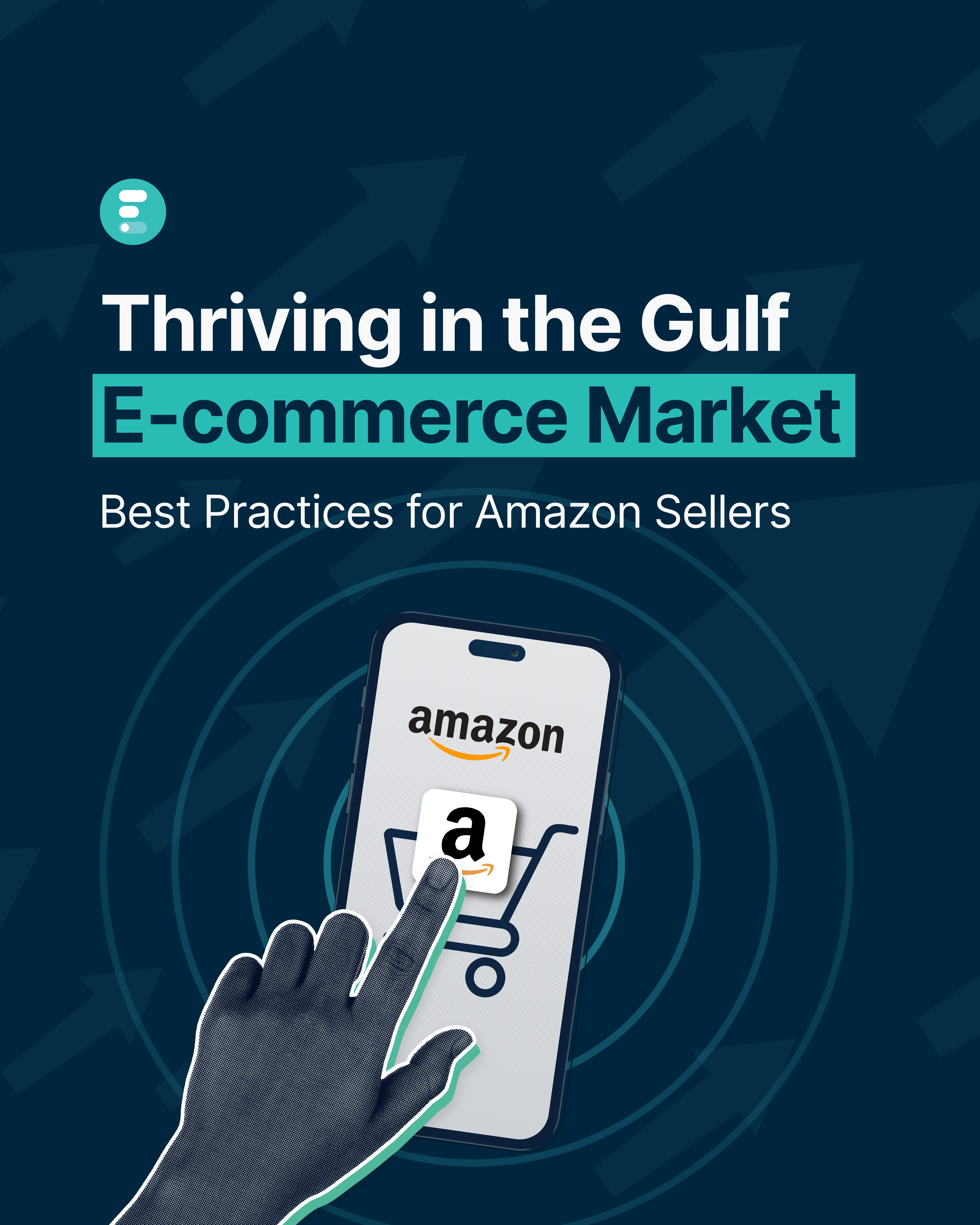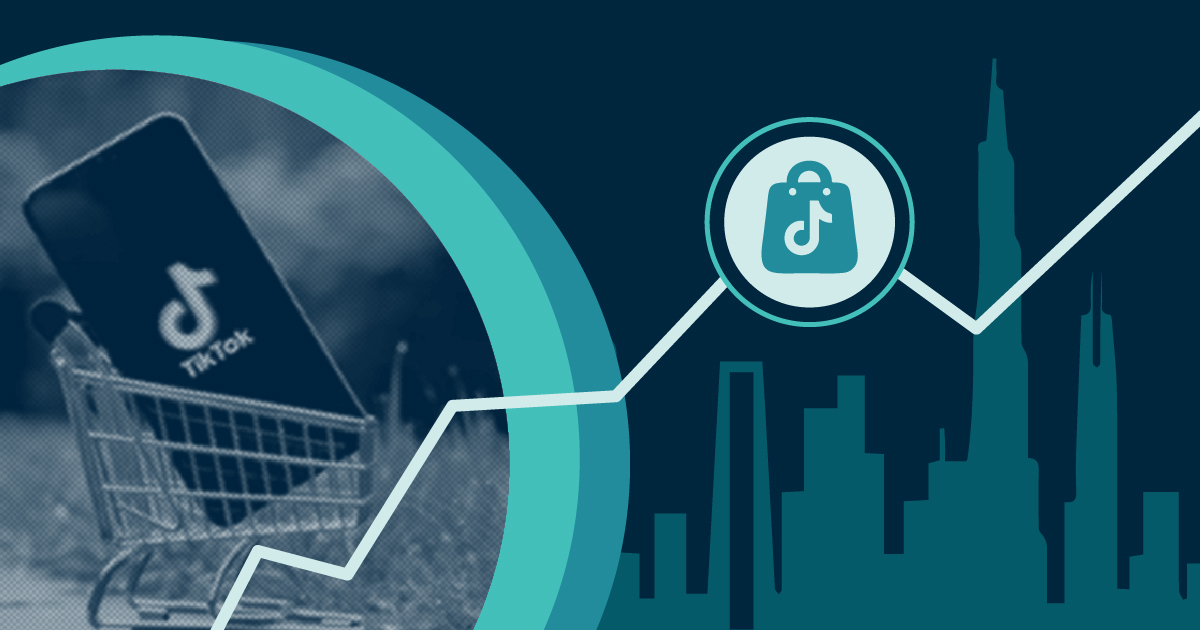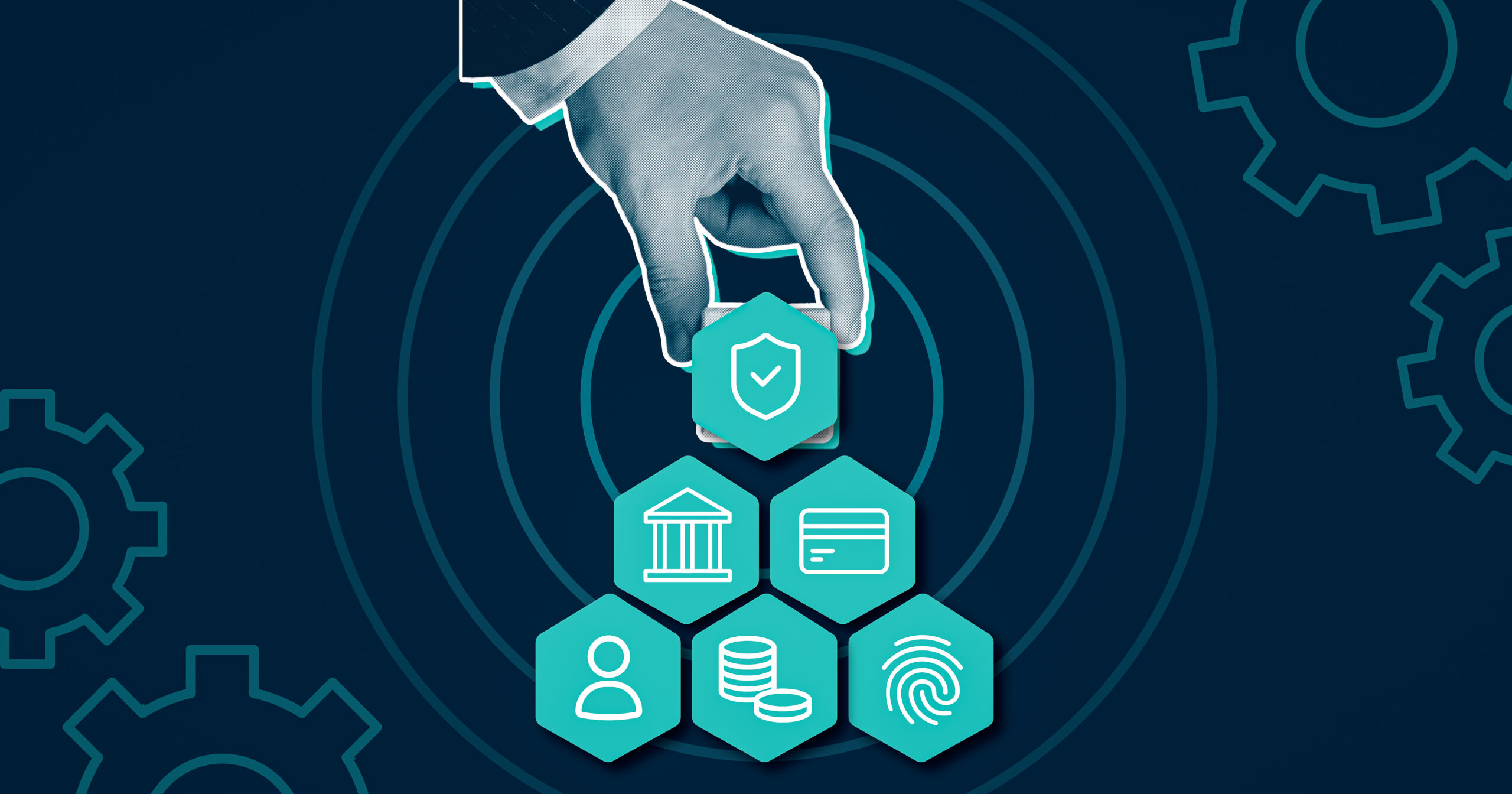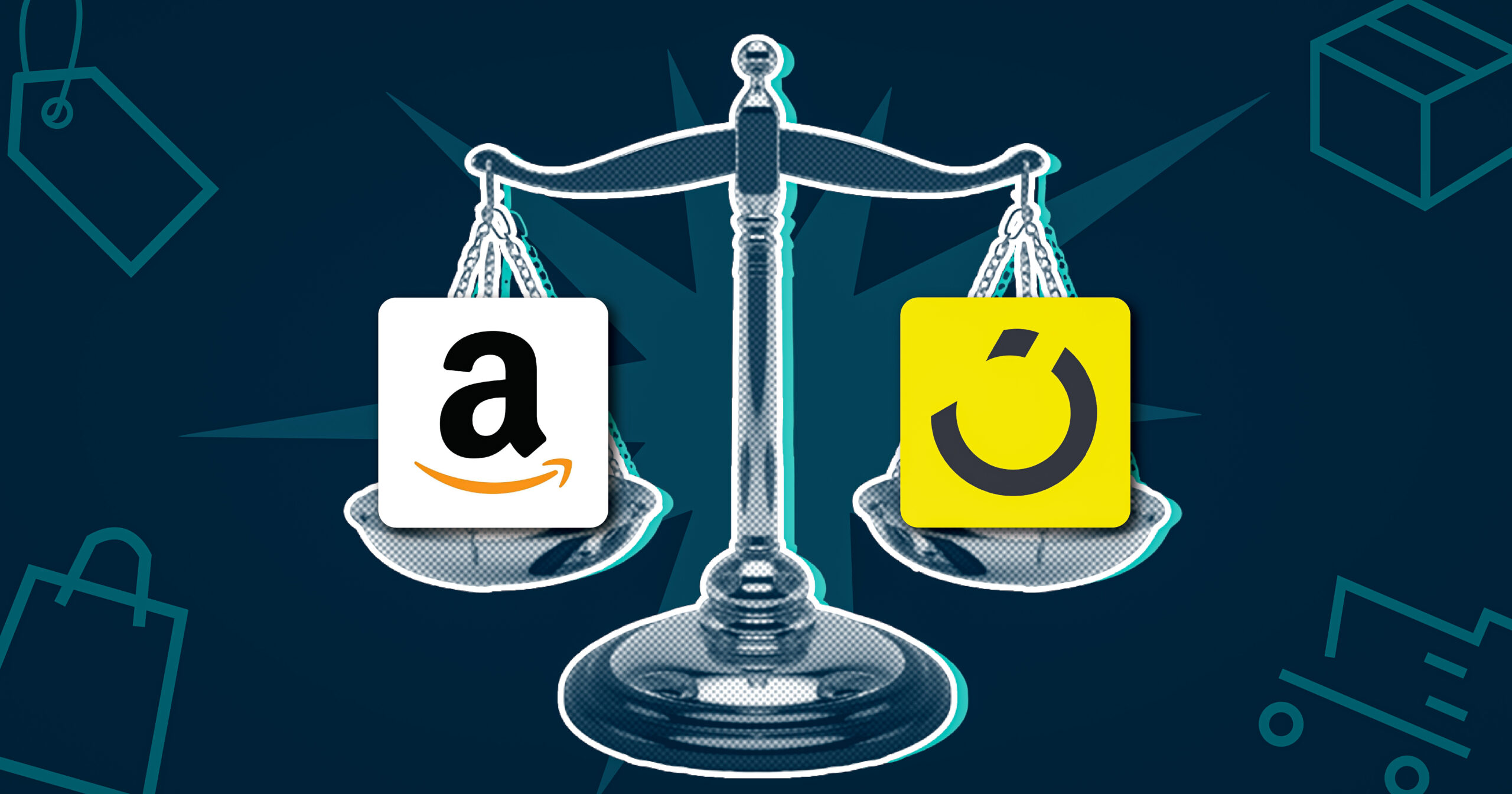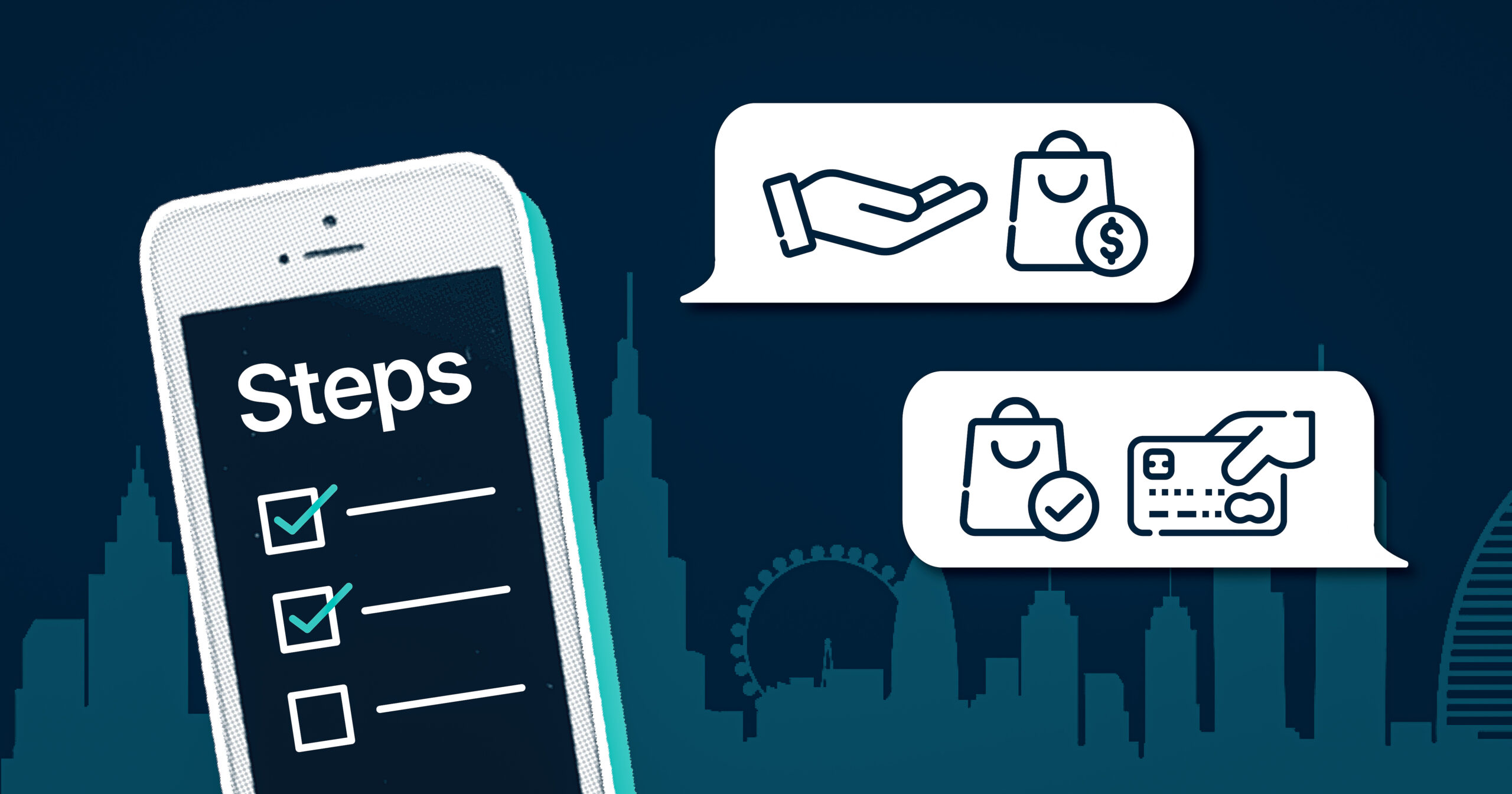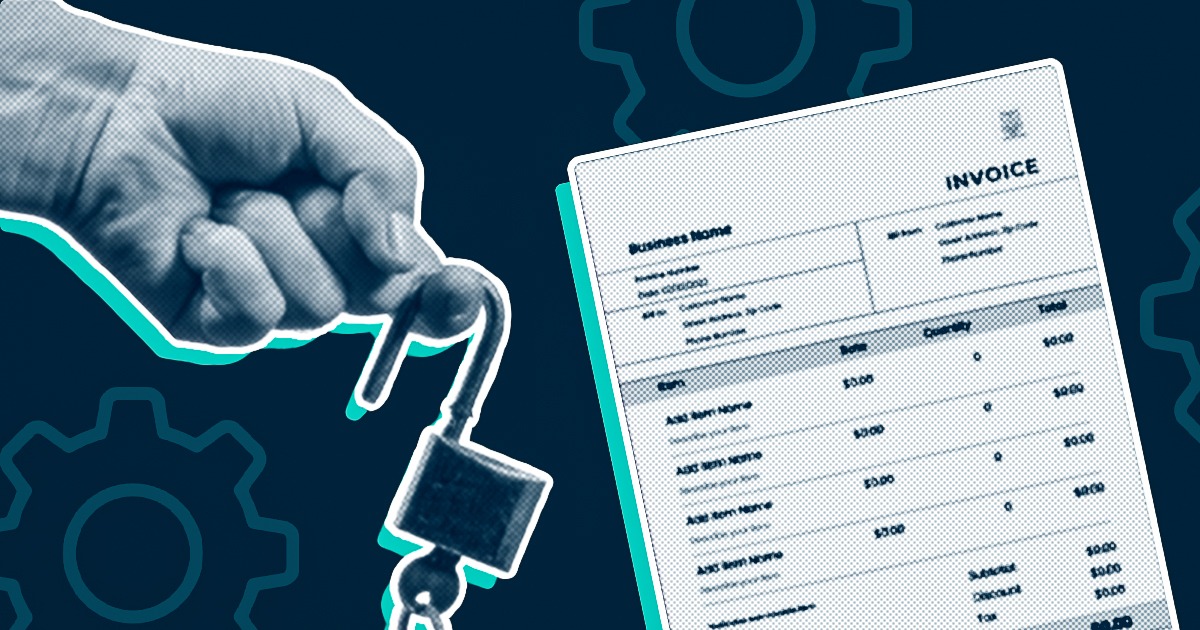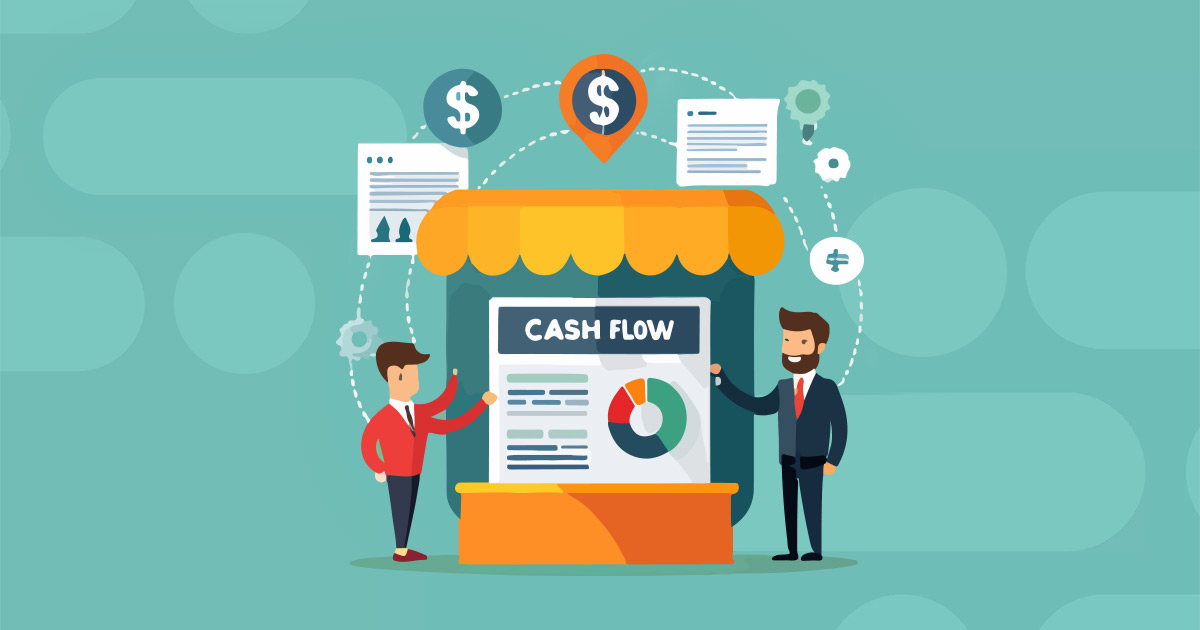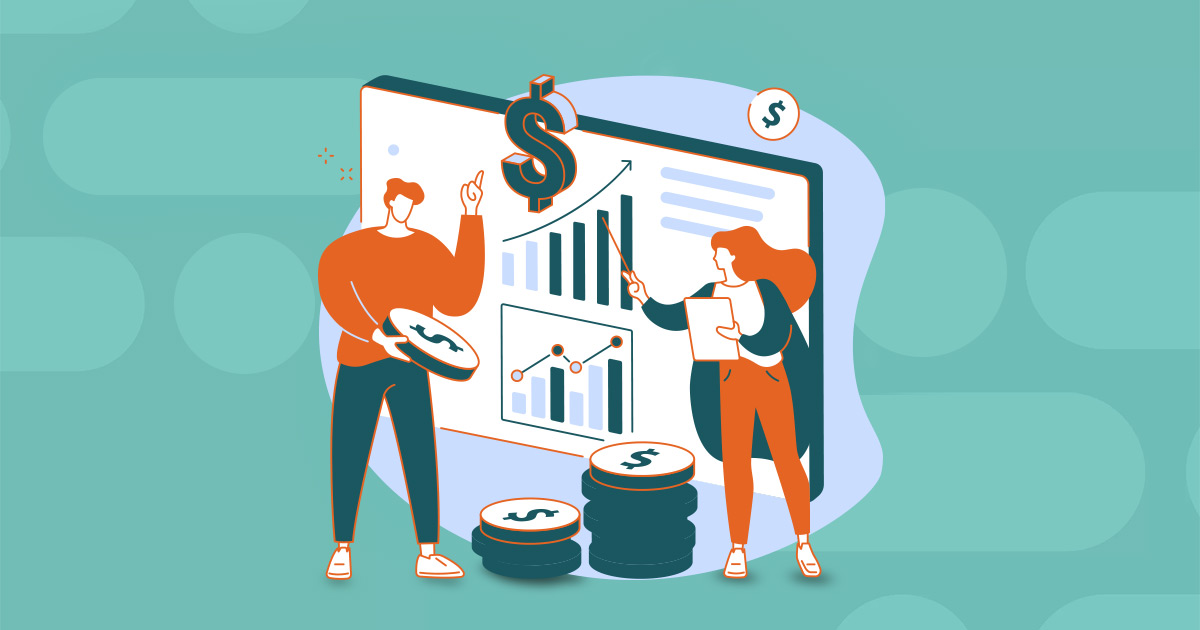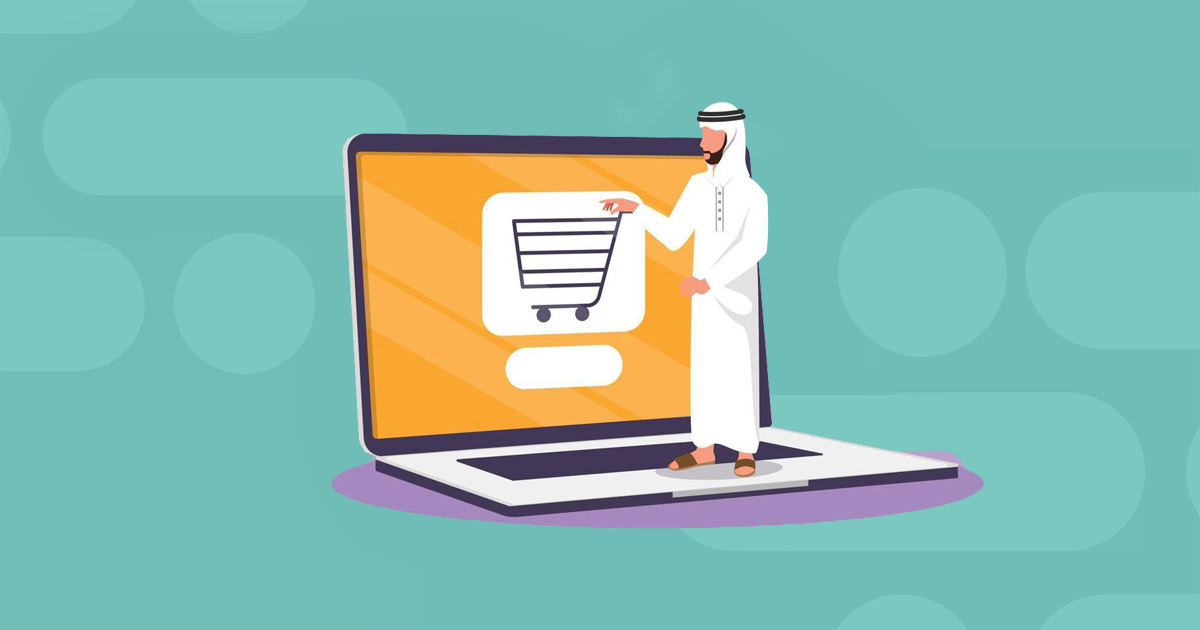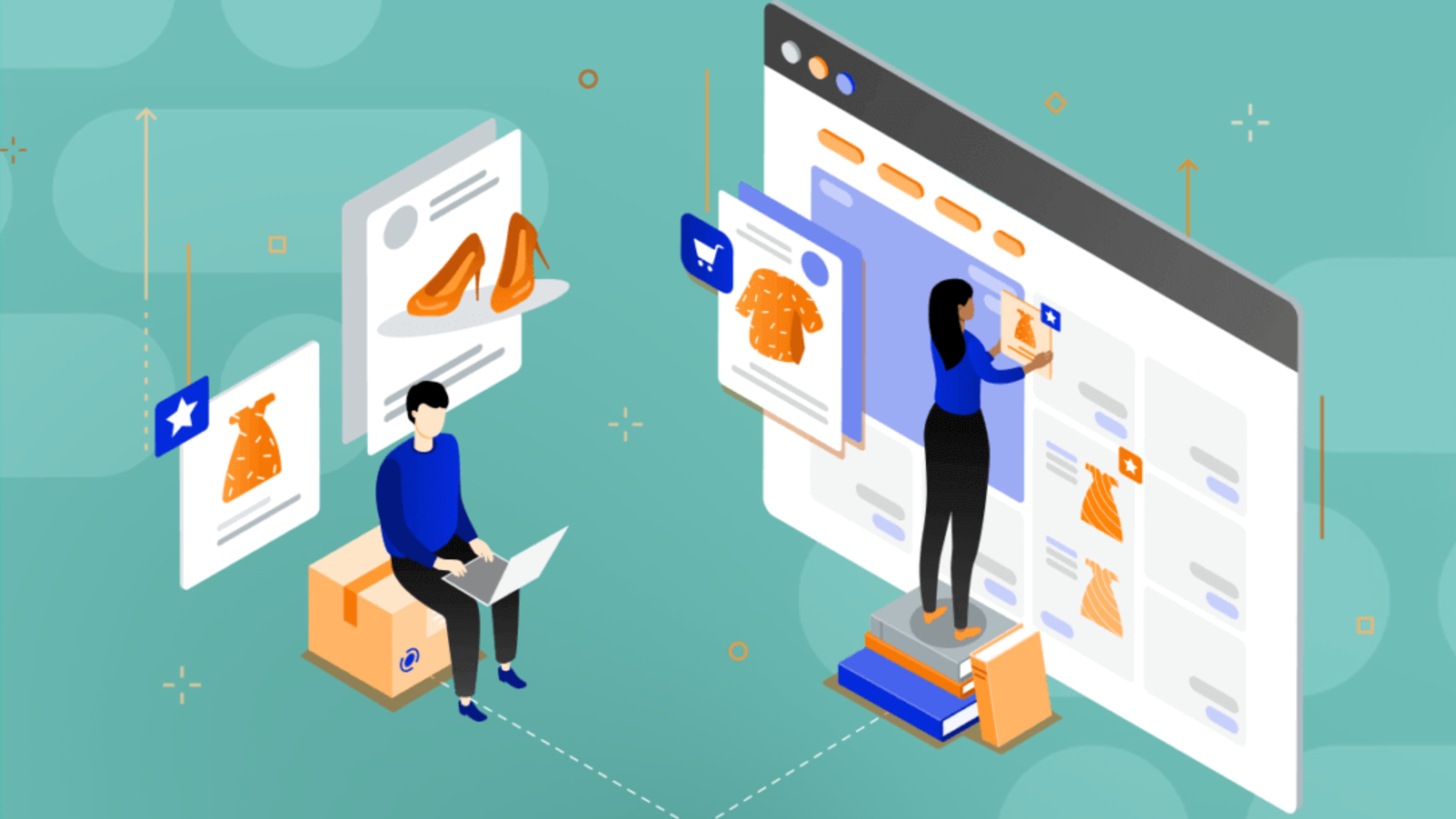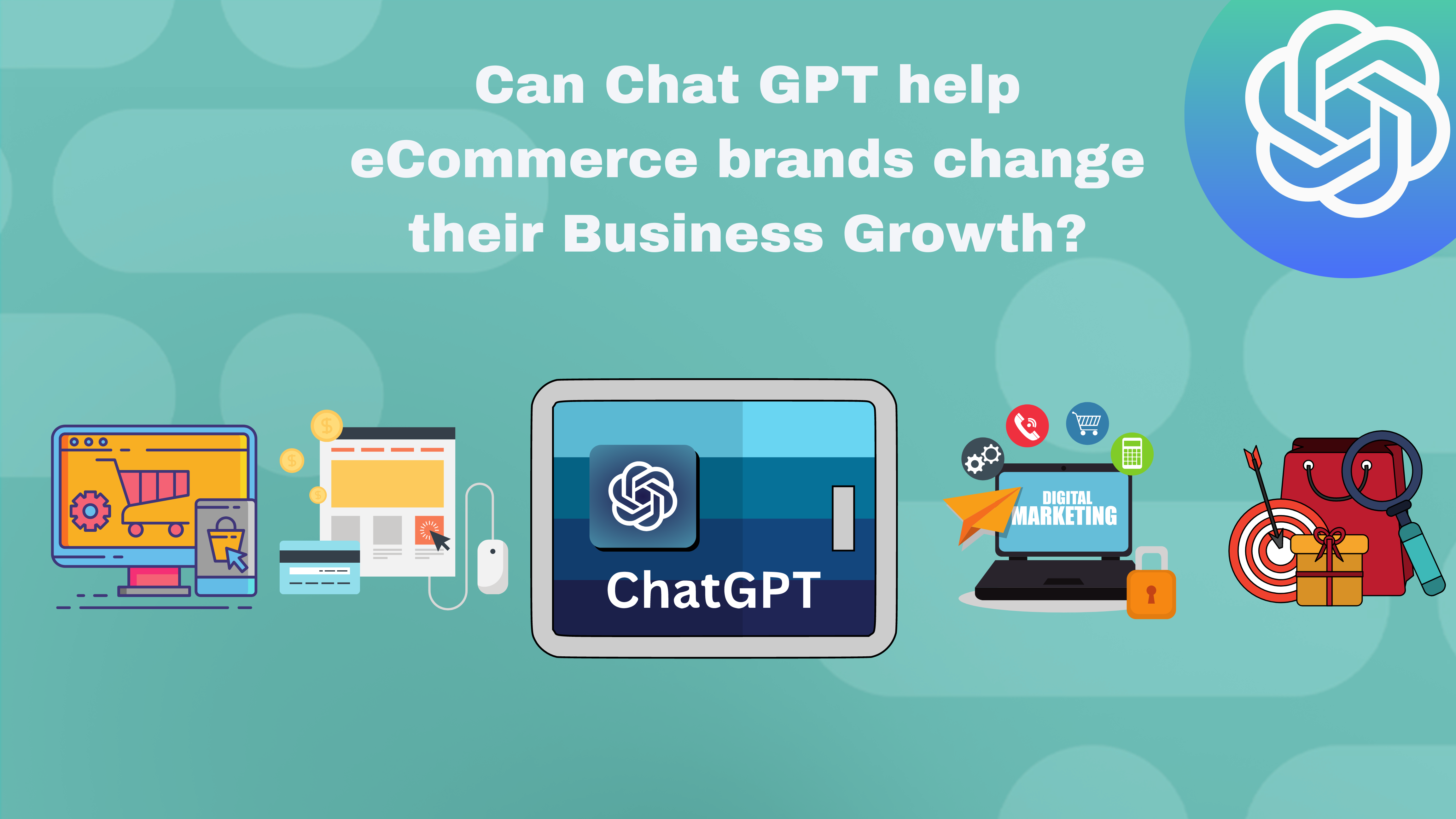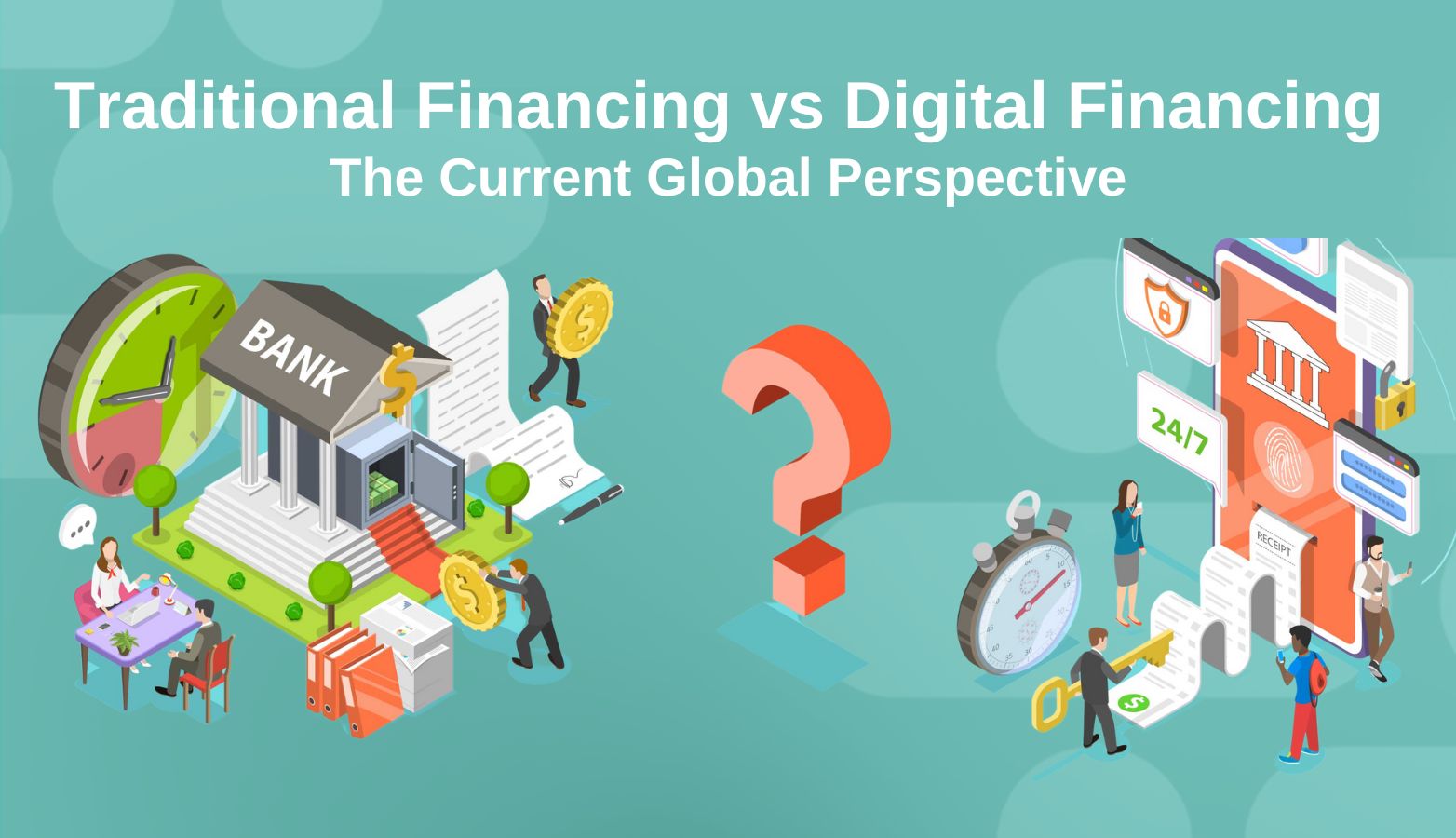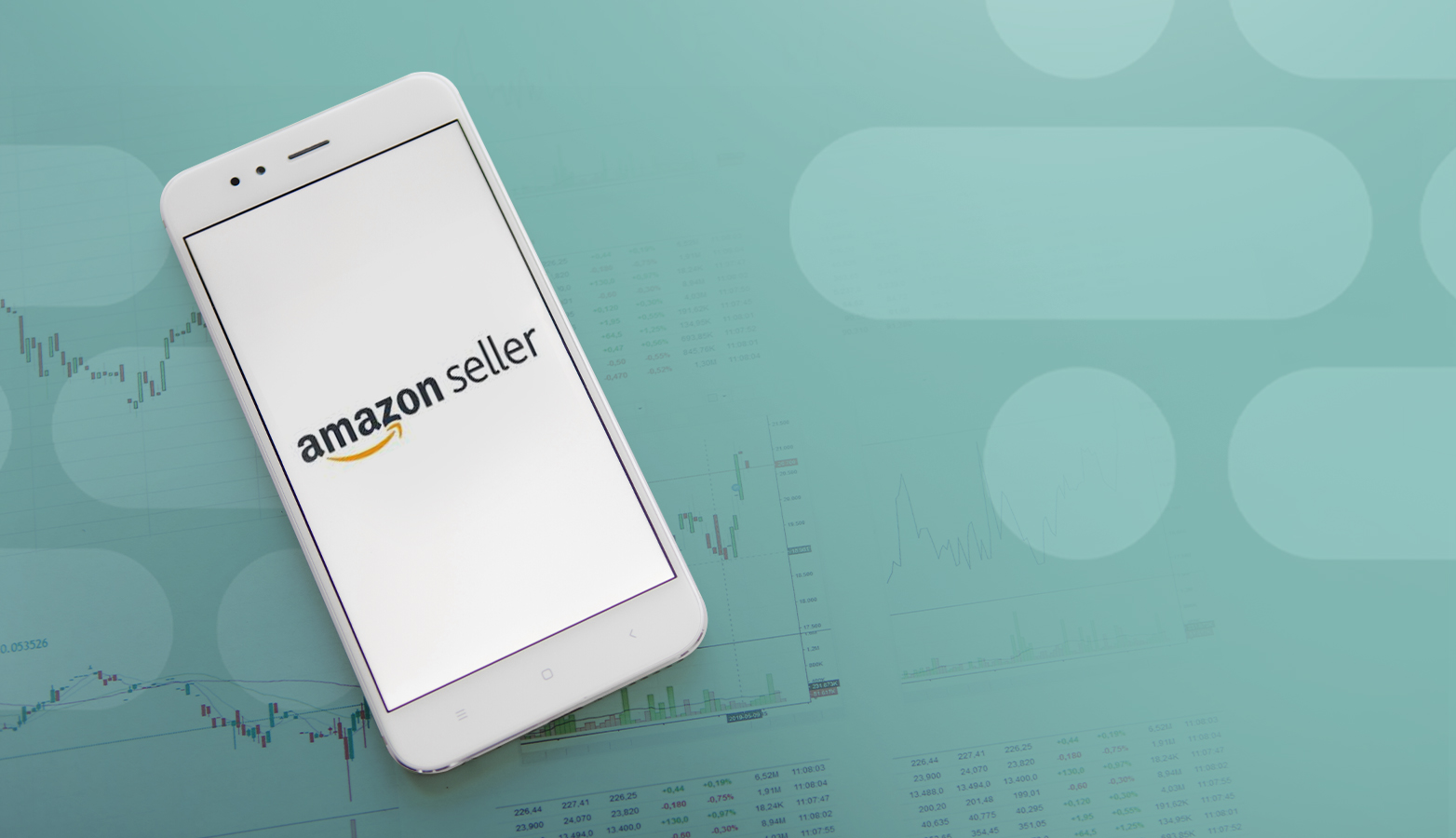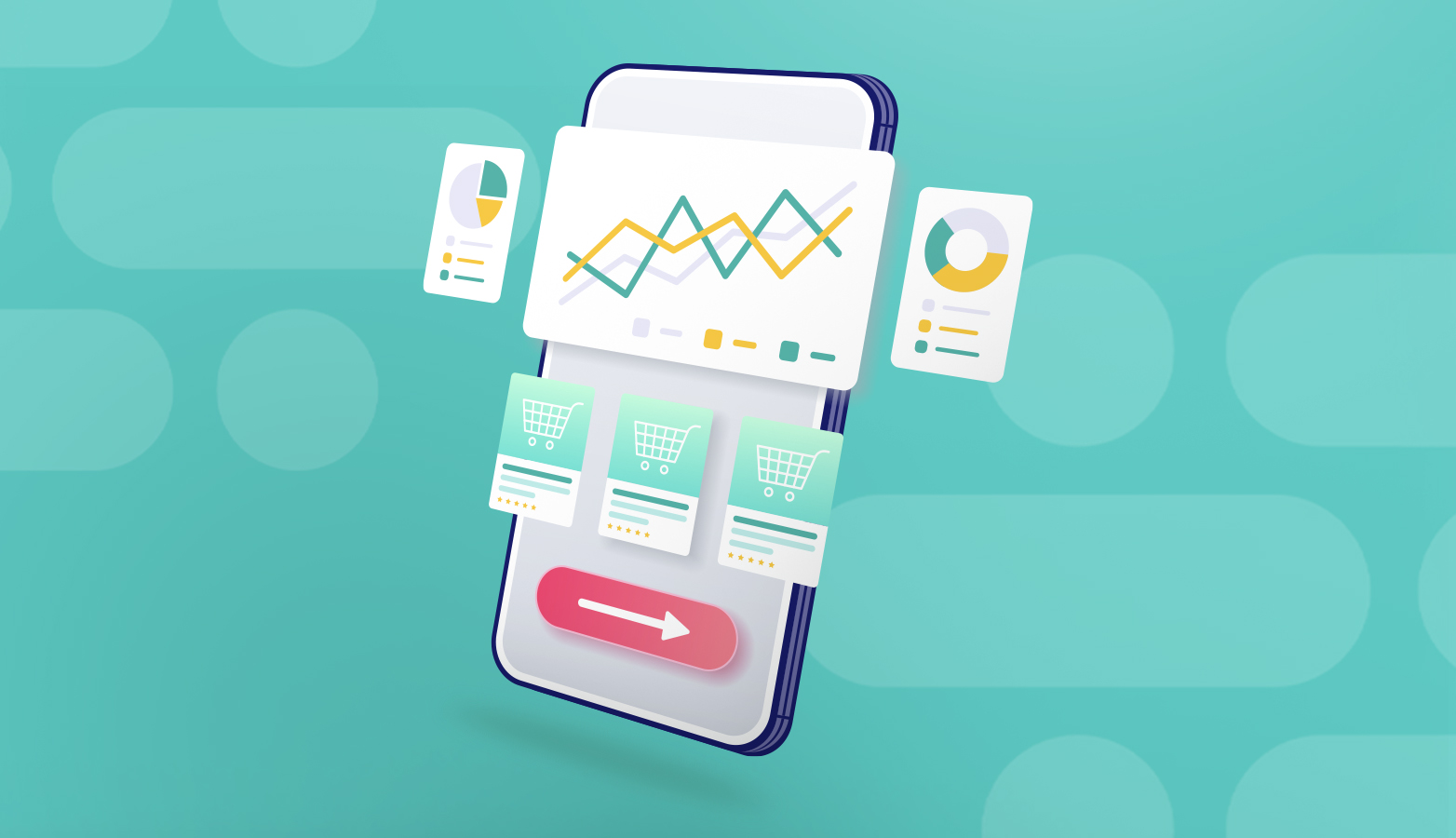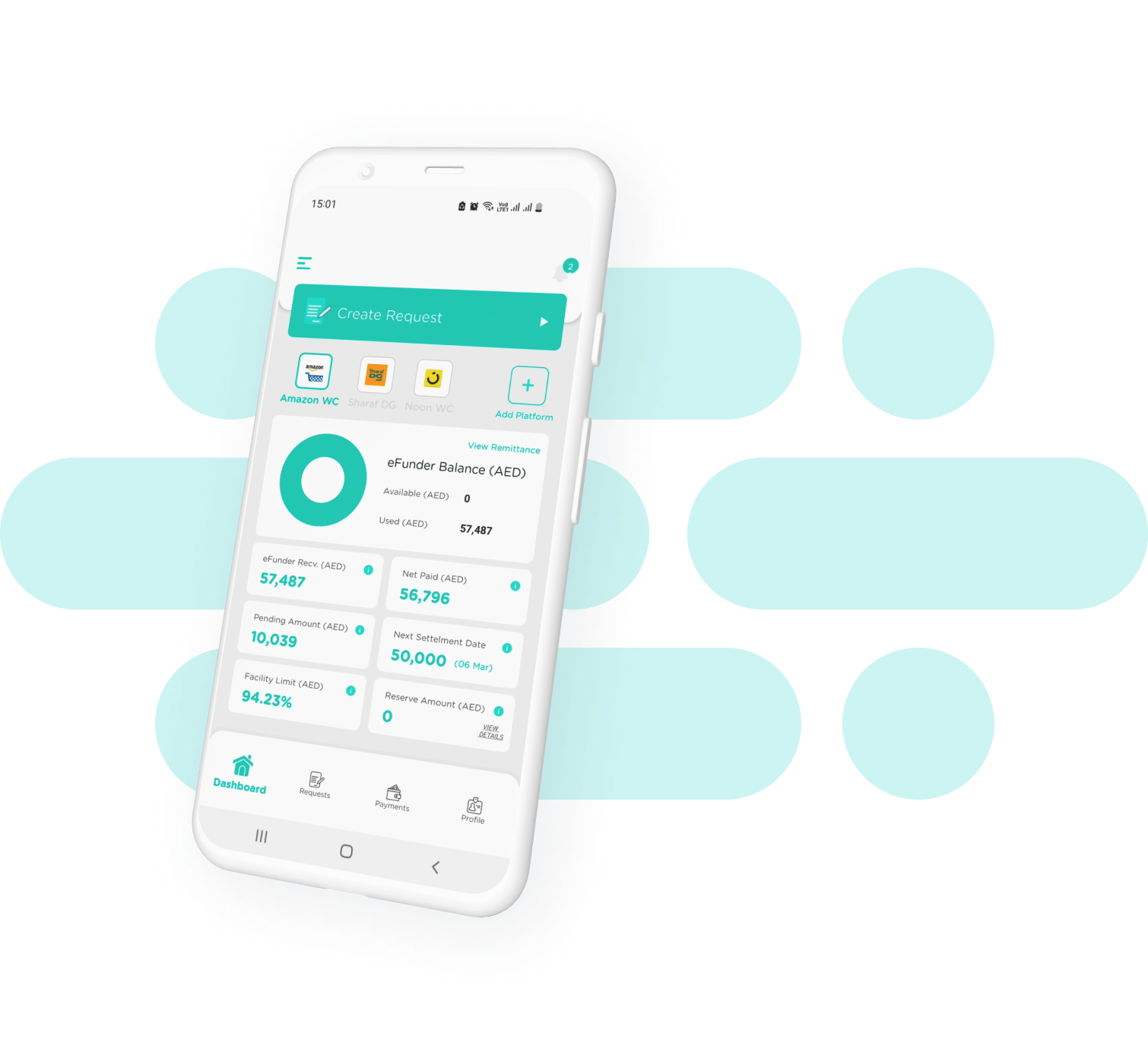How Flexible Financing Options Are Helping SMEs Navigate Market Uncertainty
The current market landscape is characterized by volatility and uncertainty, making it exceptionally challenging for SME financing UAE. Geopolitical events, fluctuating commodity prices, and evolving consumer preferences can create unpredictable conditions. Traditional business loans for SMEs can be difficult to secure in such an environment, as lenders become more risk-averse, leaving many businesses struggling to manage their SME financial support. However, innovative financial solutions like invoice financing UAE are providing a much-needed lifeline.
Small business funding is absolutely essential for navigating these turbulent times. While business working capital loans can provide a financial buffer, they often come with rigid terms, lengthy application processes, and substantial collateral requirements. Invoice financing companies like eFunder offer a different, more agile approach. We specialize in digital financing and invoice financing for small business, providing quick access to cash tied up in unpaid invoices.
This allows SMEs to improve their business working capital position, seize time-sensitive opportunities, invest in marketing or new equipment, and weather unexpected market fluctuations. eFunder's invoice financing solutions are designed to be flexible, adapting to the unique needs of each business, and allowing them to scale up or down as needed.
Related Articles
Scaling Your Restaurant with Delivery Aggregators: How to Keep Cash Flow Smooth
Restaurants operate in a fast-paced, highly competitive environment where efficient supply chain management is absolutely paramount. From sourcing fresh ingredients to managing inventory and ensuring timely delivery, every link in the chain plays a crucial role. Working Captial for restaurants can play a key role in optimizing this complex process. Securing restaurant financing UAE can be challenging, but eFunder offers tailored SME financing for restaurants through our user-friendly eFunder UAE platform. The aroma of success in the restaurant business is often accompanied by the hum of delivery bikes and the ping of online orders. If you're leveraging delivery aggregators alongside your Point of Sale (POS) system, you're tapping into a powerful revenue stream. However, this dynamic landscape can also introduce unique cash flow challenges. Let's explore how to keep your restaurant's finances as smooth as your signature sauce. The Dual-Channel Challenge: POS and Delivery Aggregators Restaurants that operate both a physical dining space and utilize delivery aggregators experience a blend of traditional and digital revenue streams. While this diversification can boost sales, it also complicates cash flow management. Here's why: Delayed Payouts: Delivery aggregators typically have longer payment cycles than your POS system. This delay can create a gap between your daily expenses and incoming revenue. Variable Order Volumes: Demand on delivery platforms can fluctuate significantly, leading to unpredictable cash flow. Increased Operational Costs: Managing online orders requires additional packaging, delivery logistics, and commission fees, impacting your working capital. Working Capital: The Backbone of Your Restaurant's Growth In the dynamic dual-channel environment of restaurants utilizing both POS systems and delivery aggregators, robust working capital is absolutely essential. It provides the financial foundation to cover daily operational expenses, ensuring you can consistently pay for ingredients, staff salaries, and utilities, regardless of the variable payout schedules from aggregators. Furthermore, it empowers you to strategically invest in inventory, allowing you to stock up on popular items to meet the demands of both dine-in and online customers. With sufficient working capital, you can also expand your reach by investing in targeted marketing and promotions, attracting a wider customer base across both platforms. Finally, it provides the necessary buffer to effectively manage seasonal fluctuations, enabling you to prepare for peak seasons and navigate slower periods without experiencing financial strain. This is where eFunder steps in as your trusted partner, offering tailored financing solutions to ensure your restaurant maintains smooth cash flow and continues to thrive. eFunder understands the unique challenges faced by restaurants in the UAE. We offer tailored financing solutions to help you maintain a healthy cash flow and scale your business: Working Capital Financing: Bridge the gap between aggregator payouts and daily expenses with flexible working capital solutions. Access the funds you need to keep your operations running smoothly. Why Choose eFunder? Fast and Flexible: Our streamlined application process ensures you get the funds you need quickly. Tailored Solutions: We understand the nuances of the restaurant industry and offer customized financing options. Transparent and Reliable: We prioritize clear communication and build long-term relationships with our clients. Tips for Optimizing Cash Flow: Forecast Demand: Analyze sales data from both your POS and delivery platforms to predict demand and manage inventory accordingly. Negotiate Payment Terms: Explore options for faster payouts with your delivery aggregators. Implement Efficient Inventory Management: Minimize waste and optimize stock levels to reduce costs. Leverage Technology: Utilize POS systems and accounting software to track sales, expenses, and cash flow in real-time. Contact uhttps://efunder.ai/contact-us/s today to learn how we can help you keep your cash flow as smooth as your culinary creations.
Understanding the Impact of UAE’s New Tax Regulations on SMEs
The introduction of new UAE tax regulations 2025 and subsequent updates have significant implications for SMEs operating within the country. Small business tax compliance UAE is now more critical than ever, and penalties for non-compliance can be substantial. Understanding VAT regulations UAE and their specific impact on your business operations is crucial for effective financial planning for SMEs. Staying informed about changes to the regulations is essential for long-term success. The tax impact on SMEs can be complex, and navigating these changes often requires expert guidance. From understanding VAT implications to managing corporate tax, careful planning is essential. One area to consider is tax-efficient financing UAE. eFunder offers digital financing and invoice financing for small business solutions that can help SMEs manage their cash flow effectively while simultaneously meeting their tax obligations. Our financing for small business options can free up valuable working capital, allowing businesses to focus on growth initiatives and ensure they have the resources needed for compliance. Contact us today to learn more about how eFunder can help you navigate the evolving tax landscape and optimize your financial strategy.
How Flexible Financing Options Are Helping SMEs Navigate Market Uncertainty
The current market landscape is characterized by volatility and uncertainty, making it exceptionally challenging for SME financing UAE. Geopolitical events, fluctuating commodity prices, and evolving consumer preferences can create unpredictable conditions. Traditional business loans for SMEs can be difficult to secure in such an environment, as lenders become more risk-averse, leaving many businesses struggling to manage their SME financial support. However, innovative financial solutions like invoice financing UAE are providing a much-needed lifeline. Small business funding is absolutely essential for navigating these turbulent times. While business working capital loans can provide a financial buffer, they often come with rigid terms, lengthy application processes, and substantial collateral requirements. Invoice financing companies like eFunder offer a different, more agile approach. We specialize in digital financing and invoice financing for small business, providing quick access to cash tied up in unpaid invoices. This allows SMEs to improve their business working capital position, seize time-sensitive opportunities, invest in marketing or new equipment, and weather unexpected market fluctuations. eFunder's invoice financing solutions are designed to be flexible, adapting to the unique needs of each business, and allowing them to scale up or down as needed.
The Impact of Vendor Advances on Supplier Relationships
In today's competitive business landscape, strong supplier relationships are more critical than ever. They are the backbone of a resilient supply chain and a key ingredient for sustained success. One financial tool that can significantly impact these relationships, for better or worse, is the vendor advance. But how exactly do these advances affect suppliers, particularly small and medium-sized enterprises (SMEs)? Let's get into the details. Vendor advances can be a lifeline for suppliers, especially when they're grappling with cash flow challenges. Imagine a small manufacturer who has just completed a large order but is waiting for payment. A vendor advance provides immediate access to funds tied up in pending invoices, significantly improving their SME financing UAE situation. This injection of cash can be a game-changer, allowing suppliers to invest in growth, fulfill larger orders without delay, maintain consistent operations, and even hire new staff. This is particularly beneficial in the UAE, where access to traditional supplier credit UAE can be a hurdle for smaller businesses. Traditional lending often involves lengthy applications, strict criteria, and collateral requirements, which many SMEs struggle to meet. However, the devil is in the details. The specific terms of a vendor advance are absolutely critical. Unfavorable terms, such as high interest rates or rigid repayment schedules, can put a strain on supplier relationships and create resentment. This is where eFunder comes in. We offer flexible invoice financing solutions that empower suppliers without jeopardizing their relationships with buyers. eFunder understands the unique challenges faced by SMEs in the UAE and is recognized as one of the best invoice financing companies in the region. We offer financing for SMEs with flexible financing options designed to improve cash flow, strengthen partnerships, and foster long-term growth. Our process is simple, transparent, and designed to get you the funds you need quickly.
Choosing the Right Invoice Financing Partner in the UAE: A Guide for Businesses
Selecting the right invoice financing partner is crucial for businesses operating in the dynamic UAE market. The right partner can provide the necessary capital to fuel growth, improve cash flow, and unlock new opportunities. However, with numerous options available, choosing the right partner can be challenging. Here are key factors to consider when making your decision: Reputation: Choose a reputable and established company with a proven track record in the UAE market. Look for a partner with a strong financial standing and a history of successful partnerships with businesses like yours. Experience in the UAE Market: Partner with a company that possesses in-depth knowledge of the UAE business landscape, its unique challenges, and regulatory requirements. Flexibility of Terms: Ensure the financing solution offers flexible terms that align with your specific business needs. Look for options that provide flexibility in terms of advance rates, repayment schedules, and other key parameters. Technology and Innovation: Choose a partner that leverages cutting-edge technology to streamline the application process, provide real-time access to information, and offer a seamless user experience. Customer Service: Select a partner with exceptional customer service and a dedicated support team readily available to assist you. Look for a partner that prioritizes open communication, addresses your concerns promptly, and provides ongoing guidance and support. Why Choose eFunder? eFunder stands out as a preferred partner for businesses in the UAE due to its unique strengths: Deep UAE Expertise: We have a deep understanding of the UAE business environment, its unique challenges, and the specific needs of businesses operating within this dynamic market. Tailored Solutions: We don't believe in a one-size-fits-all approach. Our team works closely with you to understand your specific business needs and tailor our financing solutions accordingly. Fast and Efficient: Experience our quick and hassle-free application process. We leverage technology to streamline the application process, allowing you to receive funding rapidly and put it to work immediately. Transparent Pricing: We believe in complete transparency. Our pricing is transparent and competitive, with no hidden fees. You'll always have a clear understanding of the costs associated with our financing solutions. Exceptional Customer Support: Our dedicated team is available to assist you at every step of the way. We prioritize open communication and are always ready to address your questions and concerns promptly. Cutting-Edge Technology: We leverage the latest technology to provide a seamless and user-friendly experience. Our online platform allows you to track your applications, manage your account, and access key information with ease.
Invoice Financing for Startups: Fueling Growth from Day One
Startups face a unique set of challenges, particularly when it comes to securing funding. Securing traditional loans can be a lengthy and often unsuccessful process, leaving startups with limited access to the capital they need to grow. This is where invoice financing can be a game-changer. Overcoming Funding Gaps: Bridging the Chasm Between Costs and Revenue Startups often incur significant upfront costs in areas like marketing, research and development, and hiring. However, revenue generation can take time. This creates a crucial funding gap that can hinder growth. Invoice financing bridges this gap by providing immediate access to funds tied up in outstanding invoices. Accelerating Growth: Investing in Key Areas With access to early-stage capital, startups can: Invest in Marketing and Sales: Launch targeted marketing campaigns, expand sales teams, and accelerate customer acquisition. Fuel Research and Development: Fund innovative product development, enhance existing offerings, and stay ahead of the competition. Expand their Team: Hire talented employees, build a strong team, and scale operations efficiently. Capitalize on Emerging Opportunities: Seize unexpected opportunities that arise in the dynamic startup ecosystem. Early Access to Capital: A significant advantage for business owners. By utilizing invoice financing solutions like eFunder, businesses can significantly reduce their credit cycle. Instead of waiting for traditional payment terms, which often extend from 30 to 90 days, businesses can instantly convert approved invoices into cash. This immediate access to funds empowers businesses to seize opportunities, invest in growth, and maintain a healthy cash flow, ultimately driving greater success. Invoice financing provides startups with significantly faster access to capital compared to traditional loan applications. The application process is typically streamlined and efficient, allowing startups to receive funding quickly and put it to work immediately. This speed can be crucial for startups operating in fast-paced and competitive markets. eFunder's Solutions for Startups: Tailored Support for Growth At eFunder, we understand the unique challenges faced by startups. We offer tailored solutions to help them thrive: Flexible Repayment Terms: We recognize that every startup has a different cash flow cycle. That's why we offer flexible repayment options to suit your specific needs and ensure you can comfortably manage your cash flow. Dedicated Support: Our team provides dedicated support to startups throughout the entire process. We guide you through the application process, answer your questions, and offer valuable insights to help you make informed decisions.
Invoice Financing and Your Credit Score: What You Need to Know
Many businesses are hesitant to explore invoice financing due to concerns about its potential impact on their credit score. While it's natural to be cautious when it comes to weighing financing options, understanding the nuances can help you make informed decisions. Limited Impact on Credit Score Responsible invoice financing generally has a minimal impact on your credit score. Unlike traditional loans that involve a formal credit check and can directly impact your credit history, invoice financing primarily focuses on the creditworthiness of your customers. With eFunder invoice financing you don’t have to worry about the impact on your credit score. Improved Cash Flow: A Credit Score Booster In fact, invoice financing can actually improve your creditworthiness in the long run. By providing immediate access to funds tied up in outstanding invoices, it significantly improves your cash flow. This improved cash flow enables you to: Meet Financial Obligations on Time: Pay suppliers, rent, and other expenses promptly, demonstrating responsible financial behavior to credit bureaus. Reduce Reliance on Debt: Minimize the need for high-interest loans, which can negatively impact your debt-to-income ratio and credit score. Invest in Growth: Utilize the freed-up capital for business expansion, marketing, and other growth initiatives, leading to increased revenue and improved creditworthiness. Maintaining a Healthy Credit Profile with eFunder At eFunder, we prioritize responsible lending practices and work closely with our clients to maintain healthy credit profiles. We: Conduct Thorough Due Diligence: We carefully assess the creditworthiness of your customers to minimize risk and ensure the sustainability of the financing arrangement. Provide Transparent Reporting: We offer clear and transparent reporting on your invoice financing activity, allowing you to track your progress and make informed financial decisions. Offer Guidance and Support: Our team is available to provide guidance on responsible financial management practices and address any concerns you may have regarding your credit score
The Easiest Way to Get Started with Invoice Financing
Starting with invoice financing doesn't have to be daunting. eFunder makes the process incredibly simple. Here's a quick guide: Quick and Hassle-Free Onboarding: Sign up for an eFunder account in just minutes. Our streamlined process requires only six quick and easy steps. Integrate Your Seller Account: Easily connect your Buyer procurement ERP system or provide past invoices and purchase orders for seamless integration. We partner with select non-ERP entities for streamlined onboarding. Select Your Receivables: Choose the specific invoices or the total amount of receivables you want to receive an advance against. Receive Funds Quickly: Get up to 95% of the value of your selected invoices deposited directly into your bank account within 24 hours. Automatic Updates: Receive notifications when your customers pay their invoices. Select Buyer Ecosystems: under Large Corporates, Government Entities or Banks/Financial Required Documentation: We understand that providing documentation can feel overwhelming. At eFunder, we've minimized the requirements to make the process as smooth as possible. Typically, you'll need basic business information and some recent invoices. Ease of Use: Our online platform is designed with user-friendliness in mind. The application process is intuitive and easy to navigate, even for those who aren't tech-savvy. Addressing Common Concerns: Credit Score Impact: efunder invoice financing has zero impact on your credit score. Responsible use of invoice financing, such as with efunder, does not negatively impact your credit score. Data Security: We prioritize data security and employ robust measures to protect your sensitive information.
The Future of E-commerce Business in Dubai: A Lucrative Opportunity
Dubai's e-commerce market is booming, with projections suggesting a significant growth to 17 billion USD by 2025. This presents a golden opportunity for businesses to tap into the region's burgeoning online market. Key Factors Driving E-commerce Growth in Dubai: Growing Middle-Class Population: A rising middle class with increasing disposable income is fueling e-commerce growth. Government Support: The UAE government's initiatives to promote e-commerce have created a favorable business environment. Advanced Logistics Infrastructure: A robust logistics network facilitates efficient delivery of goods. To capitalize on this opportunity, e-commerce businesses in Dubai should: Optimize Online Stores: Ensure a seamless shopping experience with user-friendly websites and mobile apps. Leverage Social Media: Utilize social media platforms to connect with customers and promote products. Invest in Digital Marketing: Implement effective digital marketing strategies to attract and retain customers. Secure Adequate Funding: Access business finance and working capital to fuel growth. By staying ahead of the curve and leveraging the power of e-commerce, businesses in Dubai can position themselves for long-term success.
SMEs Preparing for the UAE High Season: Get Funded with eFunder
The UAE high season is just around the corner, and businesses across the country are gearing up for a period of intense activity. With increased demand and opportunities, SMEs need to be well-prepared to capitalize on the season's potential. Key Challenges for SMEs During the High Season: Increased Demand: The surge in demand can strain resources and lead to operational challenges. Inventory Management: Ensuring sufficient stock levels to meet increased demand is crucial. Cash Flow Management: Managing cash flow during peak periods can be demanding. How eFunder Can Help eFunder offers a range of financing solutions to help SMEs navigate the challenges of the high season. By providing working capital loans and other financial products, eFunder empowers businesses to: Scale Operations: Invest in additional resources and expand their reach. Manage Cash Flow: Smooth out cash flow fluctuations and meet financial obligations. Seize Opportunities: Capitalize on the increased demand and market opportunities. Don't let financial constraints hinder your business's growth. Get funded with eFunder and make the most of the UAE high season.
eFunder Connects with Global Leaders at WorldEF 2024
eFunder recently participated in WorldEF 2024 Dubai, a premier global financial event held in Dubai. The event brought together industry leaders, investors, and entrepreneurs to discuss the latest trends and innovations in the financial sector. A Unique Experience eFunder's presence at WorldEF 2024 Dubai provided a unique opportunity to connect with global leaders and explore potential partnerships. The event showcased the company's commitment to driving financial innovation and empowering businesses. Deepak Sekar’s Masterclass: Financing 101 for E-commerce Sellers Deepak Sekar, eFunder's CEO, delivered a captivating masterclass on "Financing 101 for E-commerce Sellers." The session provided valuable insights into the financial strategies that e-commerce businesses can employ to fuel their growth. By attending WorldEF 2024, eFunder reaffirmed its position as a leading provider of business finance and working capital solutions. The company remains dedicated to supporting businesses of all sizes, helping them achieve their full potential.
Thriving in the Gulf E-commerce Market: Best Practices for Amazon Sellers
The Gulf region has emerged as a focal point for global e-commerce expansion. With a growing population of tech-savvy consumers and a robust online infrastructure, the opportunities for Amazon sellers are immense. However, to truly thrive in this competitive market, sellers must adopt a strategic approach and navigate the complexities of the Amazon platform. Understanding the Gulf E-commerce Landscape Before diving into the strategies, it's crucial to understand the unique dynamics of the Gulf e-commerce market. Factors such as cultural nuances, shipping regulations, and local consumer preferences can significantly impact your business. Key Strategies for Amazon Sellers: Optimize Product Listings: Keyword Research: Conduct thorough keyword research to identify relevant terms that potential customers are searching for. Compelling Product Descriptions: Create engaging and informative product descriptions that highlight the unique selling points of your products. High-Quality Images: Use high-resolution images from multiple angles to showcase your products. Build a Strong Brand Presence: Consistent Branding: Maintain a consistent brand identity across all your listings. Customer Reviews: Encourage positive reviews from satisfied customers. Effective Customer Service: Respond promptly to customer inquiries and resolve issues efficiently. Leverage Amazon's Marketing Tools: Amazon Advertising: Utilize Amazon's advertising tools, such as Sponsored Products and Sponsored Brands, to increase visibility. Amazon Coupons: Offer coupons and promotions to attract customers and boost sales. Comply with Amazon's Policies and Regulations: Stay Updated: Keep up-to-date with Amazon's policies and guidelines to avoid account suspensions or penalties. Intellectual Property Protection: Protect your brand and products by registering trademarks and copyrights. By following these best practices and adapting to the evolving landscape of the Gulf e-commerce market, Amazon sellers can position themselves for long-term success.
Funding Checklist for SMEs in the UAE
Navigating the financial landscape can be challenging for small and medium enterprises (SMEs) in the UAE. To ensure your business secures the necessary funding, it’s essential to have a comprehensive checklist. This guide will help you understand the various SME funding options available, enabling you to make informed decisions for your business growth. Understanding SME Funding Options SME Business Funding Explore various SME funding sources, including banks, financial institutions, and government programs designed to support small businesses. SME Loans for Startups Many financial institutions offer tailored SME loans for startups, providing essential capital to help you establish your business and navigate early challenges. Business Loans for SMEs These loans can be used for various purposes, including expanding operations, purchasing equipment, or managing cash flow. Assess your needs to choose the right loan amount and terms. Working Capital Advance A working capital advance can provide immediate cash flow relief. This option is particularly useful for managing day-to-day operations and unforeseen expenses. Vendor Advance Consider vendor advance options to improve your inventory management. This funding allows you to pay suppliers upfront, securing better pricing and terms while maintaining stock levels. Advance Payment to Vendor Offering advance payments to vendors can strengthen supplier relationships and potentially lead to discounts, enhancing your overall profitability. Key Considerations for Securing Funding Develop a Solid Business Plan A well-structured business plan is crucial for attracting SME funding. Clearly outline your business goals, market analysis, and financial projections to demonstrate viability. Understand Your Financial Needs Determine how much funding you require and for what purpose. This clarity will help you communicate effectively with lenders and identify the best financing options. Review Eligibility Criteria Different funding options have specific eligibility requirements. Ensure you meet these criteria to streamline your application process. Prepare Necessary Documentation Gather essential documents such as financial statements, tax returns, and business licenses. Having these ready will expedite the funding application process. Securing SME funding in the UAE requires careful planning and a clear understanding of your financial needs. By following this funding checklist, you can explore various options, from SME loans for startups to working capital advances, and choose the right financing solutions for your business. With the right funding in place, your SME can thrive and achieve its growth potential.
Evergreen Industries for E-commerce Businesses in the UAE: Thrive All Year Round
The UAE’s e-commerce landscape is vibrant and rapidly evolving, presenting numerous opportunities for businesses to flourish year-round. By focusing on evergreen industries, you can build a sustainable e-commerce business that thrives irrespective of seasonal fluctuations. Here are key sectors and strategies for success in the UAE's e-commerce market. Key Evergreen Industries Health and Wellness Products The demand for health supplements, fitness gear, and wellness products is consistently high. With a growing health-conscious population, selling health-related products on platforms like Amazon UAE can yield substantial returns. Beauty and Personal Care The beauty industry is a staple in the UAE, with consumers seeking the latest skincare and cosmetic products. As an Amazon seller in the UAE, you can tap into this lucrative market by offering popular brands and unique products. Home and Kitchen Appliances As more people invest in their living spaces, home and kitchen appliances remain in demand. E-commerce businesses focusing on these products can benefit from consistent sales throughout the year. Fashion and Accessories The fashion industry never goes out of style. By curating a unique selection of clothing and accessories, your e-commerce business can cater to diverse consumer preferences, making it an evergreen sector. Strategies for Success Sell on Amazon UAE Utilizing established platforms like Amazon can help you reach a broader audience. As an Amazon business owner in the UAE, ensure your listings are optimized for visibility and appeal to local consumers. Understand Local Trends Stay informed about e-commerce businesses in the UAE to identify emerging trends. Adapting your product offerings to meet local preferences can give you a competitive edge. Explore E-commerce Financing Options To grow your e-commerce business, consider partnering with ecommerce financing companies. Securing ecommerce seller funding can provide the working capital for e-commerce that you need to expand inventory, improve marketing, and enhance customer service. By focusing on evergreen industries and leveraging platforms like Amazon UAE, e-commerce businesses can thrive all year round. Understanding the local market, staying agile with trends, and securing the necessary funding will position your e-commerce venture for long-term success in the UAE. Embrace the opportunities ahead and watch your business flourish!
The Rise of Voice Commerce: How Voice Assistants Are Shaping the Future of E-commerce
As technology continues to evolve, voice commerce is emerging as a transformative force in the e-commerce landscape. With the rise of voice assistants like Alexa and Google Assistant, consumers are embracing voice-activated shopping experiences. Here’s how voice commerce is shaping the future of e-commerce and what it means for your e-commerce business. Understanding Voice Commerce Voice commerce refers to the use of voice commands to make purchases or interact with e-commerce platforms. This trend is rapidly gaining traction, making it essential for businesses to adapt to this new shopping paradigm. Voice commerce allows for seamless transactions, enabling consumers to shop hands-free and receive personalized recommendations. Current Trends in Voice Commerce The voice commerce market is expanding rapidly, with increasing adoption among consumers. Key voice commerce trends include: Enhanced Convenience: Shoppers are gravitating towards the ease of voice commands for quick purchases, making convenience a top priority. Personalization: Voice assistants leverage AI to provide tailored product suggestions, enhancing the overall shopping experience. Integration with Smart Devices: As smart home devices become more prevalent, integrating voice commerce with everyday technology is becoming a standard practice. Preparing for the Future of E-commerce To stay competitive, e-commerce businesses must embrace these evolving trends. Here are some strategies to consider: Optimize for Voice Search: Ensure your e-commerce platform is voice-search friendly. Use conversational keywords and phrases that customers are likely to speak. Invest in Voice Technology: Explore options for integrating voice commerce capabilities into your e-commerce platform. This investment can set you apart in a crowded market. Monitor Consumer Behavior: Keep an eye on voice commerce trends to better understand how customers are engaging with voice technology. Funding Your Voice Commerce Strategy For e-commerce businesses looking to capitalize on voice commerce, securing adequate funding is crucial. Whether you’re exploring e-commerce startup loans or seeking ecommerce funding, having financial resources will enable you to invest in technology and marketing strategies that align with future trends. The rise of voice commerce is reshaping the e-commerce landscape, presenting both opportunities and challenges. By understanding voice commerce trends and investing in the right technology, your e-commerce business can thrive in this dynamic environment. Embrace the future of e-commerce and position yourself for success as voice shopping becomes increasingly mainstream.
How to take advantage of the winter peak season in the UAE
As winter approaches, the food and beverage (F&B) industry faces both challenges and opportunities. To thrive this season, here are key strategies for maximizing performance in your restaurant. Streamline Restaurant Inventory Management Winter brings fluctuating demand, making effective restaurant inventory management crucial. Accurately forecast sales trends to minimize waste and ensure you have enough stock. Implement a solid food inventory management system to track ingredients and manage vendor relationships, taking advantage of vendor advances for bulk purchases. Optimize Cash Flow with Financing Options Increased expenses during winter can strain cash flow. Consider financing for restaurants to navigate these challenges. A working capital advance provides instant cash for your restaurant business, enabling you to invest in marketing, hire seasonal staff, or upgrade equipment without compromising your budget. Focus on Customer Experience Create memorable dining experiences this winter with seasonal menus that highlight comfort foods. Promote special events to draw in crowds, and ensure your staff is trained to provide exceptional service. Positive customer experiences lead to repeat business and valuable referrals. Leverage Technology for Efficiency Investing in technology can streamline restaurant inventory management. Use integrated POS systems for real-time sales data to adjust orders and reduce waste. Analytics tools can also help guide menu planning based on customer preferences and seasonal trends. Winter presents a unique opportunity for growth in the F&B industry. By focusing on effective management, optimizing inventory, and utilizing financing options like working capital advances, you can maximize your restaurant’s performance. At eFunder, we’re here to support your success with tailored financial solutions for SMEs, take advantage of the peak season and thrive with eFunder. Contact - sales@efunder.ai
Improving Your Business Credit Score: Practical Tips and Strategies
A strong business credit score is essential for accessing financing, securing favorable terms, and building trust with suppliers and customers. Here are some practical tips to help you improve your business credit score: 1. Monitor Your Business Credit Report: Regularly review your business credit report to identify any errors or discrepancies. You can obtain your business credit report from bureaus like Dun & Bradstreet and Experian. 2. Pay Bills on Time: Consistent and timely payments are a crucial factor in building a good credit score. Make sure to pay all your bills, including taxes, rent, and supplier invoices, on time. 3. Establish a Positive Payment History: Build a positive payment history by making regular payments on your business loans and credit lines. This shows lenders that you are reliable and responsible. 4. Limit New Credit Applications: Applying for new credit can temporarily lower your credit score. Avoid applying for unnecessary credit unless it's absolutely necessary. 5. Maintain a Low Debt-to-Credit Ratio: Keep your debt-to-credit ratio low by managing your credit lines responsibly and avoiding excessive debt. 6. Use Business Credit Cards: Using business credit cards responsibly can help build your business credit score. However, make sure to pay your balances in full each month to avoid interest charges. 7. Build Business Relationships: Establish positive relationships with suppliers, vendors, and other businesses. Strong relationships can improve your creditworthiness. 8. Consider Business Credit Monitoring: Use a business credit monitoring service to track your credit score and identify any potential issues. 9. Explore Financing Options: If you need additional funding, consider exploring options like business finance and Mall business loans. By following these tips and strategies, you can effectively improve your business credit score and access the financing you need to grow your business.
Your Roadmap to Business Success By Setting SMART Goals
Setting SMART goals is the key to taking your business to the next level. This proven framework will help you define clear, achievable objectives and guide your business toward success. Key Benefits of Setting SMART Goals: Gain clarity and focus: Avoid confusion and stay focused on what matters most. Boost morale and accountability: Create a sense of purpose and motivation among your team. Make informed decisions: Align your actions with your long-term objectives. Enhance performance: Track your progress and identify areas for improvement. How to Set SMART Goals: Specific: Clearly define your goals, avoiding vague or ambiguous statements. Measurable: Set quantifiable objectives that can be tracked and measured. Achievable: Ensure your goals are realistic and attainable given your resources and constraints. Relevant: Align your goals with your overall business strategy and objectives. Time-bound: Set deadlines for achieving your goals to create a sense of urgency and accountability. The Role of eFunder eFunder can play a crucial role in helping you achieve your SMART goals by providing the necessary working capital. With our advance cash and advance financial solutions, you can access the funding you need to invest in your business. Key Benefits of Using eFunder: Fast and Efficient: Our streamlined application process and quick approval times ensure you get the funding you need when you need it. Flexible Terms: We offer flexible repayment options to suit your business needs. Competitive Rates: Our competitive interest rates make it affordable to access the capital you require. Dedicated Support: Our team of experts is committed to providing personalized support and guidance throughout the process. By setting SMART goals and leveraging the power of eFunder, you can position your business for success in today's competitive market.
Choosing the Right Online Payment Gateway for Your UAE Business
In today's digital age, a reliable and efficient online payment gateway is essential for the success of any e-commerce business. With a wide range of options available, selecting the best payment gateway for your UAE-based business can be challenging. This guide will help you navigate the process and make an informed decision. Key Factors to Consider: Compatibility: Ensure the payment gateway seamlessly integrates with your e-commerce platform and other business systems. Security: Prioritize payment gateways that offer robust security measures to protect your customers' sensitive data. Transaction Fees: Compare transaction fees and other charges to identify cost-effective options. Payment Methods: Consider the range of payment methods supported by the gateway, including credit cards, debit cards, digital wallets, and local payment options. Global Reach: If you plan to expand your business internationally, choose a payment gateway that supports multiple currencies and payment methods. Customer Support: Evaluate the quality and responsiveness of the payment gateway's customer support services. Payment Gateways in the UAE Partnered with eFunder: Tap: Tap provides seamless and secure payment processing, making transactions quick and hassle-free. Stripe: Stripe is a global leader in online payments, known for its developer-friendly platform and robust security. MamoPay: MamoPay simplifies payments with its user-friendly interface and efficient transaction processing. Tabby: Tabby offers flexible payment solutions, allowing customers to buy now and pay later with ease. Additional Considerations: Seller Financing: Explore financing options to support your e-commerce business, including inventory management, marketing, and growth. E-commerce Platforms: Consider the payment gateway options offered by your chosen e-commerce platform. By carefully evaluating these factors and considering your specific business needs, you can select the most suitable online payment gateway to enhance your e-commerce operations and drive sales in the UAE market.
TikTok Shop’s Rise: Will It Come to the UAE?
The world of e-commerce is constantly evolving, with new platforms and trends emerging all the time. One of the hottest topics in recent months is TikTok Shop, a feature within the popular social media app that allows users to discover and purchase products directly from creators. TikTok Shop has seen explosive growth in markets like China and Southeast Asia, quickly becoming a major player in the e-commerce landscape. This begs the question: Will TikTok Shop come to the UAE? There's no official confirmation yet, but the potential is undeniable. Here's why the UAE could be a fertile ground for TikTok Shop: High Social Media Engagement: The UAE boasts a highly engaged social media population, with TikTok being a major player. Integrating shopping seamlessly into this platform could be a game-changer for both sellers and consumers. Influencer Marketing Powerhouse: The UAE influencer scene thrives on platforms like TikTok. Leveraging this existing ecosystem could be a powerful marketing tool for TikTok Shop. E-commerce Growth: The UAE's e-commerce market is experiencing rapid growth, with a tech-savvy and mobile-first consumer base. TikTok Shop could cater to this growing demand. However, entering a new market with established players like Amazon and Noon comes with challenges. Competition: E-commerce giants already have a strong foothold in the UAE market. User Adoption: Will users readily adopt a new e-commerce platform within TikTok? So, what are the options for UAE-based e-commerce businesses? Stay Ahead of the Curve: Keep an eye on TikTok Shop's developments and explore potential opportunities. Focus on Multi-Channel Strategies: Don't rely solely on one platform. Maximize your presence on existing platforms and diversify your e-commerce strategy. Secure Seller Funding: Optimize your operations and growth with financial support from platforms like eFunder. Seller finance solutions can help with inventory management, marketing efforts, and scaling your online business. While the future of TikTok Shop in the UAE remains uncertain, it's a trend e-commerce businesses should be aware of. By adapting to the changing landscape and utilizing the right resources like seller funding, you can stay ahead of the curve and thrive in the competitive world of e-commerce.
Women in Business: Female-Led Enterprises in the UAE
The United Arab Emirates has witnessed a remarkable rise in the number of women entrepreneurs in recent years, contributing significantly to the nation's economic growth. These women in business have demonstrated exceptional leadership, innovation, and resilience, inspiring countless others to pursue their entrepreneurial dreams. One such inspiring figure is Jumana Al Darwish (@jumanaaldarwish), a visionary leader in the sustainable fashion industry. Her brand, R’eem, is renowned for its eco-friendly and ethically sourced designs, challenging traditional norms and promoting a more sustainable future. Jumana's commitment to social responsibility and her innovative approach to business have made her a role model for aspiring women entrepreneurs in the UAE. Latifa Bin-Haider (@latifabinhaider), is a successful entrepreneur in the technology sector. As the founder of Latifa Ventures, she has invested in numerous startups and provided mentorship to young entrepreneurs. Latifa's passion for technology and her dedication to empowering women in business have solidified her position as a leading figure in the UAE's entrepreneurial ecosystem. Noor Sweid is a prominent women entrepreneur and the Founder and Managing Partner at Global Ventures. Her firm has invested in a wide range of startups across various industries, demonstrating her expertise and vision in the venture capital space. Noor's contributions to the UAE's entrepreneurial ecosystem have made her a respected figure among investors and entrepreneurs alike. Randa Ayoubi is the co-founder and CEO of Rubicon Group Holding (RGH), a global entertainment and production company known for creating innovative entertainment and interactive educational content. RGH operates with hundreds of employees across offices in Amman, Los Angeles, Manila, and Dubai. Founded by Ayoubi in 2004, she also serves as Chairperson of the Red Sea Institute for Cinematic Art and is a Board Member of the Children’s Museum of Jordan. Ayoubi has been recognized as Business Woman of the Year by CEO Middle East Awards and ranked among the most influential women in the Middle East by The Economist (2007) and Arabian Business (2010). Sarah Hamouda, a 38-year-old British-Egyptian entrepreneur, founded Fix Dessert Chocolatier in 2021. Based in Dubai, Fix quickly gained global recognition for its innovative pistachio-filled chocolate bars. Initially inspired by Hamouda's pregnancy cravings, the business rapidly grew from modest daily orders to 500 orders a day.Despite limited production capacity, Fix’s $20, 200-gram bars sell out within minutes on Deliveroo due to high demand. The brand has expanded from a home operation to a team of 10, though demand still often exceeds supply. Hamouda is proud of the global impact her creations have made, and with international expansion in sight, she sees a bright future for Fix Dessert Chocolatier. These are just a few examples of the many remarkable women entrepreneurs who are shaping the business landscape in the UAE. Their success stories demonstrate the potential for women-owned businesses to thrive in the region and contribute to its economic development. We offer a range of financial solutions, instant funding, and working capital advances, to help you achieve your goals.Contact sales@efunder.ai today to learn more about how eFunder can help you turn your entrepreneurial dreams into reality.
Efficient eCommerce Fulfillment in the GCC/UAE
The UAE has emerged as a thriving hub for e-commerce in the GCC region. Its strategic location, coupled with a favorable business environment, has fueled the growth of the e-commerce market in the UAE. The UAE ecommerce market size has expanded significantly in recent years, driven by factors such as a growing population, increased internet penetration, and a shift towards online shopping. Efficient fulfillment is a critical aspect of a successful e-commerce business. It involves managing inventory, order processing, packaging, and shipping to ensure timely delivery of products to customers. In the GCC region, strategic location plays a crucial role in optimizing e-commerce fulfillment. The UAE's central position in the region provides easy access to major markets, reducing shipping times and costs. eFunder understands the importance of efficient e-commerce fulfillment and offers financing for ecommerce business to help businesses optimize their operations. With eFunder, you can access ecommerce funding to invest in inventory management systems, warehouse facilities, and transportation infrastructure. We offer flexible financing options tailored to the needs of your ecommerce startup. Key benefits of efficient e-commerce fulfillment in the GCC/UAE: Reduced shipping times: The UAE's strategic location allows for faster delivery to regional markets. Lower shipping costs: Proximity to major markets can help reduce transportation expenses. Improved customer satisfaction: Timely delivery and efficient fulfillment contribute to positive customer experiences. Increased sales: Effective fulfillment can lead to higher customer satisfaction and repeat business. eFunder is committed to supporting the growth of e-commerce businesses in the GCC region. By providing ecommerce funding and resources, we help businesses achieve their goals and succeed in the competitive market.
How to Improve Your Cash Flow Management as a Small Business Owner in the UAE
Cash flow is the lifeblood of any business, especially for small businesses operating in the UAE. Effective cash flow management is essential for ensuring your business's financial health, sustainability, and growth. By understanding and implementing sound cash flow strategies, you can optimize your operations, meet your financial obligations, and seize new opportunities. Key Strategies for Improved Cash Flow Management Create and Stick to a Budget: Develop a detailed budget that outlines your income, expenses, and cash flow projections. Regularly monitor your budget and make adjustments as needed to ensure you stay on track. Track Your Cash Flow: Keep accurate records of your income and expenses. Use accounting software or spreadsheets to track your cash inflows and outflows, allowing you to identify areas where you can improve your cash flow. Collect Payments Promptly: Implement efficient invoicing and payment collection procedures. Send invoices promptly and follow up with customers to ensure timely payments. Consider offering discounts for early payments to incentivize customers to pay on time. Manage Your Inventory Effectively: Avoid overstocking inventory, as excess inventory can tie up your cash. Implement inventory management systems to optimize stock levels and minimize unnecessary costs. Negotiate with Suppliers: Explore opportunities to negotiate better payment terms with your suppliers. Consider asking for longer payment terms or discounts for early payments. Explore Financing Options: If you're facing cash flow challenges, consider exploring financing options eFunder's services, such as invoice financing, working capital advances, and vendor advance programs. These options can provide the necessary funds to bridge cash flow gaps and support your business growth. Monitor Your Accounts Receivable: Keep a close eye on your accounts receivable to ensure that customers are paying their invoices on time. If you have outstanding invoices, take proactive steps to collect the payments. Reduce Unnecessary Expenses: Review your expenses regularly and identify areas where you can cut costs. Consider negotiating better deals with suppliers, reducing waste, or finding more efficient ways to operate your business. By implementing these strategies, you can significantly improve your cash flow management and enhance the overall financial health of your small business in the UAE. Remember, effective cash flow management is an ongoing process that requires consistent attention and proactive measures.
International Expansion from UAE: How to use Amazon as Launchpad for global growth
Are you a UAE-based business looking to expand your reach globally? Amazon offer excellent platforms to launch your products into international markets. However, expanding operations can be capital-intensive. This is where eFunder comes in. We provide tailored financing solutions to help you navigate the challenges of global expansion and maximize your growth potential. Leveraging Amazon for Global Reach Wide Customer Base: Amazon has millions of active users worldwide, providing a vast potential customer base for your products. Established Marketplaces: This platform offer a proven infrastructure and ecosystem for sellers, making it easier to set up and manage your online store. Fulfillment Services: Amazon's Fulfillment by Amazon (FBA) and Noon's Fulfillment by Noon (FBN) services can streamline your logistics and delivery operations. eFunder's Financing Solutions for Global Expansion Invoice Financing: If you're facing cash flow challenges due to delayed payments from customers, invoice financing can provide immediate liquidity. Working Capital Advances: Need funds to cover operational expenses or invest in growth initiatives? Working capital advances can help you bridge the gap. Vendor Advance Programs: If you're a supplier to larger businesses, vendor advance programs can provide upfront payments for your invoices, improving your cash flow. Why Choose eFunder? Tailored Solutions: We work closely with you to understand your specific needs and provide customized financing options. Fast and Efficient: Our application process is streamlined, and we offer quick approval withing 48 hours to help you access funds promptly. T&C Apply* Competitive Rates: We provide competitive interest rates and flexible repayment terms. Dedicated Support: Our team of experts is available to guide you through the entire financing process. Start Your Global Expansion Journey with eFunder By leveraging the power of Amazon and Noon and partnering with eFunder, you can confidently expand your business into international markets. Our financing solutions can provide the financial support you need to achieve your global growth goals. Contact sales@efunder.ai today to learn more about how eFunder can help you take your business to the next level.
How to Get Funding/Investment for Your Business with eFunder: 5 Simple Steps
Are you looking to expand your business, launch a new product, or hire additional staff? eFunder is here to help you secure the business financing you need. Our user-friendly platform connects you with a wide range of investors and lenders, making it easier than ever to find the right business funding for your venture. 5 Simple Steps to Get Funding with eFunder: Integrate Your Seller Account: Connect your online marketplace or e-commerce platform to eFunder. This allows us to access your sales data and identify eligible invoices. Select Invoices or Receivable Amount: Choose the invoices or receivable amount you want to receive an advance against. You can select individual invoices or opt for a bulk advance. Receive Up to 95% of Value of Receivables: Within 24 hours, you'll receive up to 95% of the value of the selected receivables directly into your account. This provides you with immediate access to funds. Get Notified When Your Customer/Client Settles the Invoice: You'll be notified as soon as your customer or client settles the invoice. This ensures transparency and keeps you informed about your funding status. Withdraw the Balance: Once the invoice is settled, the remaining balance (after deducting the advance and fees) will be added to your reserve. You can withdraw this balance immediately, providing you with additional flexibility. Why Choose eFunder? Fast and Efficient: Our streamlined process ensures you receive funding quickly, allowing you to seize opportunities and accelerate your business growth. Flexible Options: Choose the invoices or receivable amount that best suits your needs, providing you with tailored financing solutions. Transparent and Reliable: Benefit from our transparent terms and reliable service, ensuring a hassle-free funding experience. Start Your Funding Journey Today Ready to take your business to the next level? Visit eFunder and begin your search for business financing. With our simple process and extensive network of investors, you're just a few steps away from securing the business capital you need to succeed.
Building a Strong Financial Foundation: Essential Tips for Your Business
Laying the Groundwork for Success A solid financial foundation is crucial for the long-term success of any business. Whether you're just starting out or looking to expand your operations, understanding your sources of business finance and effectively managing your business financing is essential. Key Tips for Building a Strong Financial Foundation: Create a Comprehensive Business Plan A well-crafted business plan outlines your financial goals, projections, and strategies. This document serves as a roadmap for securing lending for business and making informed financial decisions. It should include detailed financial projections, market analysis, and a clear explanation of your business model. Understand Your Financing Needs Assess your business's specific financial requirements. Determine whether you need business funding for capital expenditures (e.g., purchasing equipment or property), working capital (e.g., covering day-to-day expenses), or debt repayment. This understanding will help you identify the most suitable financing options. Explore Different Funding Options: Explore various sources of funding available to businesses, including: Lending for Business: Consider business lending options such as bank loans, lines of credit, and SBA loans. These options involve borrowing money and repaying it with interest. Equity Financing: Explore equity financing through venture capital, angel investors, or crowdfunding. In this case, you sell ownership stakes in your business in exchange for capital. Alternative Financing: Consider alternative sources like invoice factoring, merchant cash advances, or equipment financing. These options offer unique financing structures to meet specific business needs. Manage Your Cash Flow: Effective cash flow management is essential for a healthy business. Monitor your income and expenses closely, and implement strategies to improve your cash flow. This includes creating a cash flow forecast, managing accounts receivable and payable efficiently, and minimizing unnecessary expenses. Build a Credit History: A strong credit history can improve your chances of securing lending for business at favorable terms. Pay your bills on time and avoid excessive debt. Building a positive credit history takes time, so start early and maintain good credit practices. Seek Professional Advice: Consult with financial experts, such as accountants or financial advisors, to get personalized guidance on your business financing needs. They can help you understand your financial situation, develop a financial strategy, and navigate the complexities of business lending and other funding options. By following these tips, you can build a solid financial foundation for your business. Understanding your sources of business finance and effectively managing your business financing will help you achieve your goals and navigate the challenges of the business landscape. Remember, a strong financial foundation is essential for long-term success and growth.
Fintech Trends to Watch in 2025 in Dubai
Before we set our sights on 2025, let's reflect on the fintech landscape of 2024. Dubai's fintech landscape has witnessed remarkable growth and innovation in 2024. The year has been marked by a surge in digital lending companies offering a variety of business financing solutions. Lending for business has become more accessible and efficient, with a particular focus on working capital financing and SME finance. Key Trends Shaping the Dubai Fintech Market: Rise of Digital Lending: The adoption of digital lending platforms has accelerated, providing businesses with quicker access to company financing. Focus on SME Finance: Dubai's vibrant SME sector has benefited from tailored SME finance solutions, empowering small and medium-sized enterprises to scale and grow. Innovation in Financing Products: Fintech startups have introduced innovative fintech products to address specific business needs, such as sources of business finance for niche industries. Also Read: Financial Planning for SMEs in 2024 Looking Ahead: What to Expect in 2025 As we step into 2025, Dubai's fintech industry is poised to continue its upward trajectory. Here are some trends to watch: Further Digitization: Expect to see even more fintech companies leveraging advanced AI technologies to streamline business funding processes. Expansion of Alternative Financing: Alternative financing options, such as invoice factoring and peer-to-peer lending, will gain popularity as businesses seek diverse business capital sources. Integration with Traditional Banking: Collaboration between fintech startups and traditional banks will likely deepen, leading to hybrid models that combine the best of both worlds. Dubai's fintech ecosystem has demonstrated its resilience and potential in 2024. With a strong focus on business financing, SME finance, and digital lending, the city is well-positioned to remain a global fintech hub in the years to come. As the industry continues to evolve, businesses can look forward to even more innovative and accessible fintech products to support their growth ambitions.
Amazon vs. Noon: Which Marketplace is Right for Your E-commerce Business?
Wondering which e-commerce platform to choose in the UAE’s bustling market? When expanding your e-commerce business into the Middle East and North Africa (MENA) region, Amazon and Noon are two of the most prominent marketplaces to consider. With both platforms rapidly gaining traction among sellers, making the right choice is crucial for your business. Amazon vs. Noon: Choosing the Ideal Platform for Your Business In today’s business world, marketplaces are where the action is. But to really make the most of these platforms, you need more than just a quick look—you’ll want some expert advice to help you get the best results. Amazon: Breaking Down the Powerhouse Amazon is a major player thanks to its huge global reach. With millions of active users around the world, it gives your business amazing visibility and access to a broad audience. This can be a huge advantage if you're looking to grow quickly and tap into international markets. Amazon’s global reach and extensive infrastructure provide unparalleled visibility and access to a broader audience. Its robust financing options offer more flexible and extensive solutions compared to Noon’s regional focus. eFunder is a great choice for Working Capital Financing and invoice financing. It’s perfect for both Amazon and Noon sellers. With eFunder, we fetch the approved invoices online and get funding in 24 hours—fast access to the cash you need. And for working capital we check your historical data on Amazon or Noon and get 4-6 weeks of your future sales upfront which helps SME's with their cashflow. T&C apply* We offer flexible solutions, tailored to fit your needs. Plus, our competitive rates and simple requirements, focusing on your customers’ creditworthiness rather than your own, make it easier to qualify for financing. eFunder’s invoice financing has some great perks over traditional bank loans, including quicker funding, more flexible options, and a hassle-free online application process. Invest in your business's future with eFunder. Our innovative tools and expert guidance will help you maintain a strong credit profile and unlock new opportunities. Also Read: A Step-by-Step Guide for Setting Up Your Amazon Seller Account in UAE Noon: Regional Focus and Targeted Solutions On the other hand, Noon's deep-rooted presence in the MENA region positions it as a formidable competitor for businesses seeking to tap into this market. With a focus on local market dynamics, Noon offers tailored solutions, competitive pricing, fast delivery within the UAE, and specialized financing options that align with the needs of local sellers. These advantages set it apart from global competitors like Amazon, making it a strong choice for businesses targeting the MENA market. Local Focus: Noon understands regional consumer needs, offering a tailored approach for the MENA market. Competitive Pricing: Noon often provides exclusive deals and competitive pricing to attract customers. Fast and Reliable Delivery: Significant investments in logistics ensure prompt delivery across the UAE. Growing Ecosystem: Noon is expanding its services with Noon Food and Noon Daily, providing additional opportunities for sellers. Marketplace Financing: This helps bridge the gap between invoice generation and payment collection, making it easier to manage cash flow. Working Capital Marketplace: Noon’s financing options provide access to working capital, which is crucial for maintaining smooth operations and investing in growth. If you’re looking for alternatives to traditional financing, Noon’s marketplace lending and marketplace loans might be just what you need. These options are tailored to meet the unique needs of marketplace sellers, offering flexible terms and faster access to funds. Plus, Noon’s financing solutions are designed to help with specific cash flow challenges and investment needs. This way, you can get the resources you need to succeed in a competitive market. Also Read: How to Set up a Seller’s Noon Account Choosing between Amazon and Noon really comes down to your business goals and where you want to focus. eFunder is a great choice for Working Capital Financing and invoice financing. It’s perfect for both Amazon and Noon sellers. With eFunder, we fetch the approved invoices online and get funding in 24 hours—fast access to the cash you need. And for working capital we check your historical data on Amazon or Noon and get 4-6 weeks of your future sales upfront which helps SME's with their cash flow. T&C apply* We offer flexible solutions, tailored to fit your needs. Plus, our competitive rates and simple requirements, focusing on your customers’ creditworthiness rather than your own, make it easier to qualify for financing. eFunder’s invoice financing has some great perks over traditional bank loans, including quicker funding, more flexible options, and a hassle-free online application process. Invest in your business's future with eFunder. Our innovative tools and expert guidance will help you maintain a strong credit profile and unlock new opportunities.Also Read: How eFunder.ai is Empowering Marketplace Sellers To Take Their Business To The Next Level
Top Growth Industries for UAE e-commerce SMEs: Conquer the Digital Marketplace
The UAE's e-commerce scene is booming, driven by a tech-savvy population and a growing appetite for online shopping. This presents a golden opportunity for small and medium-sized enterprises (SMEs) to carve their niche in the digital marketplace. But with so many categories to choose from, which industries offer the most fertile ground for e-commerce success? Here, we explore the top growth industries for UAE e-commerce SMEs: 1. Fashion & Beauty: UAE residents are known for their discerning taste and love for all things stylish. This translates to a thriving online fashion and beauty market. Whether you offer trendy apparel, luxurious skincare products, or high-end fragrances, there's a dedicated customer base waiting to be discovered. 2. Electronics & Appliances: Cutting-edge technology is a major draw for UAE consumers. Capitalize on this trend by offering the latest gadgets, smartphones, home appliances, and other electronic devices. Partnering with top brands or offering competitive pricing can set you apart in this dynamic market. 3. Home & Living: With a growing focus on creating stylish and comfortable living spaces, the demand for homeware and décor items is surging. From furniture and bedding to kitchenware and gardening supplies, cater to the desire for a well-curated home environment. 4. Health & Wellness Products: The UAE prioritizes well-being, leading to a rising demand for health and wellness products. Whether it's organic food options, fitness supplements, or natural beauty products, tap into this market segment dedicated to holistic living. Conquering the Digital Marketplace: Finding your niche within these top growth industries is just the first step. To truly thrive in the UAE's e-commerce landscape, consider these crucial aspects: Choosing the Best E-commerce Marketplace: Explore popular platforms like Amazon, Noon, and Sharaf DG, each with its unique advantages and customer base. Building a Strong Online Presence: Create a user-friendly website or mobile app with secure payment gateways and efficient logistics. Optimizing Marketing Strategies: Utilize social media marketing, search engine optimization (SEO), and targeted advertising to reach your ideal customers. Providing Exceptional Customer Service: Build trust and loyalty by offering prompt responses to inquiries, efficient delivery services, and hassle-free returns. Fueling Your E-commerce Journey with eFunder: Launching and scaling an e-commerce business requires a robust financial foundation. eFunder, your one-stop shop for financing solutions, can be your partner in success: Business Funding Solutions: Access a variety of funding options like small business loans, investment opportunities, or working capital financing tailored to your specific needs. Company Financing & Investment for Business: Connect with investors and explore funding options best suited for your growth goals. Working Capital Lenders: Secure the working capital needed to manage inventory, marketing campaigns, and day-to-day operations. Don't just survive - thrive! With a strategic approach, a focus on the right industries, and the financial support of eFunder, your UAE e-commerce SME can soar in the competitive digital marketplace. Now that you've explored these top growth areas, the question remains: which industry speaks to your entrepreneurial spirit? Take the first step today and unlock the immense potential of the UAE's e-commerce landscape!
A Step-by-Step Guide for Setting Up Your Amazon Seller Account in UAE
The United Arab Emirates is a digital goldmine for aspiring entrepreneurs. With its ever-growing online population and thriving e-commerce scene, setting up shop on the right platform can propel your business to new heights. Look no further than Amazon UAE, a marketplace synonymous with trust, convenience, and a massive customer base. Here's a step-by-step guide to becoming a successful Amazon seller in the UAE, with eFunder integrated as your financial partner throughout the journey. 1. Choose Your Seller Plan & Secure Funding (eFunder): Amazon offers two main options: Individual Plan: Ideal for low-volume sellers with occasional sales. Professional Plan: Perfect for growing businesses with higher sales volume and access to advanced features like bulk product uploads and detailed sales reports. Analyze your projected sales and e-commerce goals to select the plan that best suits your needs. eFunder can step in here! They can help you create realistic financial projections and explore funding options, like small business loans or even crowdfunding, to ensure you have the capital needed to launch and scale your business on Amazon UAE. 2. Register Your Seller Account & Navigate Business Formation (eFunder): Head to Amazon Seller Central UAE and click "Sell on Amazon." Enter your business or individual details, including email address, phone number, and business name (if applicable). Craft a secure password for your account. Navigating the complexities of business setup can be time-consuming and divert your focus from core business activities. Consider enlisting the support of business formation specialists to handle the paperwork and ensure legal compliance, allowing you to concentrate on launching your business. 3. Verify Your Identity: To ensure a secure and legitimate marketplace environment, Amazon requires identity verification. Submit the following documents: For Individuals: Emirates ID and a proof of address like a bank statement or utility bill. For Businesses: Trade License, Power of Attorney (if applicable), and Emirates ID of the business owner. 4. Select Your Product Category & Optimize Listings (eFunder): Amazon boasts a vast array of categories. Carefully choose the one that best aligns with your product type. Some categories might require additional approval from Amazon, so research these requirements in advance. Now comes the critical part: creating compelling product listings. Effective product listing creation takes time and expertise.Additionally, eFunder can help with keyword research to ensure your products appear in relevant search results for potential customers. 5. Choose Your Fulfillment Strategy & Manage Finances (eFunder): Decide on how you'll handle order fulfillment for your products. Two primary options exist: Fulfillment by Merchant (FBM): You manage storage, packaging, and shipping yourself. Fulfillment by Amazon (FBA): Amazon stores, packs, and ships your products for a fee, offering faster delivery options and potentially increased visibility. eFunder can help you analyze your business model and financial projections to determine which fulfillment method best suits your budget and growth goals. Additionally, eFunder can connect you with funding options like inventory financing to facilitate seamless FBA operations. 6. Manage Your Business Growth & Secure Ongoing Funding (eFunder): Congratulations! You're officially selling on Amazon UAE. Now comes the exciting part: growing your business! Here are some key areas to focus on: Customer Service: Promptly address customer inquiries and maintain high satisfaction ratings. Inventory Management: Ensure adequate stock levels and avoid stockouts. Marketing and Promotions: Utilize Amazon's advertising tools to increase product visibility and sales. Managing and scaling an e-commerce business requires ongoing financial planning. eFunder's financial tools and expert guidance can be invaluable assets. They can help you create accurate financial projections, secure funding for growth initiatives like marketing campaigns or expanding product lines, and ensure your business remains profitable throughout its journey. By following these steps and leveraging the support of eFunder.ai, you can unlock the immense potential of Amazon UAE and build a thriving online business in the heart of the digital desert. Remember, success hinges on a combination of strategic planning, meticulous execution, and a reliable financial partner by your side. Take the first step today and unleash your e-commerce potential!
How to Get Funding For Restaurant Startup: Resource Guide for UAE Entrepreneurs
The allure of Dubai's vibrant culinary scene beckons aspiring restaurateurs, but transforming your passion into a bustling eatery requires a crucial first step: securing funding. Fear not, fellow foodpreneurs! Here's a comprehensive guide to navigate the exciting, yet sometimes confusing, world of restaurant investment, with a special focus on how eFunder can be your culinary partner throughout the journey. Funding Avenues: Choosing the Right Plate for Your Culinary Journey Small Business Loans: Traditional banks often prioritize established businesses, making it challenging for startups and SMEs to secure loans. eFunder steps in to fill this gap. We specialize in connecting businesses with lenders who understand the unique financial needs of the restaurant industry. This means more flexible loan options tailored to your startup journey. Bootstrapping: This self-funded approach allows you to get creative. Leverage personal savings, equipment financing, or consider a crowd-funding campaign. Remember, bootstrapping requires meticulous planning and cost-conscious decisions. eFunder's financial tools can help you optimize your operations to minimize expenses during this stage. Angel Investors: These culinary connoisseurs with deep pockets often invest in promising concepts in exchange for equity. Craft a compelling pitch showcasing your unique concept, clear path to profitability, and a team with a proven track record. eFunder can connect you with potential angel investors within their network and guide you in refining your pitch. Venture Capitalists (VCs): If you're aiming for explosive growth, VCs may be your answer. These firms invest in high-potential businesses, but be prepared for a rigorous vetting process. Focus on your disruptive potential and long-term vision. Crowdfunding: Platforms like Kickstarter can help you raise capital from a large pool of individuals. Offer enticing rewards or equity in exchange for their support. Crowdfunding can be a great way to validate your concept and build a loyal customer base. Building a Strong Foundation: More Than Just a Delicious Menu Securing funding is just the first course in your culinary journey. Investors are hungry for more than a delectable menu. Here's what they crave: Solid Business Plan: Craft a comprehensive plan outlining your restaurant concept, target market, financial projections, and marketing strategies. Consider consulting with a business plan expert to ensure it's investor-ready. eFunder can provide guidance on building a strong financial plan and connect you with business plan consultants. Passionate Team: Showcase a team with relevant industry experience and a burning passion for your restaurant's vision. Surround yourself with individuals who share your culinary enthusiasm and dedication to success. Unique Selling Proposition (USP): What sets your restaurant apart? Highlight your innovative concept, exceptional customer service approach, or unique culinary focus. Remember, standing out from the crowd is key. The UAE Advantage: A Culinary Incubator The UAE offers a fertile ground for burgeoning restaurateurs. Government initiatives and free zone authorities often provide attractive financing options for high-growth businesses. Explore funding opportunities offered by entities like Dubai SME or Sharjah Entrepreneurship Center. These resources, along with eFunder's expertise, can help you turn your culinary dream into a thriving reality. Embrace the Culinary Adventure! By aligning the right funding option for restaurants business with a strong business foundation, and partnering with eFunder as your culinary partner, you can turn your restaurant dream into a bustling eatery. Research your options, refine your pitch, and embark on your delicious journey! Remember, a well-crafted business plan, a passionate team, and a compelling value proposition are the essential ingredients for securing funding and achieving restaurant success in the UAE. With eFunder by your side, you'll have the financial tools, expert guidance, and network connections to navigate the financial aspects of your restaurant journey and turn your culinary vision into a delicious reality.
How to Start An Ecommerce Marketplace in Dubai (2024 Guide)
Dubai's meteoric rise as a global trade hub extends to the digital realm, offering a golden opportunity for e-commerce entrepreneurs. Its strategic location, world-class infrastructure, and supportive government policies create a fertile ground for online business growth.To capitalize on this potential, a well-structured approach is essential. This comprehensive guide outlines key steps to navigate the dynamic market landscape and build a thriving e-commerce empire in Dubai. Unearthing Your Niche and Building a Strong Foundation Market Research and Niche Identification: Conduct thorough research to understand consumer behavior, emerging trends, and the competitive landscape. Identify a specific niche where your products or services can excel. Analyze customer needs and preferences to tailor your offerings for maximum impact. Business Structure and Licensing: Choose the most suitable business structure based on your goals: operate within Dubai for wider market access, or consider a free zone to benefit from tax breaks and streamlined setup processes. Navigate the licensing process to ensure legal compliance. Crafting Your Online Presence and Reaching Your Audience Platform Development: Create a user-friendly online platform that showcases your products effectively. Choose a reliable e-commerce platform like Amazon or Noon or develop a custom solution tailored to your specific needs. Design a visually appealing and user-friendly website optimized for search engines (SEO) to maximize visibility. Strategic Marketing: Develop a comprehensive marketing strategy to reach your target audience. Build a strong brand identity that resonates with your customers. Utilize social media marketing, email campaigns, and compelling content generation to drive traffic to your online store. Offer attractive incentives and loyalty programs to foster repeat business. Financial Management, Logistics, and Building Growth Financial Planning and Funding: A strong financial foundation is crucial for e-commerce success. Here's how to secure the funding you need: Create a detailed business plan: Outline your financial goals, projections, and funding requirements. Explore funding options: Consider loans, investments, or self-funding (bootstrapping). eFunder provides funding choices to SMEs to assist them in obtaining quick capital for the business to grow. Utilize eFunder: You can access the eFunder dashboard, connect with industry investors, and receive funding approval within 24 hours.T&C Apply* Monitor and Analyze Financial Performance: Track your income and expenses closely using eFunder's tools to maintain financial stability. Regularly review your financial health to make informed decisions about your business's direction. By leveraging eFunder.ai's resources, you can optimize your financial strategy and secure the necessary funds to grow your Dubai e-commerce business. Logistics and Fulfillment: Establish efficient order fulfillment and shipping processes. Partner with reliable logistics providers to ensure timely deliveries, reduce costs, and meet customer expectations. Implement inventory management systems to optimize stock levels and avoid stockouts. Customer Experience and Growth: Prioritize exceptional customer service to build loyalty and positive word-of-mouth. Implement customer feedback mechanisms to continuously improve your products, services, and overall customer experience. Utilize data analytics to understand customer behavior and preferences, allowing you to tailor your offerings and target new customer segments for sustainable growth. Embrace the Dubai Advantage Dubai's dynamic business environment offers a wealth of resources to support your e-commerce venture. Consider leveraging government initiatives and free zone authorities that provide attractive financing options for high-growth businesses. Embrace the challenges and opportunities that this vibrant city offers—with careful planning, continuous innovation, and a strong customer focus, you can build a lasting e-commerce empire in Dubai. By meticulously executing each step and adapting your approach to the ever-evolving market, you can transform your e-commerce vision from dream to reality. Remember, success hinges on a deep understanding of your target market, a customer-centric approach, and a willingness to adapt as the landscape changes.
The Numbers Game: Demystifying Risk Analysis for eFunder Financing
For many business owners, securing financing can feel like a confusing numbers game. Loan applications often involve intricate risk assessments, leaving you wondering: "Will my business qualify?" At eFunder, we understand your concerns. This blog post aims to demystify eFunder's risk analysis process for financing, giving you a clear picture of what we consider and how you can strengthen your application. Understanding eFunder's Risk Analysis: Our risk analysis goes beyond a simple credit score. We take a holistic approach, evaluating several factors to determine your business's financial health and ability to repay a loan. Here's a breakdown of key aspects we consider: Financial health: This includes your business's revenue, profitability, and debt-to-equity ratio. Strong financials demonstrate a stable foundation for managing a loan. Industry trends: We consider the overall health and growth potential of your industry. A business operating in a thriving sector with positive trends bodes well for future success. Repayment history: If you've had previous loans or financing arrangements, your repayment history plays a crucial role. A consistent track record of on-time payments builds trust and demonstrates your commitment to financial responsibility. Also Read - What are the requirements to get funding from eFunder.ai? Tips for Strengthening Your Business Profile: By understanding these factors, you can take proactive steps to solidify your business profile and improve your chances of securing financing with favorable terms: Maintain meticulous financial records: Accurate and up-to-date financial statements are vital. They provide a clear picture of your business's financial health for lenders. Demonstrate profitability: A track record of consistent profitability assures lenders you have the resources to manage loan repayments. Develop a solid business plan: A well-defined business plan outlines your future goals and strategies. It demonstrates your vision and preparedness for growth. Build strong credit history: Establishing a good credit history for your business through responsible borrowing and timely payments enhances your credibility. Beyond the Numbers: While numbers play a significant role, eFunder also values your business story. We understand the passion and dedication behind your venture. Feel free to share your unique selling points, market opportunities, and future plans during the application process. This comprehensive approach allows us to assess your business potential and provide the best possible financing solutions. Remember, eFunder is committed to supporting your business growth. By understanding our risk analysis process and taking steps to strengthen your business profile, you'll be well-positioned to navigate the "numbers game" and secure the financing you need to succeed.
The Future of Digital Financing in the UAE: Trends and Opportunities
The UAE has emerged as a regional hub for innovation and entrepreneurship. As businesses flourish, the demand for flexible and accessible financing solutions grows alongside it. This is where digital financing steps in, transforming the financial landscape for businesses of all sizes. What is Digital Financing? Digital financing utilizes online platforms and technology to streamline the financing process. Invoice financing, for example, allows businesses to access immediate funds based on their outstanding invoices, improving cash flow management and overcoming cash flow gaps. Also Read - How Digital Financing Solutions Are Shaping Today’s Economy Looking Ahead: The Evolving Landscape of Digital Financing The future of digital financing in the UAE is brimming with exciting possibilities. Here are some key trends to watch: AI-powered Credit Assessments: Artificial intelligence (AI) will play an increasingly crucial role in credit assessments. AI algorithms can analyze vast amounts of data to make faster and more accurate decisions, benefitting businesses seeking financing. Blockchain-based Solutions: Blockchain technology offers enhanced security and transparency in financial transactions. Digital financing platforms that leverage blockchain can create a more secure and efficient ecosystem for businesses and lenders. Also Read - Traditional Financing vs Digital Financing – The Current Global Perspective eFunder: Adapting and Leading the Way At eFunder, we are committed to staying ahead of the curve. We actively explore and integrate emerging technologies like AI and blockchain to continuously improve our digital financing platform. This ensures we provide businesses with the most efficient and secure financing solutions available. Also Read - Scaling Up with Confidence: How eFunder Supports Growth-Stage Businesses Benefits of Advanced Digital Financing: These advancements in digital financing offer a multitude of advantages for businesses: Faster Loan Approvals: AI-powered assessments can significantly reduce waiting times for loan approvals, allowing businesses to access funds quicker. Simplified Processes: Digital platforms streamline the entire financing process, making it easier for businesses to apply for and manage their finances. Increased Transparency: Blockchain technology fosters greater transparency in transactions, building trust between businesses and lenders. Improved Cash Flow Management: Digital financing solutions like invoice financing provide businesses with the flexibility to manage their cash flow more effectively. The Future is Digital The future of financing in the UAE is undoubtedly digital. With continuous advancements and eFunder's commitment to innovation, businesses can look forward to a more accessible, efficient, and secure financial landscape that empowers them to achieve their goals.
Scaling Up with Confidence: How eFunder Supports Growth-Stage Businesses
The transition from a successful startup to a thriving established business is an exciting yet challenging phase. Growth-stage businesses often face unique hurdles as they scale operations. Inventory management, cash flow management, and marketing expansion are just a few examples. This is where eFunder steps in, providing the digital financing solutions you need to scale up with confidence. Challenges Faced by Growing Businesses: Inventory Management: Meeting increased demand often requires larger inventory purchases. However, managing cash flow for inventory management systems and bulk stock can be tricky. Cash Flow Management: Rapid growth can strain your cash flow. Managing cash flow effectively becomes crucial to meet operational expenses and seize new opportunities. Marketing Expansion: Reaching a wider audience often involves digital marketing campaigns and strategic investments. But these require upfront costs that can disrupt cash flow. eFunder's Solutions for Scaling Up: eFunder offers a variety of financing solutions specifically designed to address the needs of growth-stage businesses: Vendor Advance: This solution helps you secure funding to pay for inventory upfront, allowing you to take advantage of bulk purchase discounts and meet customer demand without straining your cash flow. Learn More - https://efunder.ai/vendor-advance/ Working Capital Advance: This flexible solution provides immediate access to a portion of your future receivables, giving you the cash flow management boost needed to cover operational expenses, invest in marketing initiatives, and fuel your growth strategy. Learn more -https://efunder.ai/working-capital/ Also Read - Cash Flow Freedom: How eFunder Empowers Businesses to Take Control of their Finances Investing in Your Growth Journey By partnering with eFunder, you gain access to the financial tools and resources needed to overcome the hurdles of scaling up. Our digital financing platform empowers you to make strategic investments in inventory, marketing, and other key areas, propelling your business towards its full potential. Focus on the Future With eFunder by your side, you can navigate the growth stage with confidence, focusing on achieving your long-term vision and building a successful future for your business. Also Read - The Future of Digital Financing in the UAE: Trends and Opportunities
Cash Flow Freedom: How eFunder Empowers Businesses to Take Control of their Finances
Imagine a world where you're not constantly chasing invoices, worrying about late payments, or scrambling to cover unexpected expenses. This, my friends, is the dream of cash flow freedom. It's a state where businesses have a clear picture of their cash flow, the lifeblood of any organization. With cash flow freedom, businesses can invest in growth, navigate challenges, and ultimately achieve financial stability. What is Cash Flow Freedom? Cash flow freedom is the ability to manage your cash flow effectively, ensuring a steady stream of incoming cash to cover ongoing expenses and fuel future endeavors. It's more than just having enough money; it's about cash flow management that empowers you to make informed financial decisions, build a buffer against unforeseen circumstances, and ultimately, unlock your business's full potential. Also Read - Unlocking Cashflows with eFunder: A Comprehensive Guide to Invoice Financing for SMEs Common Obstacles to Business Financial Freedom The road to cash flow freedom isn't always smooth. Many businesses face common challenges that disrupt their financial equilibrium: Late Payments: Customers who pay late can leave a significant gap in your cash flow. This can be especially problematic for businesses with tight margins. Seasonality : Some industries experience periods of high and low activity. During slow times, cash flow can dwindle, hindering your ability to meet obligations. Unexpected Expenses : Equipment breakdowns, repairs, or emergencies can throw your budget off track, impacting your cash flow. Taking Charge: The Importance of Cash Flow Management Effective cash flow management is the key to overcoming these obstacles and achieving cash flow freedom. Here's how it empowers your business: Improved Decision-Making : Having a clear understanding of your cash flow allows you to make informed financial decisions, like managing operating cash flow effectively and strategically allocating resources. Enhanced Stability: Cash flow freedom acts as a financial safety net, protecting your business from unexpected disruptions and ensuring you can meet your financial commitments. Growth Opportunities: With a steady stream of available cash, you can invest in new equipment, explore new markets, and seize opportunities that drive business growth. Empowering Businesses: eFunder's Role in Cash Flow Management At eFunder, we understand the critical role cash flow management plays in business success. We provide a comprehensive range of solutions and strategies tailored to empower Marketplace Seller, Vendor, Restaurant Business, Pharmacy or Clinic. Our tailored services help you take control of your finances and achieve the freedom and flexibility of robust cash flow management. Also Read - How to Get Quick Access To Steady Cash Flow With eFunder.ai Strategic Solutions: How eFunder Helps Businesses Manage Cash Flow eFunder provides innovative financial tools and services to help you manage your cash flow effectively: Invoice Financing : Unlock the value tied up in your outstanding invoices and receive immediate cash, boosting your cash flow for operational needs. Accounts Receivable Financing : Gain access to a line of credit based on your outstanding invoices, improving your cash flow flexibility and ability to manage ongoing expenses. Cash Flow Forecasting Assistance : Our team can help you develop accurate cash flow forecasts, allowing you to anticipate future needs and make informed financial decisions. Also Read: What are the requirements to get funding from eFunder.ai? Embracing Financial Freedom: Partnering with eFunder for Success Cash flow freedom is not a luxury; it's a necessity for business success. By partnering with eFunder, you gain access to the tools, cash flow funding options, and expert guidance you need to take control of your finances and achieve your business goals.Explore eFunder's Cash Flow Solutions today and take the first step towards cash flow freedom and financial empowerment for your business
Unlocking Cashflows with eFunder: A Comprehensive Guide to Invoice Financing for SMEs
Every entrepreneur knows the struggle. You've secured a fantastic deal with a client, and delivered a stellar product or service, and now you're eagerly awaiting payment. But that invoice? It sits there, labeled "accounts receivable," meaning the money is owed but hasn't hit your bank account yet. This can create a cash flow squeeze, hindering your ability to manage working capital effectively. Here's where invoice financing comes in, a powerful tool that can help SMEs (small and medium-sized enterprises) unlock the potential trapped in their outstanding invoices. What is Invoice Financing? Invoice financing is a simple yet powerful financial solution that allows SMEs to access cash quickly based on their unpaid invoices. Imagine it as a way to turn your accounts receivable (money owed to you) into immediate working capital. This can be a game-changer for businesses, improving cash flow and freeing up resources for essential operations like inventory management, marketing initiatives, or even securing new projects. Types of Invoice Financing There are two main types of invoice financing: Invoice Factoring : Here, a financing company purchases your invoices outright at a discount. You receive a percentage of the invoice value upfront (typically 70-80%), and the factoring company collects payment from your customer and takes a fee for their service. Invoice Discounting : You retain ownership of your invoices, but the financing company advances you a portion of the invoice value (usually 80-90%). Once your customer pays, you repay the advance plus a discount fee. How eFunder Help in Raising Invoice Finance? eFunder's invoice financing solution is specifically designed with SMEs in mind. Unlike traditional lenders who often have strict eligibility criteria and lengthy application processes, eFunder offers a flexible, fast, and accessible approach. Our streamlined platform allows you to submit invoices online and receive a funding decision quickly. Also Read: How to Get Quick Access To Steady Cash Flow With eFunder.ai Unlocking Potential: Advantages of eFunder's Invoice Financing for SMEs Compared to traditional loans or lines of credit, eFunder's invoice financing offers a multitude of benefits for SMEs: Faster access to cash : Unlock the value tied up in your invoices and get paid sooner, boosting cash flow and fueling your business growth. Improved flexibility : Use the cash flow injection for various business needs, from managing trade receivables (money owed by customers) to seizing new opportunities. Simplified application process : Our online platform eliminates the hassle of traditional loan applications, allowing you to focus on running your business. Minimal credit score impact : Unlike traditional loans, invoice financing is based on the creditworthiness of your customers, not necessarily yours. Also Read - How eFunder Empowers Businesses to Take Control of their Finances Invoice financing can be a strategic financial tool for any SME looking to unlock the potential trapped in their outstanding invoices. eFunder's streamlined solution offers a faster, more accessible alternative to traditional financing options. By leveraging invoice financing, you can manage cash flow effectively, invest in growth initiatives, and take your business to the next level.
Unlock Cash Flow from Your Unpaid Invoices with Digital Financing by eFunder
What if you could unlock the cash trapped in your outstanding invoices and improve your cash flow immediately? That's where accounts receivable financing (AR financing) comes in. What is Accounts Receivable (AR) Financing / Invoice Financing? Accounts receivable (AR) financing, also known as invoice financing, is a solution specifically designed to help businesses like yours access cash quickly based on their unpaid invoices. Think of it as a way to turn your accounts receivable (money owed to you) into working capital that you can use to cover operational expenses, invest in growth initiatives, or simply breathe easier knowing you have the cash flow to manage your business effectively. Also Read - Unlocking Cashflows with eFunder: A Comprehensive Guide to Invoice Financing for SMEs Benefits of Invoice Financing Improved Cash Flow : Get paid on your invoices sooner, boosting your cash flow and eliminating the stress of waiting for customer payments. Reduced Financial Stress : Say goodbye to cash flow gaps and hello to financial stability. AR financing provides a reliable source of funding to keep your business running smoothly. Fuel Growth : With improved cash flow, you can invest in new equipment, expand your team, or explore new markets, accelerating your business growth. Simplified Process : Unlike traditional bank loans, AR financing boasts a faster and easier application process, allowing you to access funds quickly. Why Choose eFunder for Accounts Receivable Financing? eFunder's digital invoice financing solution is a game-changer for small businesses. Here's what sets us apart: Faster Access to Funds : Our streamlined platform allows you to submit invoices online and receive a funding decision in as little as 24 hours. Flexible Financing Options : We offer a variety of AR financing solutions to fit your specific needs, whether you need a one-time cash injection or a revolving line of credit. Competitive Rates : We believe in transparent pricing and competitive rates, ensuring you get the most value for your money. Minimal Requirements : Unlike traditional lenders, we focus on the creditworthiness of your customers, not necessarily yours, making it easier to qualify for AR financing. Step-by-Step Accounts Receivable Financing with eFunder Create an account on our eFunder website Upload the required documents* for your KYC Integrate your e-Commerce account with eFunder In 24 hours, receive your eFunder data analysis and eligibility Review and Sign the proposal Receive your approval and draw your funds within 24 hours Breaking Barriers: Advantages of eFunder's Accounts Receivable Financing eFunder's invoice financing offers an easier and faster way to get the money your business needs compared to traditional bank loans. Here's why: Faster funding : Get cash in as little as 24 hours instead of waiting weeks for a bank loan. More flexible : They have financing options to fit your specific business needs, unlike traditional one-size-fits-all loans. Easier process : Apply online and focus on running your business, not paperwork. Less credit risk : It uses your customer's creditworthiness, so it won't hurt your business credit score as much as a traditional loan. Also Read - Traditional Financing vs Digital Financing – The Current Global Perspective
Traditional Financing versus eFunder’s Invoice Financing for Small Business
In the world of small business financing, navigating the landscape of traditional methods can often feel like maneuvering through a maze of challenges. From strict eligibility criteria to lengthy approval processes, the road to securing funding can be daunting. In this blog, we'll take a closer look at traditional financing options and explore how eFunder's innovative invoice financing solution is reshaping the way small businesses access capital. Traditional Financing: Pros and Cons Small businesses have traditionally relied on a variety of financing avenues to meet their funding needs. From bank loans and lines of credit to SBA loans, the options are diverse. Each method comes with its own set of advantages and disadvantages. Bank loans offer stability but may have high interest rates and strict eligibility criteria. Lines of credit provide flexibility but might lack accessibility for newer businesses. SBA loans offer favorable terms but often entail lengthy approval processes and bureaucratic hurdles. Also Read: Traditional Financing vs Digital Financing – The Current Global Perspective Revolutionizing Cash Flow: eFunder's Invoice Financing Unlike traditional methods, eFunder's invoice financing approach provides businesses with immediate access to capital by leveraging their outstanding invoices. This means that instead of waiting weeks or even months for customers to pay, businesses can unlock the value of their invoices and put the funds to work right away. Also Read - Unlocking Cashflows with eFunder: A Comprehensive Guide to Invoice Financing for SMEs How Invoice Financing Works: At the core of eFunder's invoice financing lies a simple yet powerful concept. Businesses sell their unpaid invoices to eFunder at a discounted rate. In return, eFunder advances a portion of the invoice value upfront, typically within 24 hours. Once the customer settles the invoice, eFunder releases the remaining balance, minus a small fee. This streamlined process eliminates the waiting game and empowers businesses to seize growth opportunities without being held back by cash flow constraints. Also Read: What are the requirements to get funding from eFunder.ai? Head-to-Head: Traditional Financing vs. eFunder's Invoice Financing Let's compare the key features of traditional methods with eFunder's invoice financing: Feature Traditional FinancingeFunder's Invoice Financing|Accessibility Limited by eligibility criteria and documentation requirementsAccessible to businesses with outstanding invoicesFlexibilityVaries depending on loan terms and conditionsFlexible repayment options tailored to business needs Approval Process Lengthy approval processes with uncertain outcomesQuick approval process with funding within 24 hours Addressing Challenges May not address immediate cash flow needsMay not address immediate cash flow needs, but helps businesses bridge cash flow gaps and meet short-term financial obligations While traditional financing methods have their merits, eFunder's invoice financing offers a fresh perspective on accessing capital for small businesses. By providing quick, convenient, and flexible funding solutions, we empower businesses to navigate the complexities of cash flow management with ease. As you evaluate your financing options, consider the unique benefits of invoice financing and take the next step toward achieving your business goals.
The Power of Data-driven Marketing for eCommerce SMEs: Leveraging Analytics to Drive Growth
Data, which is the information goldmine, helps marketers to understand their market better, and when you combine the insights derived from the data into a marketing strategy, then you are sure to achieve top-line results. This data would help you in understanding what your customers would buy, how much they would buy, etc. thus helping you to plan accordingly and reach your customers. As Forbes estimates, 59% of marketers confirm that data-driven marketing has allowed them to make decisions quickly. So, data-driven marketing is a great tool for SMEs to expand their sales and retain valuable customers for a longer time. In this blog, we will look into data-driven marketing and how SMEs in the eCommerce world can benefit from it. Benefits of data-driven marketing for eCommerce SMEs Data-driven marketing is a great tool for eCommerce SMEs, especially in the fast-paced Middle Eastern market. Here are some benefits of using a data-driven marketing strategy for business: Gain valuable customer insights Through data analysis from website visits, social media, and other sources, you can figure out customer behaviors, preferences, and the issues they have. It, therefore, allows for more specific campaigns, customized offers, and better customer experiences. Make informed decisions In contrast to making decisions based on intuitions, you can make your decisions using data-based facts and figures. This reduces costly mistakes and resources can be allocated effectively thus making marketing plans successful. Optimize and improve continuously Data-driven marketing is an iterative process of collecting data, analyzing the effectiveness of the strategies, and then adjusting them accordingly. It is this process of constant improvement that keeps the campaign abreast with changing consumer trends. Launching data-driven marketing Convinced by the influence ofdata-driven marketing? Great! Now, let's explore the practical measures that you can apply to exploit this extremely useful tool for your online shop business. Setting your goals and key performance indicators (KPIs) The first step is to determine your marketing goals and key performance indicators (KPIs) that will enable you to monitor your progress. Are you aiming to achieve such objectives as to increase website traffic, enhance conversions, or improve customer retention? Now that you've identified your goals, it is time to determine which metrics and data points will be most useful in tracking and analyzing them. Collecting and organizing data Now that you have your goals and KPIs, it is time to begin gathering data. There is a large array of data sources that can be utilized by e-commerce businesses, such as website analytics, social media metrics, customer relationship management (CRM) systems, and other third-party data providers. The challenge emerges from the need to harmonize and aggregate this data in a unified database or dashboard for easy analysis. Leveraging web analytics Web analytics is one of the most potent tools in your arsenal of data-driven marketing. Platforms such as Google Analytics enable you to have extremely useful information about your website, visitors’ behavior, and traffic sources. Businesses can also examine metrics like bounce rates, conversion rates, and user flow to uncover areas for improvement and consequently enhance their website for better user experiences and more conversions. Leveraging social media analytics In the Middle East, where social media platforms like Instagram, Facebook, and TikTok are greatly used, it is crucial to utilize social media analytics. These platforms have in-built analytics tools which can give you insights into your audience demographics, engagement rate, and how your social media campaigns perform. Learn what makes your audience tick on social media to create more personalized and relevant content. Integrating CRM data CRM systems are a treasure trove of data for eCommerce businesses. CRM data integration can also help you to see the whole customer journey, from awareness to after-sales support, as well as marketing efforts. This data can enable you to find avenues for up-selling, cross-selling, and bettering customer retention. Identifying patterns and trends Data analysis is about uncovering patterns and trends that might not be as obvious. With the help of different perspectives and various forms of visualization, you can discover the hidden layers of meaning in your data. Take for instance, you may find that a campaign run on social media influences a particular demographic more or a specific web page has a higher bounce rate during a specific time of the day. Leveraging data visualization tools In data literacy, data visualization tools can be really powerful compared to making sense of complex datasets. Through tools such as Tableau, Power BI, and even Excel you can create reports, charts, and dashboards which are not only visually attractive but also easy to understand. These visualizations can help you see the trends better, identify outliers, and talk to stakeholders about your conclusions. Segmenting and personalizing One of the most impressive uses of data-driven marketing is being able to segment your audience and individualize your marketing efforts. Through customer data analysis, you will be able to identify different customer segments based on characteristics such as demographics, behaviors, preferences, and purchase histories. With these sections in your hand, it would be possible to target all your marketing messages, offers, and experiences to each group in a way that would be more likely to engage and convert. Conclusion In eCommerce, data is power – the power to know your customers, make improved strategies and expand your business. Througha data-driven marketing approach, SMEs in the Middle East, can acquire a competitive advantage and provide a customized, relevant, and engaging experience to customers. Keep in mind, that data-driven marketing is an evolving process of gathering, interpreting, and refining, yet it is worth the effort as such decisions' rewards are very tangible. Consequently, roll your sleeves, get into the data, and discover the real chance of your online business. eFunder.ai eFunder.ai is a great helping hand in finance that caters to fiscal benefits to small and medium businesses (SMBs). It is a trusted platform known to offer SMBs instant access to working capital by providing cash flow against their business invoices. In simple words, eFunder.ai buys invoices at a discount and gives businesses a quick cash boost to cover expenses or invest in growth.
Strategic Marketing Tactics for SME eCommerce Ventures: Maximizing Reach and Conversion
The sector of eCommerce is thriving in the UAE, with the market expected to grow by a whopping 23.1% every year until 2025. A well-laid strategic marketing plan will be very important for SMEs intending to take advantage of this attractive opportunity. Then what is the essence of having an online store, if nobody knows about it or buys from it? Without further ado, in this short guide, we will look at some proven marketing strategies that can aid your eCommerce enterprise to attract, and capture traffic and thereby, improve conversion rates. Establishing a solid online presence Let's start with the foundation of strategic marketing: your online presence. In the era of smartphones and social media, your digital footprint must be rock-sturdy. Visualize it as the virtual version of your storefront –if it is cluttered and hard to locate, people will just pass it by. Optimizing for search engines SEO is the first step in creating your strategic marketing plan to build an online presence. This means you will need to optimize your website and online content to rank better in search engines for related keywords. Finally, when someone in the region queries online "traditional clothing" or "latest tech gadgets," you want your eCommerce store to pop up first. Creating a killer website Your website is the core of your online presence, and therefore, it must be flawless, easy to navigate, and visually appealing. Invest in professional web design and development to make sure browsing is smooth, load times are fast, and the website is mobile responsive. Please also note that the first impression is very important – if your website looks old or is very difficult to use, customers will leave faster than a tennis ball bouncing on a trampoline. Leveraging social media The Middle East is a treasure box of social media platforms such as Instagram, Facebook, and TikTok for eCommerce businesses. They not only connect with the target audience, but also provide you with the chance of influencer marketing, paid advertising, and user-generated content (UGC). For better strategic marketing, utilize these channels and remain active – post engaging content, conduct contests, and communicate with your followers. What is more, social media is about building relationships and cultivating a strong customer base in the end. Exploiting the potential of influencer marketing Talking about influencer marketing, this tactic can be a turning point for SME eCommerce businesses in the region. Influencers have been able to build highly loyal fans and are the opinion leaders when it comes to consumer purchasing choices. Partnership with an influential person in your niche is a way to utilize their fan base and get exposure to your brand. Engaging your audience Online presence isn't just about putting your brand in front of people – but also about engaging with your target audience. Prompt user-generated content (UGC) by organizing contests or giving customers the chance to win free products in exchange for sharing their experiences with your brand. Respond to comments, messages, and reviews immediately and professionally. Bear in mind, that today’s consumers are people who look for a personalized and genuine connection, making them feel unique and important. Nailing your content strategy The production of valuable, engaging content is one of the key factors of strategic marketing for eCommerce SMEs in the Middle East. The content should educate, entertain, and engage the target audience, but at the same time, it can subtly display your products or services. Blogging for successful SEO and brand awareness. A properly executed blog will work tremendously for your SEO initiatives and accelerate your strategic marketing approach. The regular publishing of informative content with the right keywords for your industry or category helps to drive organic traffic, positions you as an authority in the niche, and keeps your website up-to-date. Leveraging video content In the ever-increasing digital age, video dominates the content. Using videos, you can do everything ranging from product demos and tutorials to behind-the-scenes glimpses, and with the help of influencers; videos can engage your audience, and show your products amazingly. Social media channels such as YouTube, Instagram Reels, and TikTok are ideal to upload and advertise your video content. Embracing user-generated content (UGC) Do not overlook the might of user-generated content (UGC). Encouraging your customers to share their experiences, reviews, and original content related to your products can help to build a sense of community and social proof. UGC can also be repurposed and shared across your social media platforms, providing you with fresh, organic content that relates to your audience. Mastering paid advertising Although organic marketing efforts are invaluable, paid advertising should not be neglected. Platforms like Google Ads, Facebook Ads, and Instagram Ads give you the ability to target specific demographics, interests, and behaviors, allowing you to place your ads in front of the right people at the right time. Conclusion Strategic marketing is the key to success for SMEs in the Middle East. By building a strong online presence, embracing content marketing, leveraging paid advertising, and continuously optimizing your efforts, you can maximize your reach, drive conversions, and establish a loyal customer base. Remember, effective marketing is an ongoing process – stay agile, data-driven, and customer-centric, and you'll be well on your way to eCommerce success in the region and beyond. eFunder.ai These activities require your free time and funds. Are you stuck waiting on client payments? eFunder.ai can help. We offer the best financial service that can help unlock cash tied up in unpaid invoices for small and medium businesses. You can surely expect to get a quick influx of money to fuel your business operations or growth plans and say ‘no’ to waiting for funds. eFunder.ai helps bridge the cash flow gap so you can focus on expanding your business.
The Lifeblood of eCommerce: Mastering Cash Flow Management
Cash is king for any business, especially for eCommerce companies operating on digital platforms. Without diligent oversight and strategic cash flow management, even promising online retailers can quickly fall into financial disarray. Fortunately, the very nature of eCommerce provides greater visibility into cash changing hands compared to traditional brick-and-mortar stores. With the right cash management strategies, eCommerce businesses can unlock greater stability, smarter spending, and ampler resources for capturing growth opportunities. Follow these essential tips to master the art and science of managing your eCommerce cash flow. Choose the optimal business banking for online sellers Your business bank accounts provide the foundation for managing cash inflows and outflows. Yet, many eCommerce entrepreneurs use the same personal checking account as early startups. This exposes the business to undue risk and fails to take advantage of specialized services for online sellers. To upgrade your banking, research national and regional banks and credit unions offering tailored products for eCommerce. You will want to secure: A dedicated business checking account in your company's name An integrated merchant account for accepting credit card payments Fraud protection and transaction monitoring Minimal account fees and requirements A separate merchant account through your payment processor gives quick access to credit card funds. If your primary bank experiences issues, having a backup merchant account prevents disruption to your cash flow. Consider spreading your accounts across two banks or institutions. This diversifies risk should any single provider face outages. You gain flexibility and control over cash with the right business banking mix. Centralize financial data in ecommerce accounting software Business bank accounts provide cash access points while accounting software delivers overarching visibility and control. The right accounting platform centralizes all financial transactions from sales to expenses, inventory costs, payroll, taxes, and profit. Choose software with robust functionality tailored to eCommerce, including: Multi-channel sales data aggregation Automated inventory cost tracking Customer invoice and payment management Revenue analytics and reports Cash flow forecasting Bank and credit card reconciliation Having all accounting data flow through connected software provides transparency into the real-time status of available cash. This enables smarter decisions aligned with the financial position. Optimize inventory to balance cash needs Carrying excess inventory unnecessarily ties up cash that could be used for other business purposes. Employ proven inventory management techniques to align your in-stock products with actual consumer demand. Using past sales data, forecast demand for each product. Then implement tactics like: Dropshipping low-volume items Just-in-time manufacturing to reduce stockpiling Lean, just-in-time purchasing based on lead times and demand First-in, first-out (FIFO) management to reduce obsolete stock The ultimate goal of optimized inventory management is to match supply with consumer demand so you don't get stuck holding obsolete, aging products that tie up cash reserves and warehouse space. Data-driven inventory optimization provides visibility into what, when, and how much to stock so you can meet order fulfillment needs while freeing up cash to fund growth initiatives. Forecast cash flow needs for greater control Access to historical data on your eCommerce business's sales volumes, profit margins, expenses, and other financial KPIs empowers you to forecast future cash flow needs accurately. While you can estimate future cash requirements manually, utilizing financial modeling software for automated, data-driven forecasts is better. When software can digest your historical data trends, it can then project scenarios for: Cash requirements during peak sales periods so you can have extra reserves available. Slow sales months when you may decide to pay down debt or redirect marketing spend. Potential cash shortfalls well in advance so you can adjust spending or secure financing. Quarters with excess cash that could be invested in growth initiatives. The biggest benefit of forecasting is it removes the guesswork from cash flow planning. You gain visibility into your cash position months or quarters ahead of time, allowing you to proactively tweak operations, financing, and investments to ensure cash flow aligns with strategic objectives. Speed up customer payments for faster cash flow Even profitable eCommerce companies can experience cash crunches if customer payments drag out too far. Implement best practices to accelerate customer payment collection: The faster you can collect customer payments, the faster you can reinvest funds into inventory, marketing, hiring, and other areas. Employ these accounts receivable best practices to improve payment collection speed: Offer discounts for early or on-time payments to incentivize customers to pay within your terms. Use accounting software to send automated invoice reminders when payments are due. Accept credit card payments and direct bank payments like ACH to get funds deposited quickly. Leverage escrow services to secure payment for very large orders before fulfillment. Quickly deposit checks via mobile deposit so they clear faster. The goals are to reduce the number of unpaid invoices dragging on 30, 60, or 90+ days and to shorten the payment collection cycle. For eCommerce, best practice is to collect most payments within 7, 14, or 30 days. The less time funds are stuck in accounts receivable, the smoother your cash flow will be. Allocate excess cash to growth initiatives Occasional cash reserves exceeding your expense needs provide an opportunity for growth. Work with advisors to determine strategic uses like: - Paying down high-interest debt - Investing in technology, equipment, or facilities - Expanding marketing programs, outreach, and advertising - Hiring initiatives to upgrade talent or expand teams - Building an emergency fund as a contingency Though tempting to spend excess cash, consult your accountant to find the wisest allocations. This ensures excess cash gets employed to improve the bottom line. Conclusion Managing cash flow is among the most vital activities for eCommerce managers. While not flashy or exciting, building competency in overseeing cash inflows and outflows determines your financial staying power. Follow the above tips to implement data-driven systems, processes, tools, and policies for mastering cash. Gain the visibility and control needed to invest cash smartly, cover costs confidently, and seize growth opportunities as they arise. With robust cash flow management, your eCommerce venture can thrive well into the future. eFunder.ai – Your companion in finance aid eFunder.ai is a leading digital financing platform that enables small and medium-sized businesses to have instant cash and consistent cash flow against their receivables. eFunder.ai helps boost business growth by taking full control of your receivables. Whether you are a vendor, marketplace seller, restaurant owner, or part of another industry, eFunder.ai offers funding solutions to stabilize cash flows and support expansion plans. With millions in cash advanced to date and a commitment to transparency and hassle-free onboarding, eFunder.ai is a trusted financing partner for entrepreneurs and business owners.
Financial Planning for SMEs in 2024
As we step into 2024, SMEs are gently pushed towards the crossroads of opportunities and challenges. This year will witness newer shifts and developments in the technological and economic landscape provoking small and medium-sized enterprises to embrace proactive plans and strategies to assure steady growth. In this short guide, we will dive into the financial planning for SMEs in 2024 and how to produce multi-dimensional annual scenarios. Past mistakes – a lesson to learn Everybody makes a mistake, and your enterprise is no exception. Learning from past mistakes to make foolproof financial strategies will ensure that you are on the right track and that you will not repeat the same grave mistakes. Here are a few tips to evaluate your flaws from the last year. Retrospection: identify and acknowledge the mistakes you made in the last year. Root causes and their consequences in financial loopholes should be analyzed thoroughly. Documentation: keeping a record of issues and concerns from the past years that resulted in financial loss will be a guidebook to build a foolproof strategy this year. Cultivating a culture of knowledge-sharing ensures that mistakes from the past are disseminated throughout the organizational structure. Adaptability: recognizing that your business landscape is ever-changing, you may need to accept the fact that what financial plan worked in the past year may not be valid this year. Financial planning for SMEs The financial planning should set a clear and actional goal. Such goals are taken as resolutions that not only go with the overall company’s vision but also address specific concerns essential for sustainable growth and resilience. Here are some of the factors to mind: Identify financial goal Considering all channels of income and expenses will help you set your financial goal for SMEs in 2024. For instance, revenues may come from DTC and Amazon through new customer acquisition, and returning customer revenue can be separated from wholesale revenue. Likewise, expenses could have segregated sections such as value prop budgeting, activity-based budgeting, incremental budgeting, and so on. Target revenue growth Encompass both short- and long-term objectives to set a clear outline for your revenue growth target for the year. The holistic approach would get you a complete picture of your financial ambitions. You may then break down these revenue targets into products or services and segment through customers or geographical sections. Strategize cost management You may implement some measures to monitor and manage the costs of operations and overheads. This helps you assure fiscal stability in economic uncertainties. You may adopt some cost-efficient planning; nevertheless, SMEs need to pay utmost attention that cutting down the cost should not affect customer satisfaction or experience. Financial health check for SMEs in 2024 The year 2024 will come with its own challenges of fast-paced technological change and volatile consumer demands. Hence, for SMEs, it is essential to establish and maintain stringent financial health checks. Here are some of the essential factors to mind while doing the check: Comprehensive fiscal analysis: get deeper into balance sheets, income statements, and cash flow records to figure out the financial ratio showcasing liquidity, profitability, and solvency. Liability and debt assessment: SMEs need to review their debts and liabilities along with checking the terms and amounts of existing borrowings. Interest rates and schedules of repayment may help build a clearer picture. Optimize inventory management: Preventing overstocking and stockouts is quite essential to have foolproof finance planning for SMEs. Evaluating and adjusting inventory management will help you achieve it. Tax planning: You must review current tax liabilities and make sure they fall in compliance with local tax regulations. Explore opportunities while mitigating tax liabilities without compromising on legal ethics. Technology integration: Technology evolves every hour, and your financial goal should include this factor. If SMEs deal with sensitive data or you want to expand your customer base, the latest technology solutions such as cloud computing, and mobile app development integrating contemporary technologies like IoT, Blockchain, AR/VR, and AI should be considered a fruitful investment. Work automation through robotic process automation, chatbots, and virtual assistants is the need of the hour. Cyber security, financial planning and analysis (FP&A) tools are worth investing in. Ready to execute a financial plan? Having a multi-dimensional approach in calculating and evaluating the balance sheet and learning from the mistakes made in the past year, you can execute the new finance plan for SMEs in 2024. You need to get all key stakeholders in place and discuss the feasibility of the finance plan for 2024. Whether you are more concerned with maximum cash or do you want steady growth to build the foundation for your SME for years to come? You need to discuss every facet of the finance plan for 2024 before implementing it in real life. eFunder.ai as a great helping hand If you're considering financing needs for your business, eFunder.ai's digital solutions can make a significant difference in meeting your working capital requirements. Their advantages include instant same-day payments, consistent cash flow, quick onboarding, transparent processes, and flexible funding tailored to your business needs. Thus, eFunder.ai comes as a helping hand to your SME in planning finance for 2024. Whether you want funds to initiate a new line of products or want to zero your debt, eFunder.ai can do it all for you.
Restaurant Owners’ Guide to Preparing for Ramadan 2024
While approaching the blessed month of Ramadan restaurateurs are confronted with a peculiar gastronomical dilemma. Such moments provide restaurateurs with the opportunity to serve numerous customers waiting for this occasion. In this post, we’ll get into some potentially essential strategies these entrepreneurs could employ as preparations take shape for Ramadan 2024 – capitalizing on the benefits provided by such massive events. Understanding Ramadan In order to get ready for Ramadan the significance of this month in terms of the Muslim approach should be understood. This month denotes an event of self-control, spiritual growth, and communal harmony. Introduce yourself and your team to the socio-religious aspects that characterize Ramadan to develop a dining setting oriented around inclusion and respect. Create a special Ramadan menu Consider creating a unique Ramadan menu which is a combination of traditional and creative recipes. The common iftars food items like dates and refreshing fruit juices are accentuated along with the traditional such as biryani, kebabs, and samosas. Offering variety will make your restaurant appealing to a wide range of tastes. Adapt operating hours Since the dining habits are remarkably peculiar during Ramadan, it is advisable to adjust your restaurant’s service times. Extend your overnight activities to accommodate Iftar and Suhoor (pre-dawn meal) timetables. Such a shift could attract customers looking for pleasant and comfortable mealtimes during these specific timeframes. Promote Healthy Options Promote the importance of health during Ramadan, and increase choices for healthy food on your list. Serve lighter meals, leafy green mixes, and mixed ripe fruits for people who are very careful about their eating habits during this fasting period. Marketing and Promotion Use social media, email bulletins as well as the restaurant’s web page to advertise your Ramadan specials. Consider offering discount packages or deals for groups to join together during Iftar. Engage in discussions with regular diners of your restaurant and create enthusiasm regarding the readiness for this religious observance. Accommodate large groups Family and friends congregate in an assortment of numbers for Iftar during Ramadan. Make sure that your eatery has space to hold such gatherings by offering group deals or bookings. While creating a cozy, comfortable environment designed for community meals can enhance your customers’ overall dining experience. Train your staff Make sure your team is very well prepared to serve the unique needs of Ramadan. They should be familiar with cultural subtleties, knowledgeable about unusual food sales, and explain that quick but polite service is the priority. It is essential that every employee understands the value of this time and can create an amicable environment. Collaborate with local communities Boost local engagement by joining forces with neighborhood mosques, community hubs, or societies. Think about supporting communal happenings or teaming up with regional trendsetters to heighten your diner's prominence during Ramadan. Conclusion As a restaurateur gearing up for Ramadan 2024, it demands an insightful mix of respecting cultural diversity, embracing gastronomic imagination, and demonstrating entrepreneurial capacity. By tuning into the essence of Ramadan and fine-tuning your services to match distinct customer requirements during this sacred month can yield not only unforgettable dining moments but also cultivate enduring relationships in your community. The fasting period isn’t merely abstinence; restaurants too have a chance to add vibrancy by contributing joyousness and solidarity symbolic of this hallowed month. About eFunder If you are managing an enterprise and require financial support to boost your expansion .efforts, please do not hesitate to reach out to eFunder.ai by completing our inquiry form. We help businesses get access to funds that are essential for their business growth. Join us today: https://efunder.ai/get-started/
A Guide to Preparing Your Online Business for Ramadan 2024
Introduction When the time of Ramadan- one holy month – comes, online business has a golden chance to communicate with many different people and audiences interested. With the rise in digitization of trade, planning a Ramadan launch for eCommerce requires significant thinking and implementation. In this blog post, we will discuss important points that need to be considered if your online business is prepared for the consumer’s requirement of demand during such an eventful time. Understand your audience First, know your audience. Find cultural and religious components of Ramadan as well as behavioral attitudes to your future clients. This cognizance, in turn, will guide your marketing plan and allow you to create relevant content for this season. Optimize your website Make certain that your eCommerce site is user-friendly and built for a smooth shopping process. Test the workability of your website across various devices and browsers so as to target a great number of users. User satisfaction may be improved by introducing wish lists, navigational ease, and prompt checkout mechanisms. Stock up on relevant products Indicate the products that are popular during Ramadan. This can include traditional dishes, seasonal attires, and other items associated with the celebration. Stock up on inventory to meet the rising demand, and also provide unique Ramadan-themed products that will attract more customers. Create special offers and promotions Honor the spirit of Ramadan by offering discounts, promotional offers, and special deals. Similar to products or provide free shipping discounts to attract customers. Tag these promotions clearly on your website as well as across all marketing channels. Implement a content marketing strategy Create a content marketing plan based on the holiday of Ramadan. Focus on the creation of blog posts, social media content, and email campaigns that provide useful information related to your products as well as appeal to an emotional side that is inherent in a particular season. Appeal to your audience by using Ramadan-related content. Enhance customer support It is essential to have effective customer care when there are more customers active. Make sure that your customer support team is prepared to answer queries, attend to grievances, and provide timely help. To consider extending customer support hours to busy periods. Mobile optimization As mobile users are all over the place, make sure your eCommerce platform is optimized for them. A website that is mobile-friendly allows buyers to scroll through it and buy using a smartphone, which matters greatly in the months when they may be traveling. Social responsibility initiatives By linking your brand with social responsibility initiatives, engage the audience. Try running charitable initiatives, helping out local areas, or cooperating with charity organizations. This not only builds a positive brand image but also reflects the values of Ramadan. Conclusion Preparation must be based on a comprehensive approach taking into account the cultural, religious, and social dimensions of Ramadan to facilitate its preparation for business activity online. By comprehending your audience, working on the optimization of your website, and linking up with social responsibility initiatives, you need to engage them. Attempts to conduct charity, helping local neighborhoods, or collaborations with charitable organizations. First of all, this creates a good brand image but also characterizes the values of Ramadan concerning product offerings and advertising promotion. Spirit of Ramadan should be embraced and the online business has to become a banner for premium, ease, quality as well culture conscious. About eFunder If you are managing an enterprise and require financial support to boost your expansion efforts, please do not hesitate to reach out to eFunder.ai by completing our inquiry form. We help businesses get access to funds that are essential for their business growth. These are fine, just make sure there is the call to action links in the posts to visit the website and in the blog itself to fill the eFunder forms. Join us today: https://efunder.ai/get-started/
Steps to Set Up an eCommerce Business in Saudi Arabia in 2024
Today, Saudi Arabia has grown to become one of the most thriving hubs for eCommerce with a lot of opportunities for an entrepreneur that wants to be there firmly. With the technologically savvy population and authorities who are willing to develop the digital economy, 2024 is going to become one of the favorable years for those seeking their foothold on the eCommerce turf within this region. This will be a guideline for business-critical paths which are vital in the initial stages of a new eCommerce operation in Saudi Arabia leveraging its fast-developing arena. Market Research and Target Audience Analysis Conduct thorough market research and kick-start your digital commerce journey in Saudi Arabia. Know the likes of the local buyers, their culture, and who else is competing for your customers. Identify your niche market and tailor your offerings to meet the specific needs and desires of your target clients. Hence, this preparatory act will form the foundation of an efficient break into the Saudi marketplace. Legal Compliance and Business Registration Knowing the legal requirements for eCommerce projects in Saudi Arabia is important as this will help to comply with the regulatory framework set in place. Registration of a business with the appropriate state authorities, licenses, and permits are obligatory actions. This is a crucial step towards strengthening the trust of customers and governmental agencies in your business’ honesty. Legal formalities: Business name: Reserve a name compliant with Saudi regulations. Commercial register: Obtain an Electronic Commercial Register (ECR) through the Ministry of Investment (MISA). Maroof registration: Register on the "Maroof" platform for online business activities. Licenses: Depending on your business model and activities, you might need additional licenses like the SAGIA investment license. Localize Your eCommerce Platform Alter your eCommerce setup to suit the local users and their needs. It entails using Arabic content, selling it in SARs, and enabling commonly used local payment channels like Mada or Mada Pay. Localizing does not end in language and currency– one should consider customizing product specifics, graphics, and adverts that make sense for a typical Arab customer from Saudi Arabia. Secure Payment Gateways and Logistics Partnerships Incorporate strong and commonly used payment mechanisms suitable for consumers in Saudi Arabia. Develop relationships with reliable transport and logistic companies for smooth supply chain management. It is important because the Saudis value reliability and convenience when making purchasing decisions for consumer satisfaction. Mobile Optimization and App Development In light of the dense abundance of smartphone usage within Saudi Arabia, it's crucial to maximize efficacy and usability for your eCommerce site on mobile platforms. It may also be worth contemplating constructing a specialized mobile application that augments shopping interactions for clients. A well-crafted, easily navigable app could play an influential role in retaining customers and cultivating their devotion. Digital Marketing and Social Media Engagement Devise an effective internet-based advertisement strategy that will help enhance recognition of your brand and consequently increase traffic to your eCommerce website. Use popular social networking sites such as Instagram, Twitter, and Snapchat which have high usage within Saudi Arabia. This includes tailored efforts such as working with influential partners, and special promotional campaigns directed at establishing a strong online presence of the firm. Customer Support and Localization of Services Dedicate resources to competent customer support services that fit into the Saudi context. Offer customer services in Arabic and provide fast responses to issues addressed by clients. Additionally, consider employing local sales, discounts, or events as a means to cultivate a direct link between your company and the general population while fostering the community spirit of your brand. Resources: Ministry of Investment (MISA): https://misa.gov.sa/en/ Maroof platform: http://maroof.com/ Saudi General Investment Authority (SAGIA): https://misa.gov.sa/ar/ General Authority for Small and Medium Enterprises(Monsha'at): http://www.monshaat.gov.sa/ Conclusion Establishing an online trade industry in Saudi Arabia by 2024 brings about myriad possibilities for expansion and triumph. Knowledge of the regional market, compliance with legal regulations, and tailoring your strategy to please the taste of Saudi customers will place your company on a pathway to prosperous advancement within this thriving environment for eCommerce. As you commence this endeavor, remain flexible and incorporate innovation as needed, geared up to leverage positively from the constantly changing dynamism characterizing the commercial scene that is internet-based commerce in Saudi Arabia. About eFunder If you're managing an enterprise and require financial support to boost your expansion efforts, please do not hesitate to reach out to eFunder.ai by completing our inquiry form. We help a business get access to funds that are essential for their business growth.
Online Business Growth Ideas and Trends to look out for in 2024
Introduction In the advent of 2024, proprietors of online marketplaces encounter exceptional prospects for company enhancement in an ever-changing virtual environment. In this fast-paced digital age staying apace is key to achieving victories. The moment has arrived now to probe into predicted developments and innovative concepts projected to boost online business growth during this year while sharing practical tips businesses can utilize these trends. AI-Powered Customer Experiences In 2024, companies will exploit Artificial Intelligence (AI) to transform customer interactions radically. There's a growing trend among enterprises towards employing AI for enhancing user experiences via tailored recommendations, chatbots, and forward-looking analytics. The utilization of AI enables task automation, comprehensive insights into clients' behaviors, and the delivery of customized solutions—these result in superior consumer satisfaction levels alongside higher conversion figures. An impressive statistic reveals that about 91% of consumers show an increased propensity toward purchasing from brands dishing out personalized encounters (Accenture). E-Commerce and Online businesses are well poised to take advantage of these AI based tools to enhance their customer experiences and communications. Pro Tip: Incorporating tools powered through artificial intelligence into your website or within your clientele care platforms can offer a bespoke experience combined with simplified processes which ultimately escalates client involvement considerably Sustainability in eCommerce As awareness of environmental responsibility increases, buyers are putting heightened value on sustainable ways. Internet-based or Online businesses that adopt green policies like utilizing recycled packaging and encouraging eco-friendly sourcing have the potential to lure an expanding clientele. Incorporating sustainability into your company's identity can foster trust and dedication among consumers aware of their surroundings' well-being. Projections indicate that the global market for sustainable packaging will hit $244.9 billion by 2028 (Grand View Research). In 2024, web-enabled enterprises will make a shift towards ecological protection with an emphasis on friendly practices along their supply chain. Pro tip: Assess your business operations including supplier Interfaces to identify areas where you could introduce ecologically responsible initiatives in practice; transparently promote these efforts aligning them with conscientious customers. Livestream Shopping Experiences Live stream shopping has surged in popularity and this inclination is predicted to rocket sky-high by 2024. This participatory version of online business allows companies to interact with their patrons on an instantaneous basis, exhibit wares, and clear doubts. By employing live streams, digital businesses have the power to engender urgency sensation amongst customers and persuade engagement, resulting in immediate purchases. Pro tip: Tinker around with broadcasting real-time product releases; revealing what goes on behind the scenes. Also, consider question-answer interactive sessions as these can forge a genuine bond between you and your audience which aids in cultivating trust and loyalty. Blockchain for Enhanced Security and Transparency In an age where safeguarding information is significant, it's anticipated that blockchain technology will be integral to upholding secure exchanges and clear supply chains. Deploying this kind of intricate tech in web-based ventures can foster confidence among clients by offering a checkable and unmodifiable archive of dealings. Pro tip: Look into options for using the power of blockchain solutions as a method to intensify safety measures on digital transactions while securing client data - thereby setting your venture apart as one seen with dependability within the electronic sphere. Augmented Reality (AR) for Virtual Shopping Experiences Are you aware that the Augmented Reality sector is projected to skyrocket to $366.1 billion by 2025, as per Grand View Research? By 2024, industries flawlessly implementing AR and VR will likely establish an innovative benchmark for immersive retailing environments. There's a wave of revolution ahead in online marketing scenarios with AR facilitating virtual trials before actually purchasing products. This technology aims at decrucifying customers' shopping journey virtually while diminishing doubts & amplifies trust towards their acquisition choices. Pro tip: To craft an engaging buying experience merge augmented reality features within your digital platform be it a website or mobile application enabling users to visualize clothing items accessories or even furniture before making a decision. Conclusion As we delve into the future of online business in 2024, embracing these trends and ideas can propel your business to new heights. Whether through AI-powered interactions, sustainable practices, livestream shopping, blockchain security, or augmented reality experiences, staying innovative is key to maintaining a competitive edge. By aligning your business with these trends, you not only cater to evolving consumer preferences but also set the stage for sustained growth and success in the digital marketplace. About eFunder If you're managing an enterprise and require financial support to boost your expansion efforts, please do not hesitate to reach out to eFunder.ai by completing our inquiry form. We help a business get access to funds that are essential for their business growth. Join us today: https://efunder.ai/get-started/
Tips for eCommerce Sellers to Prepare for the New Year
The conclusion of the year denotes a chance for merchants in the eCommerce industry, irrespective of whether they run their own web store or vend on Amazon, to get ready for the advantageous possibilities that the upcoming year offers. The objective of this piece is to furnish valuable details on necessary enhancements, user-friendly tools, and helpful guidance to aid you in optimizing your accomplishments in the constantly evolving realm of online retail. Revitalize your product listings In order to commence the New Year with a profitable outlook, it is imperative to undertake a thorough assessment of your commodities listings. Ensure that your product portrayals, imagery, and charges are up-to-date. Similarly, consider highlighting any distinct promotions, price markdowns, or product packages intended to attract acquainted customers. Address the management of inventory It is imperative to thoroughly examine your stock to guarantee adequate readiness for the possible increase in customer demand that may occur both during the festive season and at the onset of the New Year. It is advisable to contemplate carrying out a comprehensive assessment of your inventory towards the end of the year in order to detect any products that require replenishment or removal. Enhance the quality of your website or online eCommerce store When managing an eCommerce platform, it is crucial to enhance the appearance of your website. It is imperative to guarantee that it is user-friendly, adaptable to various devices, and capable of accommodating higher volumes of visitors. For individuals selling on platforms like Amazon, it is advisable to improve the content and visuals of your product listings by incorporating appropriate keywords and top-notch images in order to amplify your online presence. Social media engagement Utilize the influence of social media to showcase your promotional offers for the New Year and establish a connection with your target audience. Create compelling content that effectively captures the essence of New Year's celebrations and contemplate the option of running social media advertisements to broaden your outreach. Present New Year's specials To entice customers during the New Year, captivate their attention with exceptional deals and promotions. These offerings can encompass extraordinary packages, enticing discounts, or exclusive loyalty rewards that serve as an added incentive for customers to remain loyal to your brand. By providing these exclusive benefits, you are not only attracting new customers but also strengthening relationships with existing ones. Revise and enhance your shipping and fulfillment approach Given the growing number of individuals engaging in online shopping, it is imperative to establish a dependable strategy for shipping and fulfillment. It is advisable to contemplate providing expedited shipping alternatives for customers who make last-minute purchases and evaluating your shipping expenses in order to maintain competitiveness. Take up funding for the betterment of business As eCommerce enterprises progress, there is an ongoing requirement for financial resources to enhance the effectiveness and productivity of these businesses. Additionally, it is crucial for eCommerce merchants to actively engage in monitoring their business analytics and finances during the holiday season in order to offer superior products and services to customers who are generating excitement through their purchases. To fulfill these needs, sellers should contemplate utilizing platforms such as eFunder.ai to promptly obtain the necessary funding that will assist in fortifying their business operations. Click here to create your eFunder account today! Conclusion The preparation for the upcoming year as an eCommerce merchant involves various aspects that demand a blend of enhancements, resources, and approaches. Through effective organization, refining your product listings, utilizing data insights, and delivering exceptional customer service, you can position your eCommerce business for success in the approaching year. Embrace the possibilities that the New Year offers and witness the growth and success of your online shops or eCommerce stores like Amazon and Noon; so, there you have a way to a prosperous and gratifying year ahead! About eFunder.ai If you're managing an enterprise and require financial support to boost your expansion efforts, please do not hesitate to reach out to eFunder.ai. by completing our inquiry form. We help a business get access to funds that are essential for their business growth.
Restaurant Owner’s Guide to New Year Preparation
With the close of the year and New Year's Eve approaching, restaurant owners should prepare for one of the biggest events in the restaurant business – the New Year's feast. At the stroke of midnight, people will be looking for an appropriate eating place to usher in the new year with delicacies, good friends, and a jubilant mood. This manual will help your restaurant fully prepare to host a memorable New Year’s Eve party. With the closing days in the year remaining, the anticipation for the New Year starts getting exciting. Restaurant owners must prepare themselves for some of the most exciting events in hospitality, especially ones with a lot of revenue-generating potential. At midnight, people will seek an attractive place to start a New Year with nice food, company, and entertainment. Below is the detailed guideline that will prepare your restaurant for memorable New Year's Eve celebrations. Develop an alluring menu Create a compelling menu for New Year’s Eve to attract your customers. Create an element of sophistication by blending your renowned dishes with innovative creations. Consider offering tasting menus, wine pairings or theme-based cocktails. Get people excited about your menu by emphasizing it on your website and many social media accounts. Come up with an appealing cuisine for New Year which will attract their target customers. Mix your famous cuisines with new masterpieces that give elegance and grandeur to the event. Think of offering tasting menus, wine matches or thematic drinks. Make sure that you emphasize your menu on your website, as well as other social media channels to create some buzz beforehand. Arrange captivating entertainment You can upgrade all your New Year’s parties with live musical performances, professional DJs or just a real-time countdown. Invest in entertainment that is relevant to your target market and also set a good mood, generally. Such entertainment will attract people to prolong their stay and experience fullness in the festivities. Marketing and promotions Start your marketing and promotions early by undertaking full marketing of your New Year’s party on different platforms. Arouse expectations using social media, email marketing, and your restaurant’s official website. Interact with your customers and encourage them to book early. It’s time to take advantage of the prospects in Internet advertising for wider coverage. You can use Mailchimp to send marketing emails to potential or recurring customers, to let them know about the event so that they mark it in their calendars. On the other hand, you can also make creative posts from Canva to help you get attracted with influencer marketing as well. Offer exclusive packages Offer unique, specialized New Year’s packages with a specific target audience in mind. They include luxury dining, champagne toast, fun party favours, and a lot more. These options are exclusive and by providing them, you will boost the revenue of each client while at the same time making your patrons feel recognized. Effective staffing and scheduling Staffing is appropriate for the smooth running of services during this busy night. It is necessary to carefully prepare the schedule in advance and give additional training to employees to be able to cope with the increased load. It could also involve the use of temporary workers to fill in for any shortfalls and take care of more tasks. To help you do the same seamlessly you can utilize tools like Restaurant 365 or Zoomshift. Promoting safety and responsible Service Safety is of utmost importance during New Year's Eve festivities, as alcohol consumption tends to be prevalent. It is imperative to prioritize safety by ensuring that your staff is knowledgeable in responsible alcohol service. Additionally, it would be wise to explore transportation alternatives such as collaborating with local taxi services or ride-sharing companies. This will guarantee that your guests reach their homes safely. Efficient reservation system For a ticketed event to welcome the New Year at a dining hall, ensure you put your ticket reservation process in order such that it is simple and efficient. Inform your guests of what to expect, including the price, inclusions, and limits. You can effectively use Touchbistro or Lightspeed to take bookings in a seamless manner. Managing your Financing Monitor your financials as New Year can get very busy for restaurants both for your physical footfalls and for online sales as families spend quality time together through family dinners or with friends without the hassle of cooking. Seek out support from restaurant financing platforms like eFunder and create your account today to maintain your cash balance without any worries as you enter the New Year. Conclusion The organization of a perfect New Year’s Eve party is not merely a ceremony marking fresh beginnings. On the contrary, it entails constructing an outstanding experience that will be imprinted in the minds of customers and keep them coming back for decades. Taking care of thoughtful preparation with interesting decorations performing efficient market, security and goodwill will turn out to be a successful evening. This will be followed by the successful year to come. Start now, getting ready to amaze on an exuberant New Year’s Day at your restaurant. About eFunder.ai If you're managing an enterprise and require financial support to boost your expansion efforts, please do not hesitate to reach out to eFunder.ai by completing our inquiry form. We help a business get access to funds that are essential for their business growth.
How to supercharge your online sales performance?
In our ever-evolving digital age, merely having an online presence is no longer enough. The success of a brand is increasingly reliant on its ability to supercharge its online sales performance. Whether you’re a startup or an established brand, optimizing your online sales strategy can significantly boost your bottom line. With tools like Stripe, Tap, Tabby, eFunder.ai, and JungleScout.com at your fingertips, here's how you can elevate your sales game. Understand your audience Knowing about your audience is the key to success because ultimately you are serving your audience and they should be satisfied with it. It’s a simple math: if you know them better, you serve them better. Segment your market Classify your audience based on demographics, preferences, behaviors, and other criteria. Tailored strategies for each segment can drive better conversion rates. Dive deep into customer behavior Gain a better understanding of your audience's preferences, buying habits, and feedback. Personalize your offerings Customize your products, services, and marketing efforts to resonate more effectively with different segments. Optimize your payment options It is important to simplify transactions. Offering multiple, user-friendly payment gateways like Stripe and Tap ensures a smoother transaction process. A simple and secure checkout experience can significantly reduce cart abandonment rates. Some impeccable tools Here are some of the most useful tools available to boost your sales performance. Stripe Stripe is a well-known company that is highly regarded in the worldwide business sector. It provides a dependable and effective payment processing platform that empowers online businesses to provide secure and user-friendly payment options. Stripe supports various payment methods, including credit cards, debit cards, ACH payments, and different international choices. Furthermore, with the same it incorporates the analytics tool known as Jungle Scout for eCommerce website owners to understand their sales reports and analyze their profit productions. Stripe provides a wide variety of financing options, which is a noteworthy feature. This specific ability allows merchants to offer their customers the choice of paying in manageable installments, thereby increasing their ability to make purchases. By giving customers more flexibility, businesses can significantly increase their conversion rates and improve the average order value, leading to better sales performance. Tap Another significant contender in the eCommerce payment processing industry is Tap. It is highly respected for delivering a smooth and safe purchasing process for customers visiting your online store. With its ability to accommodate various payment options, Tap is an outstanding selection for global eCommerce enterprises. Tabby Introducing payment solutions like "Buy Now, Pay Later" with Tabby can attract a wider audience, including those hesitant about upfront payments. This solution easily integrates into your website and checkout system, enabling customers to buy products and pay for them in convenient installments. The option of "purchase now, pay later" is especially attractive to customers who may not have the complete amount of money right away but are still enthusiastic about making a purchase. By providing this flexibility, you can draw in more customers and greatly increase your sales performance. Leverage advanced tools for market research There are some advanced tools that can help you understand the market so that you can build foolproof business strategies. Junglescout.com Before launching new products, use Junglescout.com. This platform helps brands identify trends, understand competition, and determine the potential of products in the online marketplace. eFunder.ai eFunder.ai is a leading digital financial platform specifically created to assist eCommerce enterprises that are small or medium-sized to assist them with instant cash and consistent cash flow proportionate to their receivables. Its distinguishing feature lies in its ability to offer financing and working capital solutions, supplying funds to eCommerce businesses. With this financial support, businesses can make investments in expansion and inventory without the need to wait for revenue accumulation. This helps boost the sales of eCommerce websites In addition, eFunder.ai offers advanced payment gateway functionalities, ensuring smooth integration with your online business platform. This characteristic ensures safe and effective transactions, simplifying the payment procedure and enhancing the financial liquidity of your company. Engage customers with high-quality content Customer engagement cannot be ignored in developing businesses. The more you interact with clients the more trust you build for your brand or company. Educational Webinars & Live Demos: Hosting webinars and using platforms like eFunder.ai to create and distribute valuable content can drive significant engagement. User Stories & Testimonials: Share stories of real users. Potential customers often trust peer reviews and testimonials more than brand advertisements. Email Marketing: Collaborate with platforms Mailchimp or Elastic Email that integrate seamlessly with Stripe or Tap, ensuring a cohesive retargeting strategy across all touchpoints. Conclusion To enhance your online sales performance on independent eCommerce websites, it is recommended that you incorporate sophisticated tools and functionalities like Stripe, Tap, eFunder.ai, and Tabby. These tools offer financing choices, deferred payment plans, and advanced payment gateway capabilities that cater to a wide range of customers, enhance conversion rates, and elevate the overall shopping experience. By staying at the forefront of these state-of-the-art technologies, you can guarantee the success of your eCommerce business in a progressively competitive marketplace. About eFunder.ai eFunder.ai is the most promising digital financing solutions partner for SMEs. With us, enterprises enjoy financial freedom because we get them instant working capital and can clear all payments. By partnering with us, you focus utterly on your business expansion and other essential tasks. Leave all financial hassles on us and your business can sail through the market successfully.
How to Set up a Seller’s Noon Account
The prevalence of technology has seamlessly incorporated electronic commerce into our daily routines, utilizing the internet as a gateway to virtual marketplaces. This provides us with the advantages of ease and accessibility, an extensive array of merchandise, and cost-effective pricing. A notable example exemplifying this occurrence is Noon, a recognized Middle Eastern eCommerce brand. When delving into the realm of internet selling, the first undertaking is to establish your Seller Noon account. In this instructional manual, we will act as your guide on this venture by furnishing explicit guidance on how to form your own Noon account and commence selling online. With the same, it is essential to understand that there are certain requirements for sellers to fulfil before setting up an account on Noon which are as follows: The seller’s business should be a locally owner business venture. Further, non-locals with an active local partner or a business owned or managed by a non-local family member with a local husband/wife are also allowed to register as a seller on Noon. Small to medium business owners with annual revenue of less than 350,000 AED are allowed to register. The seller should have an active trade license with any sort of ‘trade’ stated on the documents. The seller should have an active commercial bank account. If you fit in the above categories then follow the next steps to start setting up your seller account on Noon. Step-1: Open the Noon website and Register To begin, it is important to take the initial step of launching your internet browser on the appropriate partner account, click here in order to register as a seller on Noon. Upon arrival at the Noon homepage for partner registration, users will immediately notice a prominent button labeled ‘Sign Up’ or ‘Register’. Select the method that aligns with your preferences and proceed by clicking on it. Step-2: Complete Your Information Regardless of the method you select to sign up, you will be required to provide certain personal information in order to establish your Noon account. Typically, this entails supplying the following details and documents: Name Email address Phone number Trading License/Commercial Registration Residence Visa (for Non-Nationals) Emirates ID VAT Certificate or Non-VAT declaration Bank Details in the form of a cancelled cheque/bank statement/letter on the bank’s letterhead Tax Card (only required for Egypt-based sellers) Step-3: Verification To ensure the precision of your contact details, Noon may request that you authenticate your email address or phone number. In the event that you provided your email, kindly review your inbox for a verification message sent by Noon. Proceed to click on the link enclosed within the email in order to validate your email address. Alternatively, in the event that you have selected your phone number, please remain vigilant for a verification code sent via SMS. Proceed to input the received code into the designated box to complete the verification procedure. Step-4: Contact your relationship manager In order to enhance the individualization of your selling encounter, Noon would be provided a relationship manager who would guide you through your selling experience and onboarding requirements. Once, the same is done, you can start selling online with Noon and discover the world of online selling in one place. Conclusion Creating a Noon account opens the door to a myriad of retail selling options and convenience. With an interface that is easy to navigate, transactions that are secure, and an extensive customer base. By following the instructions provided in this manual, you will be on track to experiencing the advantages of online selling on Noon. Set up your account now! About eFunder.ai If you're managing an online retail enterprise and require financial support to boost your expansion efforts, please do not hesitate to reach out to eFunder.ai by completing our inquiry form. We help a business get access to funds that are essential for their business growth.
A Step-by-Step guide to starting your own restaurant on Talabat
IntroductionCommencing your culinary venture via Talabat is a thrilling pursuit that guarantees promising prospects. Talabat has established itself as the preferred avenue for food delivery and dining services, catering to a vast audience and fostering expansion opportunities.In this guide, we will go through a step-by-step process to walk you through the procedure of starting your restaurant on Talabat.Step 1: Business PlanIn order to initiate your restaurant venture, it is imperative to develop a sturdy business plan as the foundation. This comprises defining your restaurant's concept, target clientele, culinary offerings, pricing tactics, and unique selling propositions compared to competitors. A comprehensive blueprint of this nature not only brings clarity to your vision but also proves vital in securing financial assistance.Step 2: Necessary Obligations to fulfillAcquaint yourself with Talabat's criteria and benchmarks that necessitate fulfillment to enlist your restaurant on its platform. It is of utmost importance to comply with lawful and operational preconditions in order to avoid any hindrances during the initial phase. This constitutes the second step of the procedure.Step 3: Examination of CostingIn order to launch your restaurant, it is essential to carefully examine the initial costs involved in the process. These expenses include but are not limited to rent, equipment, employee salaries and benefits, licensing fees, marketing expenditures, and other associated costs. Conducting a thorough assessment of these expenses will provide you with an accurate estimation of the total funds required for starting your restaurant.Step 4: EnrolmentIn order to establish a reputable presence on Talabat, it is advised to follow below Steps of the process. The initial step involves enrolling yourself and your restaurant onto the Talabat platform and subsequently initiating the registration procedure. It is essential that all vital information regarding your restaurant such as its name, location, menu items, captivating images, and contact details are provided accurately during the registration process. Go to the Talabat Partner website https://ae.partner.talabat.com/s/ and click on the " Get Started " button. Fill out the online form with your restaurant's information, including its name, address, phone number, and website. Upload a copy of your restaurant's trade license and other required documents. Create a password for your account. Click on the "Submit" button to complete your registration.Once your registration is approved, you will be able to log in to your Talabat Partner account and start adding your food items to the platform. To do this: Go to the "Menu" section of your account and click on the "Add New Item" button. Enter the name, description, and price of your food item. Upload a photo of your food item. Select the categories that your food item belongs to. Click on the "Save" button to add your food item to the menu. You can also use your Talabat Partner account to manage your orders, track your sales, and view your analytics.Additional tips for registering on a Talabat restaurant account: • Make sure that your restaurant's information is accurate and complete.• Upload high-quality photos of your food items.• Select the right categories for your food items.• Set competitive prices for your food items.• Offer special promotions and discounts to attract customers.Once your Talabat restaurant account is up and running, you can start selling food items to customers in your area. Talabat will take a commission on each order that you receive, but this is a great way to reach a wider audience and boost your sales. Step 5: Enhance visibilityThe sixth step involves enhancing your restaurant's visibility. Allow eFunder to address your financial requirements while you focus on advertising your establishment. Avail yourself of Talabat's marketing resources and techniques to attract customers. Utilize various social media channels to engage with your audience, introduce tempting promotions, and highlight the distinctive features of your restaurant in order to stand out in a highly competitive market.Step 6: Build a customer baseIn order to build a loyal customer base and improve the reputation of your restaurant, it is crucial to prioritize delivering exceptional service as soon as orders start coming in through Talabat. Maintaining consistency in terms of quality, timely deliveries, and creating pleasant customer experiences are all key factors that contribute towards achieving this goal.Step 7: ExpandStep eight of the business plan involves repaying the borrowed funds from eFunder and broadening your restaurant's scope. It is crucial to pay back the loan promptly as it establishes your business's trustworthiness and sets the stage for potential partnerships.Step 8: Partner with eFunderStep 8 entails establishing a collaborative alliance with eFunder to obtain financing for your restaurant. They specialize in providing expeditious financial assistance by using unsettled invoices. This particular stage is crucial for small and medium enterprises seeking to mitigate the economic burden associated with delayed customer payments. To conclude, pursuing the Talabat route for your restaurant business presents considerable opportunities. Nevertheless, aspiring business owners often encounter obstacles in obtaining sufficient funds for a seamless launch. eFunder specializes in expeditiously disbursing funds against pending invoices, affording a customized solution designed to aid SMEs seeking financial backing for growth purposes. FAQ Why choose Talabat for starting a restaurant?Talabat offers a vast user base and growth potential in the food industry. How important is a business plan for launching a restaurant on Talabat?A business plan is vital for clarity and securing financial support, outlining your concept, target audience, menu, pricing, and uniqueness. What criteria must you meet to list your restaurant on Talabat?Comply with Talabat's legal and operational requirements to avoid initial obstacles. How does eFunder.ai assist restaurant owners financially on Talabat?eFunder.ai provides quick financial help using unpaid invoices, easing cash flow challenges. How can you enhance your restaurant's visibility and reputation on Talabat?Focus on marketing, utilize Talabat's resources, engage on social media, offer promotions, and ensure consistent high-quality service.About eFunder.aiIf you're managing an online retail enterprise and require financial support to boost your expansion efforts, please do not hesitate to reach out to us by completing our inquiry form. If you are aware of anyone else who could benefit from our assistance, kindly direct them to us through an email sent to sales@efunder.ai, and as a gesture of our appreciation, you will be eligible to receive an AED 500 referral reward.
Maximizing Revenue Vs Profits Vs Cashflows
Efficient management of revenue, profits, and cash flows in the business realm can be likened to a highly intricate financial choreography. It is incumbent upon entrepreneurs to comprehend the nuances, disparities, and recommended methods for handling these fundamental components. The purpose of this blog is to elucidate on the concepts of revenue, profits, and cash flows but before the same let us understand the basic nuances of the same. Understanding revenue Revenue can be viewed as the echoing sounds that reverberate throughout an enterprise. It represents the total accumulation of earnings generated by merchandise or services, hence a powerful monetary force that establishes the foundation for a synchronized performance. Nevertheless, it is important to note that revenue only reflects the inflow prior to expenses being acknowledged. Understanding profits Profits, as per standard business belief, are the remaining income derived by deducting all costs involved in the production process such as materials, salaries of employees, taxes and other miscellaneous expenses from the total revenue generated. A careful examination of this measure can offer significant understanding into your organization's distribution of resources and overall financial progress. Understanding cashflow Cash flows exhibit the transfer of funds into and out of your enterprise during a specified time frame. This encompasses revenue, expenses, financial investments, and loan reimbursements. Observing cash flows facilitates comprehension of your firm's solvency and capacity to manage financial responsibilities. Striking a balance between revenue, profits, and cash flow Achieving equilibrium among revenue, profits, and cash flows is imperative for businesses. Although augmenting revenue is a desirable objective, placing exclusive emphasis on the top line might result in disregarding expenses and impacting overall profitability. Similarly, reducing costs excessively could jeopardize the quality of products or services provided by the company. In addition, steady cash flows play a vital role in carrying out day-to-day operations and coping with unforeseen financial challenges. It is highly recommended to follow specific established protocols for your enterprise, to ensure success while striking the balance between revenue, profits, and cash flow, which are as follows: An essential step involves gaining a thorough understanding of the financial landscape through scrutinizing financial records, closely monitoring expenditures, and examining trends in cash flow on a regular basis. By undertaking this measure, you can ascertain that your business sustains its financial stability. It is advisable to formulate a comprehensive pricing plan that considers the interests of prospective clients, while also factoring in costs and ensuring lucrative profit margins. It would be prudent to remain flexible and receptive to modifying prices in response to shifting market trends. Effective cost control is an indispensable component that propels triumph in the domain of organizational management. To attain this objective, it becomes imperative to recognize the fundamental areas where expenditures can be minimized without jeopardizing the benchmarks of quality. This objective can be accomplished by implementing diverse tactics such as assessing alternatives for cutting costs, bargaining more favorable conditions with vendors, and maximizing resource utilization. Anticipate upcoming cash inflows and outflows through an analysis of previous financial records and evaluation of current industry patterns. Employing this approach enhances readiness for possible obstacles and encourages cautious judgment. Expertly handling working capital is a pivotal corporate tactic that can be achieved through various avenues, including enhancing inventory management, extending payment periods, and expediting the collection of receivables. Upholding fiscal equilibrium and augmenting profitability mandates meticulous monitoring of working capital. The achievement of financial stability is crucial for the survival of any business in the face of unexpected expenses or economic instability. Therefore, it is essential to establish a financial cushion that can be utilized during challenging times to ensure the sustainability of your enterprise. This short but informative guide has shed some light on cash flow, revenue, or profit. Whatever could be your business objective, you need to optimize your business strategies accordingly and work toward the success. About eFunder.ai eFunder.ai is dedicated to delivering digital financing solutions specifically designed to enhance and expand the operations of SMEs. Utilizing the latest in integrated technology, we ensure a smooth and user-friendly experience for our clients. At eFunder.ai, we prioritize transparency, offering platforms that are not only robust but also adaptable and scalable. For further insights into our advancements or to explore digital lending opportunities, reach out to us at sales@efunder.ai.
How Data Analytics and Transparency can Leverage Growth?
In the current age of digital advancement, enterprises that fall under the category of small and medium-sized businesses (SMBs) are exploring novel ways to grow their business and ensure its longevity. Business owners and entrepreneurs who aspire for sustainable expansion can rely on various inventive methodologies that utilize data analytics and transparency to revamp how businesses thrive, develop, and shape their future results. In this article, we will delve deeper into the aspect of how data analytics and transparency can leverage growth for various sorts of businesses. Understanding Data Analytics Data analytics is not merely a trendy term but a strategic methodology that endows enterprises with the ability to make well-informed decisions, refine operations and unveil concealed opportunities. Fundamentally, data analytics entails an organized analysis of unprocessed data to expose patterns, trends, and revelations that can facilitate strategic planning. It converts the act of decision-making into an empirical science thereby enabling businesses to react promptly and precisely to fluctuations in the market and customer conduct. The Types of Data That Foster Business Growth It is imperative for informed growth strategies that businesses utilize the copious amounts of data generated daily. Several essential types of data that facilitate business expansion are: Customer-behaviour data: Analysing customer behavior data can prove to be a beneficial factor in enhancing products and devising targeted marketing strategies. Understanding how customers engage with a business's offerings can provide valuable insights, which enable effective improvements and precise targeting efforts. Market trends data: Utilizing market trend information is imperative for businesses to adjust their offerings based on fluctuations in customer demand. This adaptability is necessary for sustaining the pertinence of your business. Operational Data: This type of data analytics is all about operational deficiencies that are streamlined in a business to attain better cost savings with optimum productivity. Financial data: Financial analytics holds immense value in guiding a business towards the allocation of budget to make prompt and prudent investment decisions while keeping in mind the potential risks of the same. Transparency and eFunder.ai: A transformative partnership By providing online sellers with real-time and transparent access to receivables data, eFunder establishes a mutually beneficial partnership that facilitates business expansion. Here are some of the reasons why eFunder.ai fosters transparency with data analytics: Trusted financing partner: As an esteemed financial institution, eFunder.ai has gained the recognition of a dependable financing partner that prioritizes transparency and informed decision-making. It has shown its commitment to different organizations by fostering long-lasting connections with clients. Paperless efficiency: eFunder's as a financial institution optimizes its operational efficiency with the implementation of paperless procedures and the incorporation of data analytics in its financial operations. Prompt onboarding: The eFunder.ai platform boasts a beneficial onboarding system that expeditiously facilitates a swift incorporation process. This well-organized system deducts all unnecessary bureaucratic procedures that allow businesses to promptly get on their journey toward expansion. Empowering business owners to scale with confidence Small business owners and individuals who undertake entrepreneurial ventures are frequently confronted with obstacles when it comes to sustaining steady progress. Nevertheless, eFunder.ai emerges as a significant strategic partnership by harnessing cutting-edge data analytics and transparent methodologies which enable the facilitation of expandable business operations. Instant cash: The expeditious provision of funds through same-day payments can provide prompt financial resources, addressing concerns regarding the availability of cash and maintaining operational stability. Consistent cash flow: Sustained liquidity is a vital necessity for enterprises to ensure stable cash flow and capitalize on expansion prospects without any hindrance. Such an objective can be accomplished by utilizing eFunder. Harnessing the power of data and transparency for growth The goal of eFunder.ai is based upon the convergence of transparency and data analytics to empower businesses. Through the provision of immediate access to cash and reliable cash flow linked with receivables, eFunder.ai aids growth-oriented initiatives by transforming challenges into opportunities. About eFunder eFunder.ai, an eminent digital financing platform exclusively committed to providing SMBs with quick access to funds and maintaining a stable cash flow by securing their receivables. The noteworthy factor behind eFunder's triumph is its impeccable integration of data analytics and transparency, two fundamental aspects that have the capability of bringing a revolution in how businesses expand and succeed in today's cut-throat environment. If you are an eCommerce business seeking financial support to boost your growth, we invite you to fill out our form and contact us at sales@efunder.ai. Know others who could benefit from our services? Refer them to us, and as a token of our gratitude, you'll receive an AED 500 bonus for each successful referral.
What are the requirements to get funding from eFunder.ai?
In the swiftly evolving domain of corporate finance, novel and inventive techniques are surfacing to support entrepreneurs in acquiring the financial backing they require to prosper. Amongst the notable players in this field is eFunder.ai. However, what are the key prerequisites for securing funding from this avant-garde platform? This piece delves into the essential criteria that enterprises must satisfy to gain access to funding from eFunder.ai, and analyses how this platform is remodeling the terrain of business financing. Getting to know eFunder.ai eFunder.ai has positioned itself as a pioneer in the intersection of finance and technology, leveraging data-backed analysis to facilitate prompt and effortless funding for enterprises. Such an approach diverges considerably from the traditional funding avenues since eFunder.ai places a premium on dispensing quick and hassle-free capital that facilitates business growth. Essential prerequisites for approval of funding Enterprises intending to obtain financial funding options from eFunder.ai are obliged to satisfy particular prerequisites that align with the platform's dedication to fostering expansion and mitigating hazards. The fundamental criteria which businesses must fulfill to secure funding from eFunder.ai are as follows: Company background: eFunder.ai provides monetary aid exclusively to companies that display robust and consistent performance in their online business activities for a period of three to six months, depending upon the nature of their customer base. This criterion ensures the continuous and dependable generation of online revenue by the company. Authorization: To carry out an exhaustive assessment of a company's financial condition, eFunder.ai requires authorization to retrieve pertinent data related to the purchasing networks that are being scrutinized for funding. This data aids in assessing the firm's credit standing as well as its ability to repay any borrowed funds. Early payment agreement: Businesses that meet the criteria must consent to the conditions set forth in eFunder.ai's Early Payment Agreement, which outlines the responsibilities and liabilities of all parties involved in the financing transaction. Digital banking account formation: It is expected that organizations establish a distinct digital banking account to accept present and upcoming payments from Internet-based platforms. This plan simplifies repayment efforts while ensuring the accurate allocation of funds. Security authentication: In order to improve security measures, eFunder.ai has instituted a mandatory security authentication procedure. The aim is to minimize potential risks associated with funding arrangements. KYC and AML requirements: As with all reputable financial institutions, eFunder.ai also necessitates Know Your Customer (KYC) and Anti-Money Laundering (AML) documentation be provided as evidence of business legitimacy and prevention against potential financial misconduct. The mandatory process involves items such as Trade Licenses, Tax Registration certificates, and identification proofs for relevant enterprises. It serves as an assurance of trustworthiness while guarding against any possible unlawful behavior. Benefits of eFunder.ai eFunder.ai with it brings various advantages that contribute to the growth of an organization, the following are some of the benefits it offers: The technology-driven approach of eFunder.ai expedites the approval as well as application process in a seamless manner making it easier for businesses to get funds quickly. There are various repayment options to choose for the repayment of the amount, these options are moreover adaptable to a business’s cash flow. This feature makes it manageable for businesses to return the money timely and also sustain themselves in the long run. eFunder.ai has a reliable cash flow system where businesses can invest in growing initiatives such as launching marketing campaigns, expanding operations, developing new products, etc. About eFunder.ai Securing funds with a secure process is every growing business’s dream and eFunder.ai with its prompt funding programs is providing an efficient and innovative solution to them in order to thrive in a competitive market. By leveraging the benefits of the platform businesses can unlock various possibilities of exponential growth and prosperity. We provide financial support to eCommerce and SME businesses aiming to accelerate growth. If this applies to you, please fill out our form to connect with us. If you know others who might find our services useful, feel free to refer them to us at sales@efunder.ai. For each successful referral, we'll thank you with an AED 500 bonus. Should you have any questions or need assistance, please feel free to contact us at any time. We're always available to provide you with the necessary information and support.
Steps on How to Apply for an eCommerce Trade License in UAE
In the ever-expanding realm of digital business, eCommerce has become an integral part of the global economic fabric. The United Arab Emirates (UAE) has positioned itself as a welcoming hub for eCommerce entrepreneurs, but to successfully navigate the business landscape, one needs to understand the process of securing an eCommerce Trade License. In this guide, we break down the steps you need to take to apply for your eCommerce Trade License in the UAE. Why You Need an eCommerce Trade License in UAE To conduct business legally in the UAE, a Trade License is a must-have. This license signifies that your business operations have been reviewed and approved by the relevant authorities. For eCommerce businesses, a specialized license known as the eCommerce Trade License is required. This ensures you comply with all legalities, giving your business credibility and trustworthiness in the eyes of customers and partners. Understanding Different Jurisdictions Before beginning your application, it's crucial to understand the two main jurisdictions in UAE: Mainland and Free Zone. The difference between them lies in the types of activities allowed, ownership rules, and the nature of the market they cater to. Determining the most suitable jurisdiction for your business is a critical first step. Step 1: Choose Your Business Activity The first official step in the process is choosing your business activity. For an eCommerce business, this typically falls under "Retail Sale via Mail Order Houses or Internet." However, depending on your specific services or products, the activity could be classified differently. Step 2: Select a Legal Structure The legal structure of your business affects many aspects of your operation, from the number of shareholders to liability and tax obligations. In the UAE, eCommerce businesses can be structured as a Sole Proprietorship, a Limited Liability Company (LLC), or various other types of partnerships. Step 3: Pick a Trade Name A unique and relevant trade name gives your business a distinct identity. The UAE has specific rules for trade names, so ensure your chosen name complies with these guidelines. Step 4: Apply for Initial Approval Once you've decided on the above elements, you can apply for initial approval from the Department of Economic Development (DED) or the relevant Free Zone Authority. This is essentially an application to ensure your business meets all necessary criteria. Step 5: Prepare Required Documents The UAE authorities require several documents for license applications, such as passport copies, business plan, application form, and more. It's vital to prepare and check these carefully to avoid any potential delays or rejections. a) Passport Copies You'll need to provide copies of the passports of all business owners and shareholders. This serves as an identity verification measure, ensuring all relevant parties are documented and accounted for in the process. b) Visa Copies If the shareholders or owners are residents of the UAE, copies of their visas are also required. This allows the authorities to verify their residency status. c) NOC from the Sponsor If a UAE resident is sponsoring your eCommerce business, you'll need to provide a No Objection Certificate (NOC) from the sponsor. This document signifies the sponsor's agreement to support your business venture. d) Application Form A completed application form is crucial. It's imperative to fill out all required fields accurately to avoid unnecessary delays or complications. e) Business Plan The business plan outlines your proposed business's strategic, operational, and financial aspects. It demonstrates your preparedness and your business's viability. f) Initial Approval Receipt After obtaining the initial approval for your business activities, you will receive an initial approval receipt. This document shows that your proposed business activity has been vetted and accepted. g) Trade Name Reservation Certificate Once you've selected and registered your trade name, you'll receive a Trade Name Reservation Certificate. This certificate shows that the chosen name is unique and reserved for your business. h) Lease Agreement If you're leasing a physical location (even a small office for administrative tasks), you'll need to provide the lease agreement. The authorities use this to confirm the business address. i) Memorandum and Articles of Association (MOA and AOA) These are legal documents outlining your business's operating rules. The Memorandum of Association (MOA) and Articles of Association (AOA) are particularly relevant if you're setting up an LLC or other partnership business. Step 6: Pay Fees and Obtain License After getting initial approval and preparing all documents, you'll need to pay the necessary fees. Once these are settled, your eCommerce Trade License will be issued. The fees vary depending on jurisdiction, legal structure, and other factors. Step 7: Open a Bank Account With your license in hand, the next step is to open a corporate bank account. This is necessary for managing your business finances and transactions. The requirements for opening an account differ from bank to bank. Step 8: Get Necessary eCommerce Permits Although you have your eCommerce Trade License, there might be other permits and approvals required, depending on your specific business activity. Ensure you've got all necessary permissions to avoid any legal complications. Step 9: Launch Your eCommerce Business Finally, with all the licenses, permits, and accounts in place, you're ready to launch your eCommerce business. It's time to start selling and making a name for your brand in the vibrant UAE market. Setting up an eCommerce business in the UAE involves several detailed steps, but with the right guidance and preparation, it's an achievable goal. The eCommerce Trade License is the cornerstone of your operation, signifying your business's compliance with UAE laws and enhancing your reputation among consumers and partners. By following this step-by-step guide, you can navigate the process with confidence, setting the foundation for your eCommerce venture's success in the UAE's dynamic digital marketplace. Should you require any more details, don't hesitate to contact us at sales@efunder.ai. We offer financial support for eCommerce businesses looking to enhance their growth, so if this is you, we encourage you to complete our form and get in touch. If you happen to know others who might benefit from our services, please refer them to us by emailing sales@efunder.ai. As a sign of our appreciation, you'll receive an AED 500 bonus for every successful referral.
Freight Cost Recovery: Top Tips and Techniques for SMEs Success
Freight cost recovery can be defined as a method of recovering the costs incurred by a carrier or a shipper for transporting goods from one destination to another. For SMEs, freight cost recovery plays a significant role because the increased freight rates or prices are observed due to several factors such as fuel surcharges, security fees, congestion charges, demand fluctuations, and environmental regulations. It is possible for carriers and shippers to optimize operations and reduce their expenses by implementing effective freight cost recovery strategies and, therefore, ultimately increasing their profits. Some of the common freight cost recovery methods include negotiating contracts, auditing invoices, using technology, and outsourcing services. Nevertheless, here we present concrete tips and techniques for SEM’s success through freight cost recovery. Analyze your freight costs and drivers of expenses Freight costs are significant for many businesses that ship goods across different locations. However, not all freight costs are fixed or unavoidable. By analyzing your freight costs and identifying the main drivers of expenses, you can find ways to reduce them and save money. Some of the factors that affect freight costs are: The distance and destination of the shipment The weight and dimensions of the cargo The mode of transportation (air, sea, rail, or road) The fuel surcharges and taxes The service level and delivery time By collecting and analyzing data on these factors, you can identify the areas where you can optimize your freight costs. Negotiate better rates with your carriers Negotiation always works at any scale. There is no harm in searching for a couple of more freight service providers and getting quotations. You can then compare and negotiate the freight cost by stating others’ prices and services. This shall get you the best deal and a way for freight cost recovery. Consolidate your shipments One way to optimize your logistics and save on freight costs is to consolidate your shipments or use less-than-truckload (LTL) services. This means that you can combine multiple smaller shipments into one larger shipment, or share the truck space with other shippers who have similar destinations. By consolidating your shipments, you can bring down the number of trips and the amount of fuel needed which, in turn, results in less transportation costs and reduced carbon emissions. Optimize your packaging and loading Optimizing your packaging and loading can reduce freight costs by minimizing the space and weight of your cargo. This can lower the fuel consumption and emissions of the transport vehicle and the number of trips required to deliver the goods. A more efficient packaging and loading strategy can also improve the safety and quality of your cargo, reducing the risk of damage or loss. Choose the most suitable mode of transportation Choosing the most suitable mode of transportation for each shipment based on the urgency and value of the goods can reduce freight costs by optimizing the trade-off between speed and expense. It is worth noting that different modes of transportation possess pros and cons in the form of costs, capacity, reliability, and environmental impact. Shippers can save money and improve customer satisfaction by selecting the best mode for each shipment. Plan ahead and avoid rush orders One of the best ways to reduce freight costs is to plan ahead and avoid rush orders or expedited services that incur higher fees. Planning ahead allows you to optimize shipping routes, consolidate shipments, and negotiate better rates with your carriers. You can also avoid paying extra for urgent deliveries, fuel surcharges, and other unexpected expenses. Planning ahead can help you save time, money, and resources in your freight operations. Reduce freight costs, earn more profit Reducing freight costs is a surefire way to shoot your SME’s profits. Freight costs take a major chunk of your overall budget, but then you can save money on each shipment by reducing the above-mentioned techniques and increasing your profit margin. About eFunder.ai Are you a restaurant looking for financing to accelerate your growth? Reach out to us by filling out the form. You can also refer someone who might need our services and avail of AED 500 as a referral bonus.
MENA eCommerce Unleashed: Strategies for Profitability and Growth
The "Unlocking Financial Success in eCommerce" webinar took place on Wednesday, July 5, 2023, from 3:00 PM to 4:00 PM. Renowned industry experts Deepak Sekar and Darya Tkachenko presented their expert insights and strategies on achieving maximized profitability and rapid growth in the Middle East and North Africa (MENA) eCommerce market. The one-hour session catered to both new and established eCommerce entrepreneurs, offering them the tools and strategies to thrive in the intensely competitive online marketplace. Topics covered included financial management, increased profitability, accelerated growth, and various eCommerce strategies. Attendees benefited from practical tips and insights that can potentially transform their business performance and position them for greater success in the eCommerce landscape. This event was an invaluable opportunity for learning from the industry's top experts under the eFunder.ai platform.
A Beginner’s Guide to Starting Your Own Amazon Store
Are you ready to tap into the thriving eCommerce market in the UAE? Starting your own business on Amazon UAE is easier than you think. This beginner's guide will walk you through the essential steps to establish and grow your own successful Amazon store in the UAE. Step 1: Register as a Seller To get started, visit sellercentral.amazon.ae and click on "Register Now." This will take you to the registration page where you can create your account and provide the necessary information. Fill in your business details and choose a selling plan that suits your needs. Step 2: Product Listing Once your account is set up, it's time to list your products on Amazon. Take clear product photos that showcase your items in the best possible light. High-quality images are essential for attracting customers and increasing sales. Additionally, write compelling product descriptions that highlight the unique features and benefits of your products. Engaging descriptions will capture the attention of potential buyers and persuade them to make a purchase. Step 3: Set Pricing and Shipping Determining the right pricing strategy is crucial for the success of your Amazon store. Research the market and analyze your competitors to set competitive prices. Use the Amazon seller dashboard to monitor the prices of similar products and adjust yours accordingly. Additionally, choose your shipping options wisely. Decide whether you will handle shipping yourself or opt for Amazon's Fulfillment by Amazon (FBA) service, which takes care of storage, packaging, and shipping for you. Step 4: Promote Your Products Standing out from the competition is essential in the e-commerce world. To promote your products effectively, leverage social media platforms, sponsored ads, and other marketing tools. Build a strong online presence by creating engaging content and interacting with your target audience. Collaborate with influencers in your niche to reach a wider audience and generate more sales. Utilize Amazon's advertising features to increase visibility and drive traffic to your product listings. Step 5: Fulfill Orders and Provide Customer Service Once the orders start rolling in, it's crucial to deliver excellent customer service. Ensure fast and reliable shipping to provide a positive buying experience for your customers. Promptly respond to customer inquiries and reviews, addressing any concerns or issues they may have. Positive feedback and satisfied customers will contribute to the growth and success of your Amazon store. Step 6: Grow Your Business To sustain and expand your business, it's essential to continuously monitor your sales performance and customer feedback. Analyze data and identify trends to make informed decisions. Adjust your pricing, marketing strategies, and product offerings based on customer preferences and market demands. Consider expanding your product catalog to cater to a broader customer base. The key to long-term success is adapting and evolving with the ever-changing e-commerce landscape. You can also leverage financing from eFunder.ai and execute your growth plans without any financial stress – apply with eFunder.ai here (form). Starting your own Amazon store in the UAE offers tremendous opportunities in the thriving eCommerce market. By following the steps outlined in this beginner's guide, you can establish a strong foundation and set yourself up for success. Register as a seller, list your products, set competitive prices, promote effectively, provide excellent customer service, and continuously grow your business. Take advantage of the vast potential offered by Amazon UAE and begin your entrepreneurial journey today. Visit sellercentral.amazon.ae to begin your journey and tap into the vast potential of the e-commerce market in the UAE. Frequently Asked Questions (FAQs) Do I need a trade license to sell on Amazon UAE? Yes, to register as a seller on Amazon UAE, you will need a valid trade license issued by the relevant authorities in the UAE. You may get started as an individual account but as per UAE laws, you would require to obtain an e-Commerce license. Can I sell internationally on Amazon UAE? Yes, you can expand your reach and sell internationally through Amazon's Global Selling program. It allows you to list and sell your products in multiple countries. What are the fees associated with selling on Amazon UAE? Amazon charges various fees, including referral fees, closing fees, and subscription fees based on the selling plan you choose. It's important to understand the fee structure before setting your prices. Is it necessary to use Amazon's Fulfillment by Amazon (FBA) service? No, it's not mandatory to use FBA. You have the option to fulfill orders yourself, but FBA can simplify logistics and provide a better customer experience. How can I optimize my product listings for better visibility? Optimize your product listings by including relevant keywords in the title, bullet points, and description. Use high-quality images and provide accurate product information to improve search rankings. If you need further information, please feel free to reach out to sales@efunder.ai About eFunder.ai If you're operating an eCommerce business and seeking financial assistance to fuel your growth, don't hesitate to get in touch with us by filling out our form. If you know of anyone else who could use our services, refer them to us by sending an email to sales@efunder.ai and you can receive an AED 500 referral bonus as a token of our gratitude.
Serving Up Growth: Combining AI and Social Media Strategies for Your Online Restaurant
The online restaurant business is a fast-growing and competitive industry that requires constant innovation and adaptation to meet customer expectations and preferences. It is not an exaggeration to say that AI is a driving force in today’s competitive world. While the technology has penetrated almost all industries and sectors, online restaurant businesses have not failed to leverage its benefits. AI for online restaurants – the need of the hour Artificial intelligence (AI) is transforming most businesses, and online restaurants are no exception. Restaurateurs can use AI to optimize their online digital menus, prices, and delivery routes; additionally, the same technology is also used for improving customer service and building reasonable marketing strategies. AI can also enable online restaurants to offer personalized feedback, recommendations, and loyalty programs. Restaurant owners can also reduce food waste by predicting demand and regulating supply accordingly. There are tools to improve the efficiency and productivity of online staff using certain software, it is now possible to automate repetitive tasks and provide insights and guidance. AI can aid various aspects across restaurant businesses, such as: Menu design and optimization AI can analyze customer data, such as order history, feedback, ratings, and preferences, to create personalized and dynamic menus that suit different tastes, occasions, and dietary requirements. Artificial Intelligence can also optimize the menu layout, pricing, and promotions to maximize customer satisfaction and revenue. Customer service and engagement AI can enhance customer service and engagement by providing chatbots, voice assistants, and virtual agents that can answer queries, provide recommendations, take orders, and handle complaints. The advanced technology uses natural language processing and sentiment analysis to understand customer emotions and tailor communication accordingly. Delivery and logistics AI-enabled tools can optimize delivery and logistics by using machine learning and computer vision to predict demand, plan routes, track orders, and monitor traffic conditions. Recently, local governments are also approving the use of drones and autonomous vehicles to deliver food faster and more safely. Kitchen management and operations AI can improve kitchen management and operations by using sensors, cameras, and robots to monitor inventory, food quality, hygiene, and safety. Various tools are available to utilize data analytics and produce a foolproof estimation and forecast to optimize food production and thus reduce food spoilage/waste. Marketing experts use the latest technology for online restaurant businesses to gain a competitive edge by producing and managing food dishes in exact quantities for specific demands; nevertheless, online restaurant businesses need to ensure that their use of AI technology is ethical, accountable, and aligned with their values and mission. Legal and regulatory compliance Another concern addressed through AI in the restaurant business is handling legal and regulatory challenges which include data protection, taxation, liability, intellectual property rights, and labor laws. Restaurant businesses need to comply with the specific laws and regulations set by authorized bodies in their jurisdiction and market. The role of AI in building social media strategies Various features of Artificial Intelligence can help restaurant businesses create personalized content, monitor patrons’ feedback, optimize advertisement drives, and get influencers on board. Here are some of the benefits of using AI in social media strategies for online restaurant businesses: Personalized content: Artificial Intelligence can analyze customer preferences, behavior, and sentiment to generate relevant and engaging content for different segments of the audience. For example, AI can create captions, hashtags, images, and videos that match the tone and style of the brand and the target customers. For instance, Flick's AI Social Media Assistant is a marketing tool to brainstorm and write planning processes for social media. You can build original and engaging content by simply suggesting topics of your choice. Customer feedback: AI tools help online restaurant businesses to track and respond to customer feedback on social media platforms. With the use of NLP (natural language processing) and behavior analysis, AI tools can understand the moods of patrons and make a foolproof business strategy to implement in the coming times. Restaurant owners, with AI, can provide automated responses or suggestions to address customer queries or complaints instantly. Advertisement drives: Using AI-backed strategies, restaurateurs can boost their online restaurant businesses by optimizing their ad campaigns on social media platforms. Various tools are available to provide the best plan carried out based on customer data, behavior patterns, feedback, and market trends. Several formats of ads can be generated through AI tools, and with a creative and strategic approach, ad drives are made more effective and fruitful; say, for example, Locobuzz enables you to have foolproof analytics with advanced sentiment analysis and insight-reporting tool to craft a user-centric social media campaign of all kinds. About eFunder.ai Are you a restaurant looking for financing to accelerate your growth? Reach out to us by filling out the form. You can also refer someone who might need our services and avail of AED 500 as a referral bonus.
Can Chat GPT help eCommerce brands change their Business Growth?
Amid the global pandemic, the eCommerce industry has grown significantly and is now playing a much more significant role in our daily routine lives. However, eCommerce firms face intense competition in serving quality and seamless customer experiences. Therefore, developing unique strategies to stand out in the crowded industry is critical. Here's where Chat GPT steps in as a linguistic model. It has the power to revolutionize how eCommerce companies can engage with consumers and expand their businesses by offering superior value and experience to customers. What is Chat GPT? Open AI introduced Chat GPT as a chatbot in November 2022. Generative Pre-trained Transformer is referred to as GPT. Built on top of the GPT-3.5 family of big language models from Open AI, Chat GPT is enhanced using supervised and reinforcement learning approaches. It is a potent, cutting-edge tool for creating a language that chatbots and other conversational AI applications may use. Additionally, according to Open AI, GPT-4 is successful at several "meta-learning" tasks. Several GPT-3 and similar descendants have been created. How can Chat GPT help eCommerce Brands? Personalized client experience The capacity of Chat GPT to offer individualized customer experiences is one of its main benefits. Chat GPT can produce unique responses and recommendations by examining client data and behavior, giving each customer a unique experience. This can aid e-commerce businesses in strengthening their bond with customers and fostering greater client loyalty. Enhanced client services Successful eCommerce depends on providing excellent customer service. Virtual assistants and chatbots that can respond to consumer questions and complaints in real time can be built with Chat GPT. This saves time and resources and guarantees that clients get responses right away, which leads to a high degree of customer satisfaction. Enhanced product discovery Chat GPT can also improve product discovery by making tailored recommendations to clients. Chat GPT can produce recommendations based on a customer's interests, previous purchases, and browsing history by examining user data and behavior. Higher revenues and better client retention may result from this. Automation of sales and marketing tasks. Additionally, Chat GPT can be used to automate sales and marketing procedures. It can be used, for instance, to develop chatbots for lead generation, customer acquisition, upselling, and cross-selling. This guarantees that the sales process is streamlined and effective while saving time and money. Conclusion Finally, Chat GPT can change how eCommerce companies engage with their clients and expand their business. Chat GPT can help eCommerce firms stand out in the competitive market and increase customer satisfaction and retention through the provision of personalized customer experiences and the automation of marketing and sales operations. As technology develops, we may anticipate seeing ever more creative applications of Chat GPT in the eCommerce industry. Seamlessly Grow Your Business with eFunder's Hassle-Free Financing Interface. eFunder.ai offers digital financing options to small and medium-sized businesses (SMEs) to support their expansion and scalability. To provide its consumers with a fluid and trouble-free interface, eFunder.ai uses the most recent integrated technologies. The business takes great satisfaction in its dependable, adaptable, and scalable solutions that give its users complete transparency. For SMEs looking to boost their business goals and achieve financial freedom, eFunder.ai offers uniquely crafted funding solutions that prioritize prudent financial planning. The company's cash flow funding solution is particularly noteworthy for its ability to provide unrivaled financial independence to its users. Suppose you would like to understand eFunder's funding solutions better and explore how they can positively impact your business. In that case, we encourage you to contact eFunder.ai using the provided email address. Our financial experts will be more than happy to assist you in identifying the funding options that align with your business objectives and financial goals. We are committed to providing our clients with tailored and practical financing solutions designed to enhance their business growth and scalability. Don't hesitate to contact us for a seamless and hassle-free experience as you take your business to the next level.
Navigating the most significant economic hurdles in eCommerce: strategies for brand survival
The eCommerce industry's rapid growth has transformed how businesses operate and communicate with their customers. With the increasing shift towards online shopping, eCommerce businesses have experienced unprecedented growth in recent years. However, this growth has also brought some significant economic hurdles that businesses must navigate to remain competitive. These hurdles can include challenges such as cash flow management, inventory optimization, cost of customer acquisition, fraud prevention, and returns management. To secure their position in the intensely competitive eCommerce industry, businesses must devise solutions to surmount the financial obstacles encountered in their operations. To explore this matter in greater depth, let us delve into the specific challenges businesses face and the strategies they can employ to address these concerns. Cash flow management is one of the biggest obstacles in eCommerce. For eCommerce businesses, cash flow management can be a major challenge. One of the primary issues such companies face is long payment cycles, which can adversely impact their financial liquidity. This can be particularly problematic for small businesses that need more resources. E-commerce companies can employ various strategies to mitigate the risks associated with long payment cycles. For example, offering early payment discounts or negotiating shorter payment terms with suppliers can help businesses to manage their cash flow more effectively. By adopting such measures, eCommerce companies can reduce their exposure to financial risks and maintain a healthy cash flow. Inventory management is another financial challenge for eCommerce. Effective inventory management is a critical aspect of financial management in eCommerce businesses. Companies must balance the cost of maintaining inventory against the risk of stockouts, which can impact customer satisfaction and ultimately lead to a loss of revenue. One way to address this challenge is by leveraging a reliable inventory management system to help businesses optimize their inventory levels and minimize the costs associated with overstocking or stockouts. E-commerce businesses can further reduce their inventory holding costs by adopting a just-in-time inventory strategy. This approach involves ordering inventory only when needed for production or sale, thereby minimizing the amount of capital tied up in inventory. By implementing these inventory management strategies, eCommerce companies can streamline operations, reduce expenses, and enhance their overall financial health. The cost of customer acquisition is another major challenge that eCommerce businesses must face. Online businesses face fierce competition nowadays, and gaining new clients may be expensive. Businesses can lower their customer acquisition costs by using retargeting advertisements, referral marketing initiatives, social media and email marketing campaigns, and referral marketing programs to connect with potential consumers. In eCommerce, fraud is also a huge financial risk; therefore, businesses must take precautions to guard against it. Businesses that operate online are susceptible to fraud, which can lead to large financial losses. Companies can use several procedures to reduce this risk, including two-factor authentication, fraud detection software, and manual order scrutiny. The login process becomes more secure with two-factor authentication, which lowers the possibility of unauthorized access. Businesses can identify suspicious activity and stop fraudulent transactions from happening with the aid of fraud detection software. To avoid processing fraudulent purchases, manual order inspection entails reviewing orders for warning signs like odd shipping or billing addresses. eCommerce companies can protect themselves from potential financial losses caused by fraudulent actions by putting these precautions in place. Finally, handling the costs incurred by returns can be a significant obstacle for eCommerce enterprises. Customers expect a hassle-free returns process, but processing returns can be costly for businesses. Implementing a returns policy that balances customer satisfaction with cost management is essential for eCommerce businesses. In conclusion, navigating the economic obstacles of eCommerce can be challenging, but businesses can adopt strategies to overcome these challenges and ensure their survival in the market. Effective cash flow management, inventory optimization, customer acquisition cost reduction, fraud prevention, and returns management policies can help eCommerce businesses stay competitive and thrive in the ever-evolving online market. Tailored financing solutions for SMEs: Explore eFunder's cutting-edge lending services eFunder.ai strives to provide customized financing solutions specifically designed to help small and medium enterprises (SMEs) expand and expand. By leveraging the latest integrated technology, eFunder.ai delivers customers a seamless and hassle-free lending experience. In addition to this, eFunder.ai takes great pride in ensuring absolute transparency across all its platforms, which are built to be robust, flexible, and scalable. To gain further insight into these innovative lending solutions and to secure financing through digital lending methods, interested parties may contact eFunder.ai via their official website or email sales@efunder.ai.
How Digital Financing Can Help SMEs Thrive During Ramadan
Ramadan is a holy month observed by Muslims worldwide, in which Muslims come together, fast and use this time to reflect, as well as increase acts of worship. This period presents a unique opportunity for small, and medium-sized enterprises (SMEs) to engage with their customers and promote their products and services. By leveraging digital financing, SMEs can take advantage of the increasing trend of online shopping and digital payment platforms, making it easier for customers to find and purchase their products. This also allows SMEs to expand their reach to a wider audience, including those who may not be able to visit their store. Fortunately, the rise of digital financing has provided SMEs with a valuable tool to help them thrive during this period. Here are some of the keyways that digital financing can benefit SMEs during Ramadan: Enhanced Efficiency Digital financing presents SMEs with a more efficient way of managing their finances. By using digital tools and platforms, SMEs can streamline their financial processes, reduce paperwork, and eliminate manual data entry. This can help SMEs to save time and money, while also enabling them to focus on more strategic business activities. Overcoming Challenges Digital financing can also help SMEs overcome challenges they may face during Ramadan, such as decreased foot traffic and reduced working hours. By promoting their products and services on digital platforms, SMEs can continue to reach customers even when their stores are closed. They can also use digital marketing strategies, such as social media advertising and email marketing, to increase their visibility and attract more customers. Better Cashflows and Inventory Moreover, digital financing can help SMEs better manage their cash flow and inventory during Ramadan. By using digital payment platforms, SMEs can receive payments faster and more securely, which can help improve their cash flow. Digital inventory management systems can be implemented to track stock levels and ensure they have enough inventory to meet demand during the busy Ramadan period. Customized solutions Digital financing solutions can be further customized to meet the unique needs of SMEs during Ramadan. For example, some digital financing providers offer short-term financing options to help SMEs manage their cash flow during the holy month. This type of financing can be used to purchase inventory or equipment, pay salaries or rent, or invest in marketing and advertising campaigns. Invoice financing Another digital financing solution that SMEs can benefit from is invoice financing. This type of financing allows SMEs to receive payment for their invoices upfront, rather than waiting for their customers to pay them. This can help improve their cash flow and ensure that they have the funds they need to operate during Ramadan and beyond. Why eFunder.ai At eFunder.ai, our goal is to provide digital financing solutions that are specifically designed to help small and medium-sized enterprises (SMEs) grow and scale their business. We understand the challenges that SMEs face when it comes to accessing financing, and we strive to offer a seamless and hassle-free interface which makes it easy for our customers to access the funding they need to achieve their business goals. One of the key advantages of partnering with eFunder.ai is the use of the latest integrated technology that we offer. This enables us to provide a streamlined and efficient financing process, making it easy for our customers to receive the funding they need in a timely manner. We also believe in complete transparency across all our platforms. Our systems are robust, flexible, and scalable, allowing us to provide our customers with the highest levels of service and support. Whether you are looking to access, or any other type of funding solution, we have the expertise and experience to help you achieve your business financial goals. If you have any queries or questions, please do not hesitate to get in touch with us. We are always here to assist you and provide you with the information and support you need. Email id: sales@efunder.ai Mobile Number: +97126810985
eFunder.ai and Mamo Pay: Simplifying Financing and Payments for Businesses
We are excited to announce our partnership with Mamo Pay, the DFSA-regulated payment provider that allows businesses to collect money instantly and securely. This partnership allows eFunder.ai users to access financing solutions through our platform, based on their pay-outs generated through the Mamo Pay payment gateway. By receiving four weeks' worth of your future sales in advance, you can generate consistent cash flows and scale up your business to new heights. To celebrate this partnership, eFunder.ai is offering an exclusive promotion for Mamo Pay customers. Sign up with eFunder.ai using the promo code “MAMOFUND” and receive a 10% discount on pricing. This offer is available for a limited time only, so apply today to get the funds you need to accelerate your business growth. Mamo Pay for Business users can also benefit from this partnership. For a limited time, Mamo Pay for Business’ highest tier - Premium - is available to eFunder.ai users free of charge for two months. Simply enter the code “EFUNDER” while registering and experience an optimized business payment portal without the stress of set up costs, deposits, or complex gateways. We are committed to being your financial partner of choice, and this partnership with Mamo Pay is just another step towards providing you with the best solutions tailored to your business needs. Our aim is to help you unlock your business growth, and we believe that this partnership will enable us to do just that. Sign up with eFunder.ai and Mamo Pay for Business today to experience simpler, faster, and friendlier payments.
eFunder.ai Insights Episode 2: Meet the Founders!
In the second episode of eFunder’s podcast, the CEO and Co-founders discussed eFunder’s background, goals, value proposition, and future plans. The company aims to provide unique value propositions to its clients and plans to expand internationally while investing in the revenue of SMEs. They also plan to evolve their tech platform to be more automated and scalable. The founders describe their journey as inspiring and advise new entrepreneurs to start with a prototype, get a team, and manage their time efficiently. The founders of eFunder.ai include Mr. Deepak, CEO & Founder, who has 14 years of experience in investment banking and observed a lack of financing options for small and medium merchants in the e-commerce industry. [LinkedIn Profile] Mr. Dhanush, also a Co-founder, started in accounting and audit, banking, investment and private equity, and observed supply chain finance as a major theme. According to Mr. Dhanush by plugging into larger ecosystems, the suppliers can be benefitted instantly. [LinkedIn Profile] Mr. Sidharth, Head of Production Development, has over 12 years of experience in digital product management and is currently handling operations. [LinkedIn Profile] eFunder's goal is to become a standard across banks, enabling transformation and paving the way for how SME financing is done. The company plans to automate the entire cycle while monitoring on a real-time basis and building appropriate credit decisions. They aim to invest in SMEs revenue and boost their growth while unlocking the ways in which they want to do business. The company plans to expand internationally and in different product categories while offering a full 360-degree ecosystem to understand customers' businesses holistically in a more efficient manner. In conclusion, eFunder.ai is a promising company that aims to provide accessible financing options for small and medium-sized businesses in the e-commerce industry. The company’s focus on leveraging technology to streamline the financing process, is indicative of its strong commitment to the future.
Traditional Financing vs Digital Financing – The Current Global Perspective
The global lending landscape has undergone tremendous changes in the past decade. Earlier, banks, small business loans, angel investors, venture capitalists, and grants were the few traditional ways in which one could acquire finance for their businesses and projects. However, today, with digital finance and lending technologies taking the lead, the efficiency in lending had improved considerably. Fintech businesses have realised the far-reaching benefits and deep impact of digital finance and have since then invested heavily in developing AI, Machine Learning, mobile applications, financial social network platforms, cloud computing, distributed ledger technology along with data analytics. Today, financial transactions and interactions between two or more institutions are performed instantly in real-time just by using just a mobile phone. Digital Financing – Paving the way for complete, global financial inclusion Globally, the digitalization of the financial industry has helped promote financial inclusion. Such development had enabled the means to address the problem related to financial despairs in emerging and developing economies. With new technologies like blockchain creating waves, the regulatory aspect of digital financing is also going to be much more transparent across all platforms. This also makes lending easy, even for small financial institutions as they can collaborate with bigger institutions and be a part of the financial inclusion framework. In the end, the common man has much quicker, easier, and more reliable access to financial services and advice with digital finance. Since digital finance can acquire and process huge amounts of information almost instantly without the dissemination of cross-spatial information under low costs, the lending reach of any financial institution increases manifold without geographical locations. It has also helped in solving the pain points of traditional finance systems and thus bridging the gap between investors, lenders, and borrowers. A step towards efficiency and sustainability with digital lending As digital technology continues to evolve, the reluctance to lend money to the low-income and remote populace has been erased significantly. Today, financial services are not just limited to traditional financial services like banks, savings, stock trading, etc. Instead, SMEs and MSMEs are taking the world by storm with technological advances with timely access to digital financing services without geographical and logistical constraints. The number of users covered by digital lending is increasing daily as technology acts as an enabler for accessing instant finance. With the online access and verification process, the traditional method of physically visiting a financing institute, applying for a loan, and waiting for approval is slowly dying down. With instant eligibility and credit checks, finance is available with better reach for the long-tail customer, which otherwise goes overlooked by traditional financing operations, all the while reducing the operational costs for the lending business. Digital lending is thus enabling sustainability and financial stability with high efficiency for the end user at both ends of the financial spectrum. Summing it up With the awareness of digital lending spreading across emerging economies, the global lending landscape is changing. Many countries are successfully adopting digital technologies to provide robust frameworks to include people from all income groups to improve their lives and in turn their growing economies. eFunder.ai – Your one stop lending solution! eFunder.ai aims to provide digital financing solutions that are tailored to grow and scale the businesses for SMEs. It offers latest integrated technology to provide a seamless, hassle-free interface to the customers. E funder offers absolute transparency across all their platforms which are robust, flexible and scalable. To know more about such developments and also to acquire financing through digital lending methods, write to us at sales@efunder.ai or get in touch on our number +97126810985 today.
eFunder.ai Insights Episode 1: 2023 Outlook for SMEs
A web series introduced to help SMEs navigate the changing world environment and help them grow their business. In Conversation with Mr. Charbel Merhej – Data Scientist at eFunder.ai - Risk Management and Analysis by our host, Mr. Ronald Michael, Business Development Manager. Understanding the eCommerce Industry in UAE and the growth in 2023! eCommerce industry in UAE have gown pretty fast. It’s been observed that the markets have been more resilient in 2023, especially for the e-commerce industry in UAE. The current GDP of UAE stands at 5% and there is an expected growth of 4.2% in fiscal 2023. The Government is also playing a major role by supporting and offering investments to entrepreneurs and business owners. The UAE government has been working to offer various platforms and introducing initiatives to help MSMEs further scale up their business to newer heights. What Risk Analysis mean for SME! By Definition, SME Risk means the chance for SME to get hit financially due to any unexpected events. Risk analysis provides SMEs with a comprehensive information on how well they can handle unprecedented situation, how well the SME is financially positioned, how sustainable is the business, understanding the financial future, how well the SME can repay their debt and what are the cash flows among others. Why it is important for the Business owners to be aware about risk analysis! It is an imperative stance, where business owners/entrepreneurs should be aware about the financial definition of their business. What is the capacity of debt the business can handle and how well the unfortunate situation can be managed. Risk Analysis can also help SMEs to stir clear of the regulatory and compliance issues. This may also help them in getting easy and quick financing. Risk Analysis plays a big role for SMEs as the idea is very simple – “The better you manage your risk, the easier it is to get financing”. Key things which SMEs needs to be prepared from risk perspective in 2023? Certain situations, which are not in our control, can be the cause of recession, however how it will hit is still unknown. Hence in such scenarios Diversification is key! Be it about sourcing raw material or investing or financing. UAE government is also willing to increase the Global trade, in next 5 to 10 years. If it fructifies, it will be a win-win situation. It’s always better to have more options and diversify the revenue. Inflation concerns! Since the inflation is so high, the banks and other financial institutions are also being picky in choosing the businesses for funding which could stand as a major challenge for eCommerce business. This could lead to higher employee cost, logistics cost etc. which will have a roll over effect on the cash flows. It is essential for SMEs to consider all these concerns into consideration. How SMEs can face the challenging times! SMEs should try to limit the damage, evaluate the financial health, optimize cash flows, avoid overstocking, optimize sales strategy, diversify funding and financing and take eFunder’s help! Adjusting according to the industry trend will also be useful. Comparative analysis and data analysis will also play a big role in analyzing the market trends . Enhanced customer service is another important aspect, that should be considered by SMEs. How eFunder.ai helps eCommerce business and what risk assessment is done, and why SMEs should use eFunder.ai services. eFunder.ai helps SMEs with detailed risk analysis on various parameters. This end-to-end and comprehensive assessment is performed on each merchant. Sales parameters are considered, operational parameters, eFunder.ai parameters (like profiling, history, and how well the SME is performing and impact, and trends and growth performance) are analyzed to understand the financial position of the SME. eFunder’s main goal is to provide the merchant with the faster access to the capital.Time is big advantage and Rates are friendlier as compared to other financial institutions. eFunder’s secure digital financing platform takes full control of the receivables and helps boosts the business growth. eFunder.ai provides capital exactly when you need it. Here’s why eFunder.ai is the best when you are considering your financing needs. eFunder.ai – Your Financial partner for growth!
Kicking off the new year with a bang
Like any new year, we all begin with the best of intentions, but the success or failure of our resolutions frequently depends on how far we take them. There is no better time than the present to set goals for the upcoming year if we want to succeed both personally and professionally. We envision what we can accomplish when we take certain actions while setting goals. Visualizing what might happen if we don’t set goal, is another good motivation. Want to bring in the new year in style? The need is to create a solid financial plan for 2023 Let's create a brief strategy for a prosperous 2023 as the year comes to a closure. In accordance with James Clear's well-known adage, "Systems are better for making progress; goals are ideal for determining a direction," let's build some robust systems that will assist you in saving, investing, and bringing you closer to financial freedom. Examine your resources and liabilities. Analyze your funds, bank records, and other financial assets to determine where you stand financially right now. Recognize how much you'll require in the upcoming year to be risk-, debt-, or financially-free. Set sensible objectives. A framework of constructive actions that can result in improved finances in the upcoming year can be created by setting a realistic goal for 2023. For instance, create a long-term investing strategy, obtain insurance etc. Set up a budget. Even though creating a budget can seem overly simple at times but people often struggle to stick to it. Here is a quick and easy technique to deal with your budget: Observe the 50/30/20 principle. You must spend 50% of your income on necessities, 30% on optional wants, and 20% on savings. The easiest approach to guarantee that you save 20% of your salary is to set it aside before paying your bills. Consider Inflation into account Planning for your investments is crucial if you earn money from several different sources. Consider inflation as most of the ROIs on paper are not inflation adjusted. To assist you in anticipating your taxes, speak with a financial advisor. Establish an emergency fund. Saving for emergencies need not involve making catastrophic plans. For example, a modest amount set aside each month could be used for home maintenance, or the same sum could be saved for an unplanned vacation in case of family events. These accounts frequently give you a break without requiring you to draw from your resources. Create an automatic savings plan You can save and invest by taking a monthly deduction from your income. These automatic withdrawals could be for savings accounts, insurance, emergency cash, etc. Review your insurance policy. You must include insurance for you and your family in your 2023 financial planning. If you don't already have insurance, get it in the upcoming year. In the event of accidents, diseases, pregnancies, crises, etc., this will cover medical costs as well as any other significant expenditures. Invest now Long-term returns on investments in reputable financial products might be favorable choice. Such a method not only guarantees sound savings in the future but also gives adequate time to plan for long-term goals like exotic vacations, home buying, etc. later in life. Pay off your debts to improve your credit score. In the upcoming year, make an effort to pay off your credit card debt. If you have credit card debt, try paying it off in full by 2023 to improve your credit rating. A thumb rule for debt repayment is to try to pay a little bit extra each time so that your loan's or debt's entire duration is shortened significantly over time. About eFunder.ai eFunder.ai aims to provide digital financing solutions that are tailored to grow and scale the businesses for SMEs. It offers latest integrated technology to provide a seamless, hassle-free interface to the customers. E funder offers absolute transparency across all their platforms which are robust, flexible and scalable. To learn more about prudent financial planning, how to boost your business goals with E funder’s uniquely crafted funding solutions and to experience financial freedom through an unrivalled cash flow funding solution, write to us at sales@efunder.ai. I hope the preceding advice will be useful to you in 2023 as you lay a solid financial foundation. Wish you all have a wonderful new year filled with health, happiness, and financial independence.
Planning Ahead for 2023: Overcoming Recession
After the COVID-19 epidemic, 2022 was a reasonably a good year as the population and economy started to steadily recover. However, the pandemic's negative impacts and the current geopolitical situation continue to caste negativity on the common man. There is a persistent worry about global economy slowing down and recession looming in 2023. Although financial and industry experts are optimistic that India may not be badly impacted by the global recession, however it is always advisable to be ready for any potential financial disaster. Here are some pointers to help you be ready for a prosperous financial 2023: Do a thorough financial inventory It's time for you to take a complete financial inventory and understand your financial situation well. Consider all of your assets, both cash and non-cash components, and work to increase the worth of each. This suggests that in order to maintain a steady cash flow in 2023, you need cut back on or minimize your financial spending. Click here to learn more about increasing the value of your non-cash assets (hyperlink to your services). Recognize your Risks What do you always fear in terms of financial stability? Is the field in which you specialize is becoming obsolete? By recognizing potential future cash constraints, control your financial risk in a balanced way. Plan and strategize your possibilities in accordance with the hazards you foresee in order to proceed smoothly without jeopardizing your recent financial gains. Maximize your opportunities More opportunities will boost your cash flow. If you have a job and a steady income, seek for more reliable options that will improve your cash flow. This can entail accepting weekend consulting or freelancing assignments related to your area of expertise. Try to develop a side business that is supported by solid research and grow that tiny business into a reliable side source of income. Consider inflation when making investments. Not every investment generates profitable returns. Even while the ROI may look fantastic on paper, they frequently are not inflation-adjusted. In order to comprehend your investments and prepare for future inflation, see a specialist in 2023 (hyperlink). Risk analysis of your assets is essential because it provides a mechanism to recognize, evaluate, mitigate, and keep an eye on any potential financial risks that can arise during recession. The best method and habits for creating a consistent cash flow during recessions can be inculcated by early preparation and ongoing investment practices that are based on research. Pay your debts responsibly. The easiest strategy to manage your finances is to limit your spending to necessities and avoid unnecessary costs. For instance, if you frequently take mini vacations, you might want to stop doing that and use the money you would have spent on that to make a loan payment or pay off your credit card balance in full. Such modest efforts can get your finances on track without causing any problems in 2023. Additionally, sticking to a budget will help you reduce your risk of being in debt on a practical level. 2023 - A year to achieve financial freedom You don't necessarily need to prepare for a recession just because one could happen in the future. Think of the upcoming year as a test run for your new financial strategy. By assessing dangers and comprehending how you might profit even during a predicted recession, adopt saving and investment behaviors. Write to us at sales@efunder.ai to learn more about prudent financial planning and how to boost your business goals with our uniquely crafted funding solutions.
Risk Analysis: How SMEs are evaluated for risk
Risk is the chance that a business will suffer financially if something unexpected happens. Any risk is a circumstance that can potentially be highly advantageous or severely detrimental to the financial stability of a small firm. A risk may occasionally cause a firm to close. It is essential to perform a risk analysis at your company before taking any risks. An approach for analyzing risks is called risk analysis for small businesses. Performing a risk analysis is a great way to determine your company's financial stability. Thanks to the assessment, you can prevent financial problems and make wise company decisions. Performing a risk analysis Business risk can be evaluated in several ways, but it is essential to remember that there are no single-answer approaches when assessing risk. Instead, it is best to consider the potential effects of your business decisions by running a small business risk analysis. To conduct a financial risk assessment, follow these steps: Determining the risks The first step in determining your level of risk is to identify the potential effects of your business decisions. When looking at the possible outcomes of a particular decision, consider how this will affect the future viability of your company. If you find multiple possible outcomes, consider breaking down these options into smaller groups and evaluating them individually. For example, suppose you are considering whether or not to move forward with a product that has yet to be successful in the past. In that case, you can determine which types of customers might purchase it by looking at their demographics and preferences. You then have a better understanding of how likely customers will buy into this product and, thus, its potential for profitability. Think about the impact a risk might have on your company. Next, consider your objectives and the potential benefits of taking the risk. Your threats will change depending on your company, region, and sector. Designate monitors Choose employees for your company who will monitor and handle hazards. You, a partner, or an employee could serve as the risk monitor. Decide on the reporting and handling procedures for troubles. Risk management processes help you handle problems in an orderly manner. Someone must take ownership of these risks, so they don't go overlooked or forgotten altogether! Establish controls After understanding potential threats, choose the controls you can use to reduce them. To forecast your revenue cycle, take a look at patterns across time. Additionally, evaluate the effect risks have on your company. Consider a risk's importance and the possibility that it will affect your company. Note the risks Write down the probable business hazards you've identified in a paper. Create a method to evaluate the impact of each risk. Consider the extent of the potential harm and the difficulty of the recovery. Create a scale for rating dangers from good to bad. Review frequently An ongoing commitment is required for your business risk analysis. Every year, evaluate your risk management procedures to assess how you manage risks. Additionally, keep an eye out for new threats that may have yet to be pertinent during the prior evaluation. Conclusion: The management of your organization requires doing risk analysis. Your business risk assessment can be used to inform decisions about funding. You can prevent risks that could harm your finances by conducting a quick risk analysis. The assessment tells you the precautions you must take to safeguard your company. You can recognize the scenarios you must deal with and steer clear of them. Evaluating your financial risk is also helpful internally as you prepare to speak with lenders. Before they invest money in your business, these people want to know how risky it is. They consider the prospect of your company expanding and your likelihood of repaying the loan. eFunder.ai is a leading digital financing platform that provides small and medium-sized businesses with instant cash and consistent cash flows against the receivables and helps boost your business growth. To learn more about digital funding solutions, write to us at sales@efunder.ai.
The Ultimate Guide to Amazon Financing Options
As an e-commerce seller, you might know that highs and lows in sales are unpredictable yet recurring and can affect the cash flow of your business operations. The same holds true for Amazon retail business as well. Having instant and reliable access to funding options can help you address the cash flow issues and grow your Amazon business. However, finding the right amazon financing options is far from easy. Banks and traditional financial institutions have strict criteria that may favour well-established enterprises or brick-and-mortar stores, but it could hold the fast-moving online businesses back from their growth. Why Do Amazon Sellers Need Funding? Whether you are running a store on Amazon, noon or any other eCommerce platform, you might need capital for various purposes. Some of the common reasons include the following: Business Growth: As your sales start growing, so does your need for an ever-increasing amount of working capital to cater to customer demands. This involves investing more into stocking up inventory, storage costs, allocating marketing budgets and hiring new staff if required. Paradoxically, you will experience trouble with your cash flow only after your Amazon business starts growing. Many business owners find securing funding to manage and scale their operations challenging compared to starting a business from scratch. Hence, working with a reputed and reliable funding solutions provider is essential for Amazon vendors and sellers. Daily Expenses: Running an e-commerce store may seem like an inexpensive endeavour, but nothing could be further from the truth. There are various costs associated with running an online business, which include maintaining Amazon vendor central, digital marketing, 3rd-party platform payments, transactional charges, security measures, shipping, returns and refunds and more. Even when your Amazon store is profitable and thriving, you need financial assistance to manage everyday expenses. That is why it is important to partner with a reliable financial service provider to get amazon working capital financing solutions to meet its short-term obligations. Why Do Amazon Businesses Struggle To Get A Working Capital Loan? Securing a business loan from banks is difficult for small and medium-sized enterprises, especially online businesses. Outdated legacy systems and processes of traditional banking and finance system jeopardize the development of SMEs. Lack of a conventional business plan, failure to provide good collateral, and absence of tax history or similar documentation are some of the main reasons banks do not give funding support to e-commerce businesses. If securing a bank loan can be next to impossible for Amazon business, where could you get funding assistance? eFunder.ai is your answer. Offering the most flexible and fastest funding solutions to new and existing Amazon or noon sellers, we ensure to help you channel the working capital to achieve your business objective effectively. We are just one of the many options businesses can rely on for amazon working capital financing. Read on to discover five alternative types of funding solutions available to Amazon businesses so that you can make a pick according to your needs. Peer-To-Peer Loans (P2P) P2P lending, a relatively new approach in borrowing and lending, is an online system that connects potential borrowers directly with individual investors for funding or loans. Instead of going through the time-consuming lending process of banks or credit unions, peer-to-peer lending uses an online system which acts as an intermediary between investor and borrower. In the P2P lending process, business owners can post their funding requirements on the lending platform. Lenders registered with the platform would check the loan listing request, decide whether to fund it and bid on it. As a borrower, you could secure funding from the highest bidder at competitive interest rates. P2P lending is a perfect option for all Amazon businesses as it tends to be quick and convenient and comes with attractive interest rates. Amazon Lending Amazon lending is a funding program where Amazon offers direct loans to its sellers. If you have an Amazon vendor central or a seller account, you can apply to get funding for your business at a rate lower than credit cards. Amazon's lending program is simple, has a fast turnaround time, and the fund gets deposited to the Amazon seller's account quickly when approved. However, e-commerce business owners should have a solid sales history of at least 12 months, excellent customer service metrics and sales volume to qualify for Amazon's lending program. Merchant Cash Advances A merchant cash advance (MCA) is a popular type of business funding suited explicitly for SMEs that accepts card payments from their customers. The lender provides the business with a cash advance against your sales and receivable card transactions. As an Amazon seller or e-commerce business owner, you have the option to get funding based on your future sales transactions through MCAs. The lender meets the repayments, deducting a percentage of each sale processed through a card terminal until the loan is paid off. Amazon Financing Options From eFunder.ai At eFunder.ai, we offer faster, safer and easier ways to fund your Amazon business through our financing solutions. Qualified sellers with an Amazon business can register with eFunder.ai and apply for our amazon working capital loans. Our team will review the eligibility criteria and instantly transfer the funds to the account after approval. Reach out to eFunder.ai today, and let us show you how easy it's to get started.
How to Start Preparing Your eCommerce Business for Q4 with eFunder.ai
The busiest and revenue-generating days of any online retailer's calendar are upon us. Undeniably, there is a lot to think and plan about going into this year's final quarter - Q4. If you run a product-based e-commerce business, Q4 is anticipated to be the most hectic yet lucrative sales season. Creating A Strategy For The Holiday Season Your plan to come victorious over the holiday shopping season should start early. Having enough time to plan and prepare is the best thing you can do for your business to engage your audiences and maximize revenue opportunities. Whether you are running a restaurant, online boutique or an Amazon store, it is essential to know how to strategize and execute. Keep in mind that preparing yourself for the upcoming quarter mainly includes setting up goals, using the right tools, and excellent execution. Here are some actions you can begin implementing for your e-commerce business now for the much-awaited Q4 sales. 1. Establish Your Calendar Developing a powerful and strategic plan for your e-commerce business entails utilizing all the key dates of the fourth quarter. The final quarter of the year is packed with events and holidays, which opens up a lot of sales and revenue opportunities for your online business. So, it is crucial to know when these holidays are and plan your activities around them. A well-organized and detailed business calendar can be your greatest asset as it would help roll out ad campaigns, manage inventory and engage with customers. Below is a list of key dates in Q4 2022 that every e-commerce business owner should be aware of: Halloween (31 October) Single's Day (11 November) Black Friday (25 November) Cyber Monday (28 November) UAE National Day (2 December) Christmas (25 December) Being aware of the upcoming events and holidays would help you plan and manage the business operations in advance, ensuring optimal engagement and reach. 2. Manage Inventory Levels The most important factor while preparing your e-commerce business for Q4 sales is to get your inventory systematized as early as possible to avoid a last-minute crisis. A successful Q4 could mean a massive spike in traffic and a flood of sales to your e-commerce store. Then you will need a steady inventory flow to keep up with the demand and ensure a seamless customer experience. You can start by mapping out your existing inventory levels and tracking what will be available during the holiday sales season. However, many small and medium-sized businesses may need help with the financing part of stocking up inventory. That is where e-commerce financing companies like eFunder.ai step in. Fast and flexible e-commerce invoice financing solutions from eFunder.ai are ideal for online businesses that need to purchase materials or stock up their inventory. Take a look at your previous year's sales report or the top-selling products this year to predict the sales growth during the whole holiday period. Once you have a clear idea of your sales projection and required stock levels, you can start filling up the inventory. If your business relies on sourcing raw materials or products from third-party suppliers, make it a point to speak with them and plan your stock deliveries in advance. 3. Define Your Order Fulfillment Strategy In addition to the inventory planning, you also need to consider the order fulfilment process, which includes shipping, returns, exchanges and refund. The most popular options for e-commerce businesses include in-house order fulfilment or outsourcing it to third-party logistics providers. Always keep the order placement, shipping and returns as easy and convenient as possible to ensure a positive experience for your customers. 4. Optimize Your Product Listings The next step in preparing your e-commerce business for the final quarter is to optimize and boost your listings. Examine and assess your website to make sure you are targeting the right keywords. Moreover, you need to update your product categories, descriptions and photos with the most relevant and latest information. Having the best e-commerce strategy for Q4 won't do your business any good if your website crashes from traffic spikes. And pages with longer load times could detract your visitors and cause them to switch to a competitor's site. In order to avoid these risks, conduct several tests and audits of your online store to check the performance and health of your website. 5. Prepare Your Marketing Campaign Promotional advertising and marketing are critical during the holidays, and if properly strategized and executed, they can increase your traffic, conversions and sales exponentially. As the busiest season takes off, make sure you already have your promotional and marketing campaigns planned, optimized and ready to go. Determine your pricing strategies, deals, vouchers, cross-selling and up-selling techniques to plan your sales days. This would help craft an effective campaign that will drive engagement and convert new and returning visitors. You can make the best use of promotion tools, coupon codes, social media ads, personalized packaging and more to achieve optimal growth and success in Q4. If you are struggling to secure funding for stocking up your inventory, kick start the promotional campaigns or organizing everything for the Q4 sales, eFunder's financing for eCommerce sellers can help. eFunder.ai gets you access to flexible financing solutions quickly so you can plan your sales accordingly and avoid a crunch at the end of the year. So, start planning now and get funded to make the most of every sales opportunity to finish 2022 out strong.
Level up Your eCommerce Store for Huge Black Friday Wins with eFunder.ai
The busiest and the most profitable time for retailers has arrived. The last quarter of the year, also known as the Golden Quarter, is just around the corner. With the sales peak starting before Halloween and ending right after Christmas or New Year, retailers must prepare themselves for success by investing time and effort. Black Friday events, or White / Friday as they call it in the Middle East and North Africa (MENA) region, are growing in popularity. This year, the famous shopping event by Amazon falls on 25th November. The much-touted sales event, first launched by Souq – now Amazon - as a three-day online-only event, has now evolved into a shopping extravaganza of the fourth quarter. Spanning all the major and micro moments, the black Friday sales are all set out to turn into a three-month-long shopping spree. According to the reports by Forbes, the total online spending worldwide during Thanksgiving and Black Friday in 2021 amounted to $14 billion. So, with the right marketing plan and strategy, the time, money and efforts you invest towards preparing your eCommerce business for Black Friday sales would be worth your while. As a small and medium-sized enterprise, you might be wondering how to compete with the retail giants and leverage the sales potential of Q4. The best way is to plan ahead and find creative ways to maximize your plan's impact. With an unsettled economic climate, dynamic demands and changing consumer demands, navigating the Black Friday Cyber Monday sales may seem challenging. That is why we have compiled a checklist to help you hit the ground running, avoid last-minute surprises, implement your marketing strategy, and make this holiday shopping season your best. Start Your Black Friday Sales Planning Before Q4 The Black Friday sales season happens over the course of four major phases, starting around 11 weeks before D-day. With online shoppers starting their search earlier and contemplating whether to buy online or locally, make it a point to communicate your exclusive deals and offers as early as possible. While Cyber Week, Single's Day and Black Friday aren't until nearly the end of the fourth quarter, the marketing efforts need to be implemented in October. If you want your eCommerce business sales to succeed during Q4, starting your planning early and building a sound strategy is essential. Having a well-defined strategy ensures nothing slips through the cracks during the busiest time of the year and gives you a specific timeline on what to do and when to do it. Determine Your Deals And Offers Whether you are running a restaurant, an Amazon store or a Noon store, it is important to plan your sales for the upcoming season. And the first thing you need to do is determine your discounts and offers. It would be best if you could find creative ways to promote your products or services so that customers can visit your store and make purchases. A classic way to structure your sales is to feature attractive discounts on high-selling items to draw people in and then upsell them on other products. Launching flash sales for a limited time or quantity is also a great option to grab audience attention and drive traffic. Make sure to plan your discounts, deals and offers by including your top-selling products and services. Optimize Your Website Preparing your eCommerce business for Black Friday sales is all about ensuring efficiency. And this is specifically true for your website, where the loading speed and user experience can make or break your customer's shopping experience and your conversion rate. Traffic spikes often come with a downside - it causes websites to slow down and ultimately crash. So, you will want to check your website's load capacity and ensure your web infrastructure is well-equipped to handle the high traffic volume. Providing an easy and fast checkout experience is another crucial factor to consider. If you want to boost your online traffic and maximize Q4 sales, you need to meet your customer expectations by offering a quick and seamless checkout process. Make sure your web presence is easy to navigate, interact with and buy from. With the big opportunity to reap sales and profit during the Black Friday and Cyber Monday sales, optimizing the customer experience of your web presence should be a priority. Plan and Prepare Your Inventory Now that you have a clear idea about the upcoming season deals and discounts, it is important to stock up your inventory. The only thing worse than having unsold stock is not having enough to meet the customer's demands. Running out of stock during Black Friday sales could be detrimental to your business. Imagine putting all the effort and time into preparing for the biggest sales, only to run out of inventory just when your customers start placing orders. Failing to meet your customer needs not only makes you lose on sales but also affects your brand reputation. Choosing and ordering the products you want to promote for the Black Friday sales should be done as early as possible, especially if your business is dependent on sourcing materials from third-party vendors or suppliers. You could make use of forecasting tools and inventory management applications to predict product demands and identify which merchandise you want to stock up for upcoming sales. Figure Out Your Funding Solutions The last quarter of the year is the perfect opportunity to promote your business and drive new revenue streams. But in order to put the marketing and sales plans into action, you need to fund your business. Stocking up the inventory, implementing the marketing strategies and advertising the offers - anything and everything requires financing. This is where eFunder.ai steps in with its wide range of marketplace sellers financing solutions. With its financing solutions for online businesses, eFunder.ai helps small and medium-sized businesses scale their operations and expand their reach. Planning, preparation and starting ahead are the key factors to a successful seasonal sale. At eFunder.ai, we help businesses with working capital funding solutions to manage finances in and out of seasonal sales. Want to learn more about how our financing solutions can help you achieve your Q4 sales target? Get in touch with us, and our team of experts would be more than glad to help you out.
How to Stay on Top of Your eCommerce Business Goals with eFunder.ai
Having a healthy cash flow is critical for any business, but it is especially important for fledgling small and medium-sized online businesses. eCommerce is a dynamic business space where money moves rapidly, and metrics change daily. A stable positive cash flow allows businesses to pay off debts, pay employees, avoid stockouts, invest in marketing activities and meet other unexpected expenses. 61% of businesses around the world surveyed for Quickbooks' 2019, The State of Small Business Cash Flow report revealed that they have struggled with cash flow. As a matter of fact, it is also a primary reason contributing to a small business's failure. So it is crucial to plan and execute your business cash flow to avoid shortages and disruptions of operations. Irregular cash flows paired with limited cash reserves can create problems for eCommerce businesses. Growing businesses often face this challenge, as they have to rely on credit terms to manage the cash flow and day-to-day expenses. Well, thanks to the advancements in digital space and finance sectors - there are innovative solutions to address the cash flow issues of struggling small and medium-sized eCommerce businesses. Not only these funding solutions are increasingly affordable and easy to access, but they also help businesses to ease any short-term liquidity blockages and avoid disruptions of operations. Invoice financing, a type of short-term financing, has become one of the most popular financing options among various marketplace sellers nowadays. Online businesses look for invoice financing solutions to turn their accounts receivables into cash, particularly in those situations where stretched-out credit terms create a cash crunch. Invoice financing offers a reliable alternative to traditional bank loans or lending systems and ensures many benefits for eCommerce businesses. Quick Access to Funds Most eCommerce business funding solution providers like eFunder.ai allow businesses to access funds within a short time. For instance, eFunder.ai credits the required funds within 24 to 72 hours after its easy onboarding process. Instant access to funds helps businesses meet their emergency cash flow requirements and negate the chances of downtime. Releases Tied Up Capital Invoices are often set with repayment terms of up to 90 days, which makes things simple for the buyers but difficult for marketplace sellers. For instance, if you are running an online store, and your buyers take at least two to three months to release the payments for purchased goods or services, your business is bound to experience a financial crunch sooner or later. Lack of required capital or stagnating cash flow also leads your business to miss out on lucrative market opportunities. With invoice financing solutions, you gain access to the capital amount tied up in those unpaid bills and inject cash flow into your business operations. Hassle-Free Process With Simple Repayment Terms Getting financial solutions for fintech companies is a quick and easy process. You are not required to repay the invoice financiers until you have received payment from your customers. However, you need to look for reputed companies that will extend a significant percentage of your invoice value in exchange for simple, easy-to-meet requirements. This will enable you to obtain funds fast and make repayments. Avoid Debt Accumulation Unlike traditional funding options, invoice financing is not a credit facility; rather, it is an extension of payment terms, which helps to retain a business's cash flow without creating or adding new debt. eCommerce businesses, especially startups, can benefit from invoice financing and eCommerce working capital financing solutions as it lifts the uncertainty regarding the cash flow, eliminates the risk of debt crisis and secures your company's potential to grow and thrive. At eFunder.ai, we help SMEs with innovative and flexible financing solutions to manage their cash flow more efficiently. Moreover, our financing for marketplace sellers aid eCommerce businesses in expanding into new markets, scaling their operations and reaching more customers. To get instant access to working capital advance, get in touch with us today!
Get Quick Access To Steady Cash Flow With eFunder.ai
With retail eCommerce sales worldwide forecast to reach about 8.1 trillion dollars by 2026, it's never been a better time to start an online business. Add to it the relatively low barrier of entry to start an eCommerce company, which makes it a promising choice for aspiring entrepreneurs. Online businesses, regardless of their nice or size, will often come up against a number of barriers when it comes to arranging capital for the cash flow solution. In fact, many online businesses or marketplace sellers are seasonal and often look for short-term yet fast and flexible financing options. However, short-term loans are unconventional among traditional lenders, and the lending process is lengthy and cumbersome, often taking months. For eCommerce businesses that manage to secure funding from banks or lenders, the repayment terms, interest rates, or loan length always pose a hurdle for future business growth. The inflexibility of traditional banking systems impacts eCommerce business funding adversely. Without proper financial support, the consequences could be disastrous for online businesses. 90% of new businesses fail during the first four years, according to research, but even those online enterprises that succeed will probably require more working capital to expand in the future. The good news is that new service providers like eFunder.ai are filling in the gaps between what banks can offer and what businesses actually need from their banks. Providing instant access to flexible and tailored solutions to grow and scale their businesses, digital platforms like eFunder.ai ensure to alleviate the financial burden on SMEs. Getting financial assistance from eFunder.ai is an easy and hassle-free process. What are the requirements to get funding from eFunder.ai? Have historical online business performance of 3 to 6 months, depending on the buyer ecosystem you are looking to finance Provide permissioned data access to the buyer ecosystems on which you would require financing Agree to the terms and conditions set out under our Early Payment Agreement Agree to the opening of a virtual bank account for the collection of all current and future online receivables Agree to provide a security cheque Agree to provide KYC/AML documents such as Trade License, Tax Registration Certificate, Identification etc. eFunder.ai Online Application Process There are only a few simple steps to get funding from eFunder.ai. Visit eFunder.ai website and click on Login or download eFunder.ai app from Apple App Store or Google Play Store Click on Create Account and enter your details Once you have entered the above details, please check the terms and conditions fully and scroll down to enable the accepting of the terms You can then select the respective online ecosystem and product type for which you are seeking financing You will then be asked to fill in certain details and upload documents For the documents, you will need to upload a signed termsheet and authorization letter. The template for which will be provided by our sales or accounts team who you can reach out to at sales@efunder.ai or accounts@efunder.ai Please also fill in the relevant details for respective ecosystems Once all details have been uploaded, please expect a verification call from our team and on finalization all details, your account should be activated within 24-48 hrs Solving the toughest financial challenges of an eCommerce business, eFunder.ai provides funding solutions to stabilize the cash flow and cope with payment obligations. Whether you are starting your Amazon store or any other eCommerce store from the ground up or planning to expand your business, there is still a wide range of finances to factor in. This is where eFunder's eCommerce financing solutions come in. Integrated with more than 14 global platforms, eFunder.ai ensures to offer instant access to unique financing solutions like daily advance, vendor advance and working capital advance. Invoice financing can be an attractive option for online marketplace sellers that require quick access to working capital. In the early stages of a business, avoiding waiting until your customers have paid their entire amounts can facilitate business growth and even resolve issues with customers who take a long time to pay. Moreover, paying your market suppliers in a timely manner would strengthen your business relationships and make doing business with them a much smoother experience. Let eFunder.ai help you double up on your inventory or plan your future growth without sacrificing cash flow. Get in touch with our dedicated support team for more information.
How eFunder.ai is Empowering Marketplace Sellers To Take Their Business To The Next Level
While online purchasing has been growing steadily for years, the pandemic drove more customers and businesses online for all types of transactions. This quick transformation has had an immediate impact on customer behaviour, producing a desire for ease, personalisation, choice and convenience while shopping online. E-marketplaces have been expanding to target audiences that include B2B buyers as possible customers as B2B e-commerce grows and seeks to duplicate B2C online store purchasing experiences for its clients. However, cash flow disruptions, working capital challenges and increased liabilities often pose a significant issue for marketplace sellers. Whether you have been experiencing a decline in sales, encountering supply-chain complications or contemplating seizing a new market opportunity, a business needs to have a sufficient working capital to drive growth. Cash Flow Challenges Although eCommerce firms and sellers who use these platforms have significantly lower overhead than brick-and-mortar stores, cash flow issues continue to be a major concern for the industry. According to Quickbooks' 'The State of Small Business Cash Flow' study in 2019, cash flow is a global issue, and 61% of organisations worldwide struggle with cash flow on a constant basis. This is partly because of the existing system where many eCommerce marketplaces do not immediately release sales to their sellers, resulting in huge gaps between the amount of money on your balance sheet and the liquid cash you need to pay your day-to-day expenses. A consistent cash flow is essential to the growth and success of any business; without it, you wouldn't be able to acquire inventory, make payroll, or take advantage of a last-minute discount on a new product. Profit will follow after your cash flow is in order, allowing you to expand your market reach. Fortunately, there are an increasing number of fair and flexible options to repair the cash flow gap and get your organisation back on pace to generate profits. What to Look for When Choosing a Financing Solution for Your Business The first and most significant criterion when selecting a working capital provider is that they serve eCommerce consumers. A provider who comprehends the online selling experience will almost certainly provide: Various funding options to meet your company's requirements Options for flexible repayment An easy and convenient onboarding process eCommerce is constantly changing. A good finance source will be able to stay up with the changing eCommerce ecosystem and alter its funding offerings accordingly. As an eCommerce business or online marketplace seller, you may be experiencing difficulties with managing your daily operational costs. It's time to use eFunder's financing solutions for marketplace sellers to help you stay on top of your business goals. Converting your company's receivables into working capital financing with eFunder.ai provides you with fast cash and continuous cash flows to meet your expenses and drive your growth objectives. Grow Your Business With eFunder.ai At eFunder.ai, we provide marketplace sellers with daily advances or working capital advances to support them with the ever-changing eCommerce industry and adapt their finance alternatives accordingly. Designed to take care of your working capital and short-term funding needs, eFunder's financing solutions will give you instant access to almost 95% of your future receivables. Offers are also settled gradually from future market payments, ensuring you have enough funds to cover your day-to-day running expenditures as you scale your business. eFunder.ai makes it easy and simple for online marketplace sellers to manage their financial operations efficiently. Our safe and secure digital finance platform helps accelerate your business growth and allows you to reach your full potential by giving you complete control over your receivables: Full transparency is assured as there are no hidden fees. Marketplace sellers can review the pricing and payment details when registering their accounts and at each withdrawal. Once onboarded, Businesses can receive the funding in less than 24 hours. Get substantial advance as eFunder.ai funds your company up to 95% of its estimated receivables, allowing you to maximise your advance payment. We offer digital finance options to small and medium-sized businesses (SMEs) across all active sectors in digital procurement ecosystems. We do offer loans that require excessive documentation or charge you outrageous interest rates that is inconsistent with your business performance. There is no room for confusion regarding our processing fees, terms and conditions, or payment structures, as they are presented straightforwardly right from the start. You will have hassle-free access to a consistent cash flow with our working capital solutions, allowing you to attain your business goals.
Eliminate Gaps in the Working Capital Cycles With eFunder.ai
Small and medium-sized businesses (SMEs) are the lifeblood of the modern economy, accounting for the majority of all firms and jobs worldwide. However, SMEs are generally plagued by difficulties with financing as they lack access to savings and credit. This threatens the growth of SMEs as well as the economy. Digital finance, as a new financial industry, has emerged as a game changer in the SME space by filling the funding gaps and carving out increased revenues. Considered a deep integration of technology and financial services, digital finance helps to alleviate financing constraints on firms as well as to lift them out of financial distress, thus helping to increase their willingness to innovate. As a start-up entrepreneur or a small business owner, you may be struggling with maintaining cash flow to manage the daily operational costs. It is time you took advantage of eFunder’s digital working capital financing solutions to boost your business expansion plans. Benefit from instant cash and consistent cash flows to meet your expenses and fuel growth plans by converting your business’s receivables into working capital financing with eFunder.ai. Scale your business with eFunder.ai At eFunder.ai, we aim to support SMEs with their financial burdens via digital working capital financing to eliminate the gaps in working capital cycles. As UAE’s leading digital financing platform, we provide SMEs from various industries and segments with instant and consistent cash flow against their receivables. With eFunder.ai, you no longer need to worry about customers or vendors clearing pending payments. By taking complete control of your receivables, our secure digital financing platform helps boost your business growth and allows you to reach your full potential using our smart working capital solutions: Smoothen supply chain operations by supporting your business growth with quick access to working capital Be assured of sufficient funding with access to convenient cash flow within 24 hours of your onboarding Lock in the next 30 days of sales upfront and make stress-free and timely payment decisions Withdraw the money as soon as recoveries are made without waiting to complete past repayments Benefit From Our Working Capital Advance Solutions Recent research says that the widespread adoption and utilisation of digital financing solutions could increase the GDPs of all emerging economies by 6 %. This additional GDP will likewise assist to create up to 95 million new jobs across all the sectors of the economy. Widely used digital funding and working capital financing has the power to transform the economic prospects of billions of people and inject new dynamism into the eCommerce businesses that today are held back for lack of credit. There is no doubt that unexpected expenses, increased liabilities, and cash flow disruptions can stagnate or even derail your growth. Not to mention the working capital challenges that are par for the course with any business, the financing options for eCommerce organisations are far fewer than their brick-and-mortar counterparts. Rather than waiting for a generation for incomes to arise, eCommerce business funding provides the organisation with the opportunity to rapidly unlock the economic opportunity and accelerate development. We have digital financing for online sellers and SMEs of all industries who work within the digital procurement ecosystems. We do not provide loans, require complex paperwork or charge you exorbitant interest rates. All our processing fees, terms and conditions, and payment structures are clearly stated at the beginning itself with zero ambiguity. With our working capital solutions, you can enjoy hassle-free access to a steady cash flow to accelerate your business goals. You can be sure to receive the funds you need within 24 hours of your simple and easy onboarding process. This can be very useful to entrepreneurs from various segments within the eCommerce world: Marketplace Sellers We offer flexible digital financing for marketplace sellers and empower them to take their business to the next level with quick cash flow solutions. With eFunder.ai, you can have more control over your outstanding and future receivables and thus grow your business operations accordingly. Restaurants Meet growing customer demands and expansion opportunities to take your restaurant to new levels with eFunder.ai. With our instant cash facilities, you can run your daily operations, invest in new locations and restock inventory without any stress. Onboard with eFunder.ai to ensure a steady influx of funds within 24 hours of signing up and witness your business soar high. Pharmacies & Clinics eFunder.ai Working Capital Solutions can help the healthcare industry unlock a steady cash flow to meet deadlines, commitments, and expansion dreams. Medical facilities need to wait as much as 90 days to receive the funds from insurance carriers. Within 24 hours of onboarding, eFunder.ai can help acquire claims and hold them until they mature and are paid by the insurance carrier after 90 days. The eFunder.ai Advantage With advantages like full transparency of charges and transaction details, quick fund transfer within 24 hours, a dedicated support team and a substantial advance of up to 95% of your expected receivables; we are providing online business funding for SMEs to address working capital and cash flow challenges, and changing the way SMEs can grow. To experience unlimited financial freedom with our unrivalled cash flow funding solutions, get in touch with us today!
How Digital Financing Solutions Are Shaping Today’s Economy
Digital financing solutions are shaping the economy in a big way. More and more businesses are turning to digital financing options to get the money they need to grow their business. As per Vantage Market Research, Global Digital Financing was at USD 10.5 Bn in 2021 and expected to reach USD 22.4 Bn by 2028 at a CAGR of 13.5%1. Recent research says that the widespread adoption and utilization of digital financing solutions could increase the GDPs of all emerging economies by 6 %. This additional GDP will likewise assist to create up to 95 million new jobs across all the sectors of the economy There are many different types of digital financing solutions available, and each one has its own unique benefits. In this blog post, we will discuss how digital financing solutions are beneficial to your business. Digital financing solutions offer transparency and convenience for both borrowers and lenders In an increasingly digital world, it's no surprise that financial transactions are moving online as well. From Venmo to Robinhood, there are a variety of apps and platforms that allow users to send and receive money with the click of a button. While traditional banking institutions are still important, digital financing solutions offer transparency and convenience for both borrowers and lenders. For borrowers, online platforms make it easy to compare rates and terms from different lenders, get onboarded quickly and drawdown on facilities without any additional waiting period. And for lenders, digital financing solutions offer a simple way to track payments and manage borrower information while ensuring their capital advances are monitored at any given time. In addition, digital financing solutions can help to reduce costs and speed up transactions. As the world continues to go digital, we expect to see more and more financial transactions taking place online. They provide an efficient way for businesses to get the capital they need to grow Access to capital is one of the most important factors for any business, but it can be especially difficult for small businesses. Traditional lending institutions often have strict requirements that can be difficult for small businesses to meet. As a result, many small businesses turn to digital financing solutions. Digital financing solutions provide an efficient and convenient way for businesses to get the capital they need to grow. With digital financing solutions, businesses can apply for loans online and receive funding in as little as 24 hours. In addition, digital financing solutions offer flexible repayment terms that can be tailored to the unique needs of each business. As a result, digital financing solutions provide an invaluable resource for small businesses looking to grow and expand. This type of financing is especially beneficial for small businesses and startups In today's business world, cash is king. In order to grow and succeed, companies need access to capital. However, traditional financing options can be out of reach for small businesses and startups despite being key drivers to their respective country’s economies and employing a large portion of the private workforce. This is where digital financing comes in. Digital financing refers to the use of online platforms to raise capital. This can take the form of crowdfunding, peer-to-peer lending, or even cryptocurrency. The key advantage of digital financing is that it provides access to capital that might otherwise be inaccessible. As a result, it can be a critical tool for small businesses and startups looking to get their businesses off the ground. Whether you're looking to finance a new product line or fund a marketing campaign or increase your inventory, digital financing can give you the boost you need to succeed. It helps to remove some of the barriers that can prevent companies from obtaining funding In today's business world, one of the most important things for a company is to have a strong financial foundation. However, obtaining the funding needed to start or grow a business can be difficult, especially for small businesses and startups. There are a number of reasons why this can be the case, such as a lack of collateral or poor credit history. However, digital financing solutions are helping to remove some of these barriers and make it easier for companies to obtain the funding they need. By providing an alternative to traditional bank loans, digital financing companies are making it possible for more businesses to get the capital they need to succeed. In addition, these companies are often willing to work with businesses that have less-than-perfect credit, which can be a lifesaver for startups that are just starting out. As digital financing solutions become more popular, it is likely that more businesses will be able to obtain the funding they need to grow and thrive. Digital financing solutions are also becoming more popular with consumers In recent years, there has been a dramatic shift in the way that people manage their finances. Where once cash and cheques were the dominant forms of payment, now debit and credit cards are standard. In addition, digital financing solutions are also becoming more popular with consumers. Services like PayPal and Venmo allow people to send money to one another with just a few clicks. This convenience is one of the main reasons why digital financing solutions are gaining popularity. Another advantage of these services is that they offer greater security than traditional methods of payment. For example, if a credit card is stolen, the owner can cancel the card and avoid any financial losses. In contrast, if cash is stolen, it is very difficult to get that money back. As a result, digital financing solutions offer both convenience and security, making them an appealing option for consumers. This allows people to access credit more easily and at a lower cost than traditional methods In the past, accessing credit was a time-consuming and expensive process. borrowers had to go through a lengthy application process and put up collateral in order to qualify for a loan. However, with the advent of digital financing solutions, borrowers can now get access to credit more easily and at a lower cost. These solutions use cutting-edge technology to assess borrowers' creditworthiness and provide them with the funds they need in a matter of minutes. Digital platforms use both conventional and alternative real-time data sources to recommend accurate decisions almost instantaneously. This maximizes decision accuracy with full control of their risk appetite. What's more, these loans can be used for any purpose, from starting a business to covering unexpected expenses. As such, digital financing solutions are changing the way people access to credit and are opening up new opportunities for borrowers all over the world. By giving borrowers more choices, digital financing solutions are helping to shape today’s economy Before the advent of digital financing solutions, borrowers had few options when it came to obtaining a loan. They could go to a bank or credit union, or they could take out a home equity loan. However, these options were often not available to people with less-than-perfect credit. As a result, many people were unable to obtain the financing they needed to start a business or purchase a home. Digital financing solutions have changed all that by giving borrowers more choices. Today, there are a variety of online lenders that provide loans to people with all types of credit histories. In addition, many of these lenders offer more flexible repayment terms than traditional banks alleviating a lot of the financial stress that tends to come with traditional loans. As a result, digital financing solutions are helping to shape today’s economy by making it easier for people to obtain the financing they need to start businesses and buy homes.
Help
Company
- 18th Floor, Burlington Tower, Al Abraj Street, Business Bay, Dubai, UAE
- +97126810985
- sales@efunder.ai
© eFunder.ai Technologies Limited 2022. All rights reserved.












